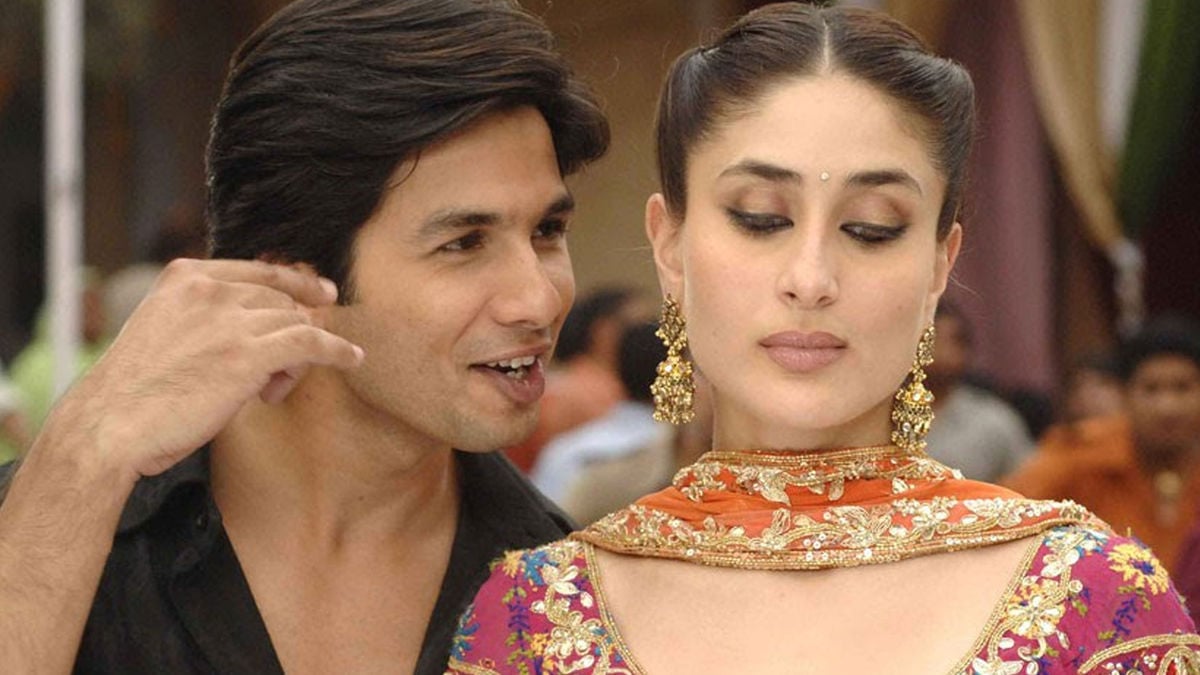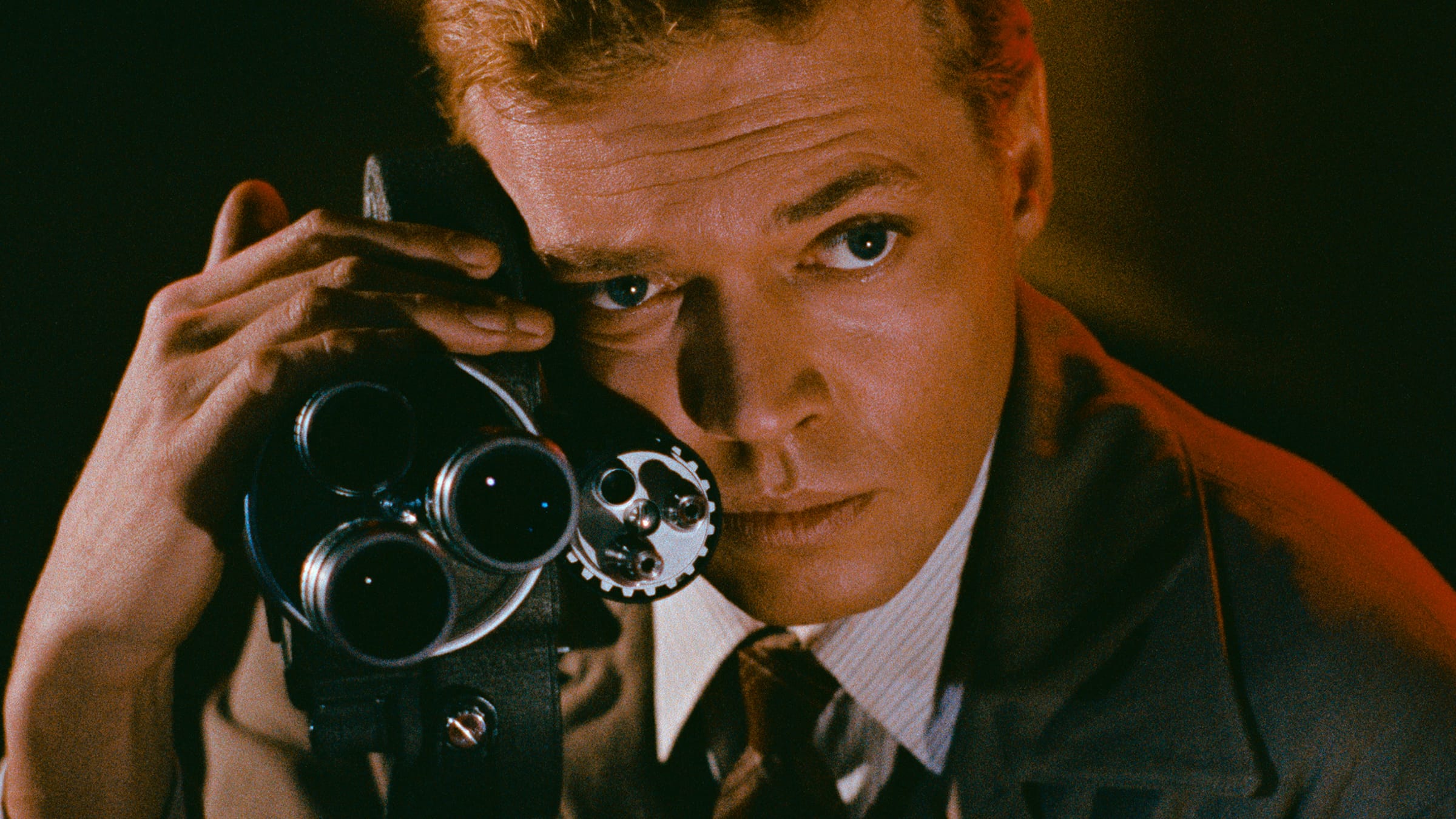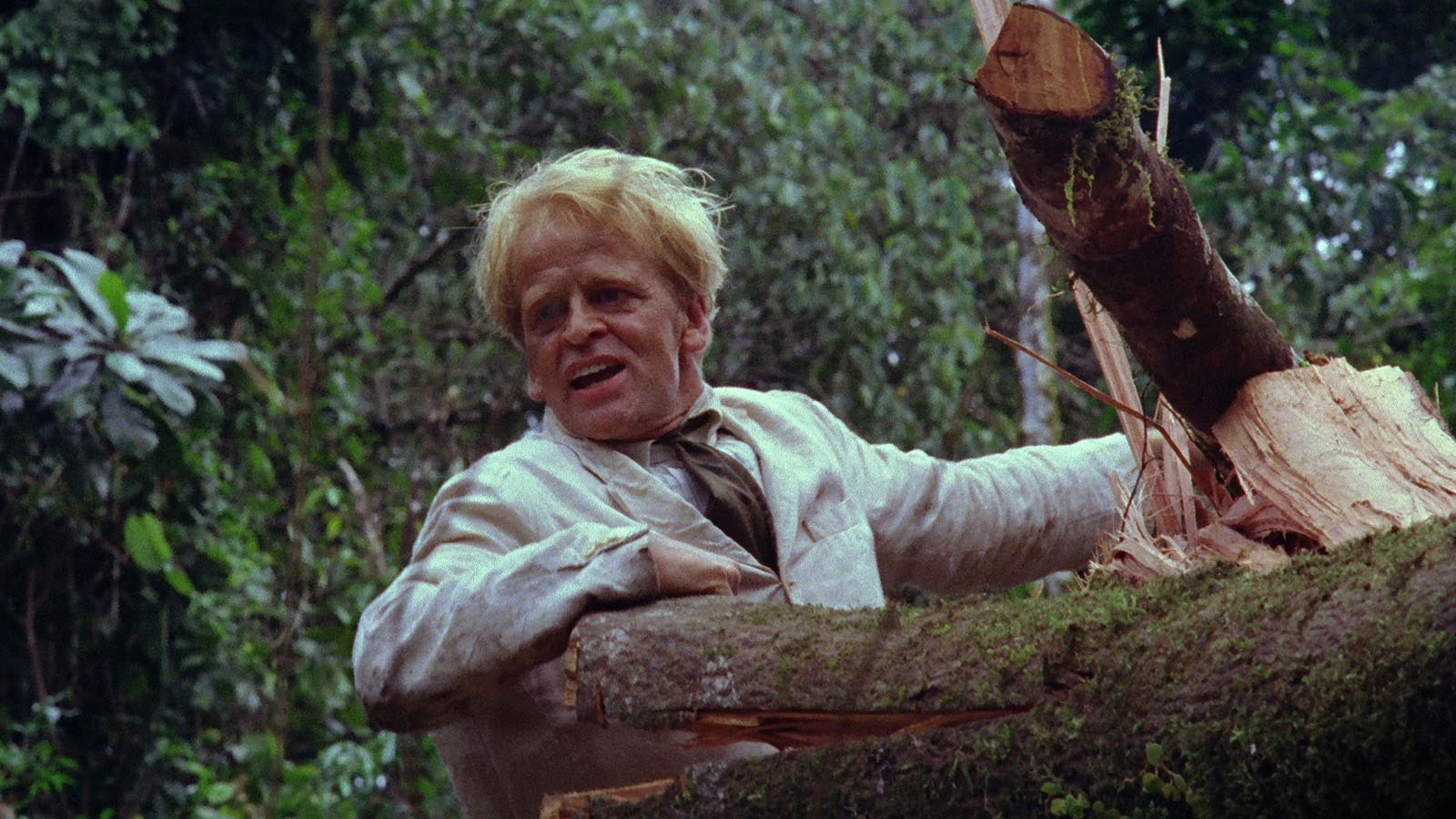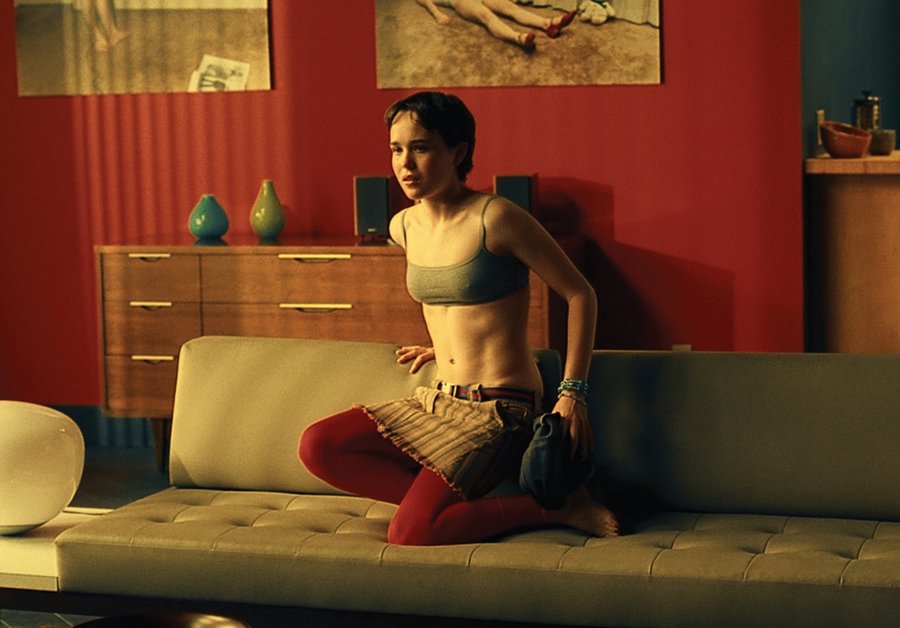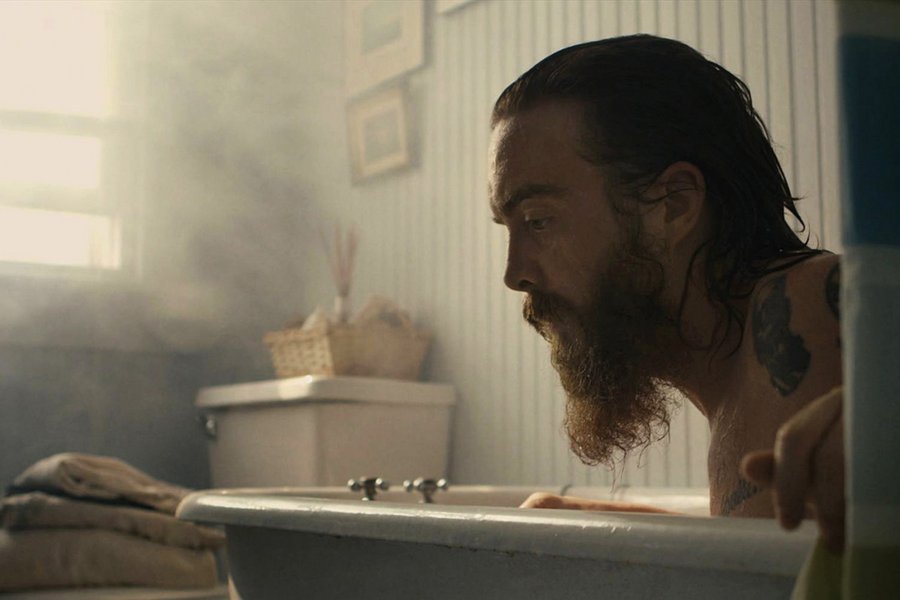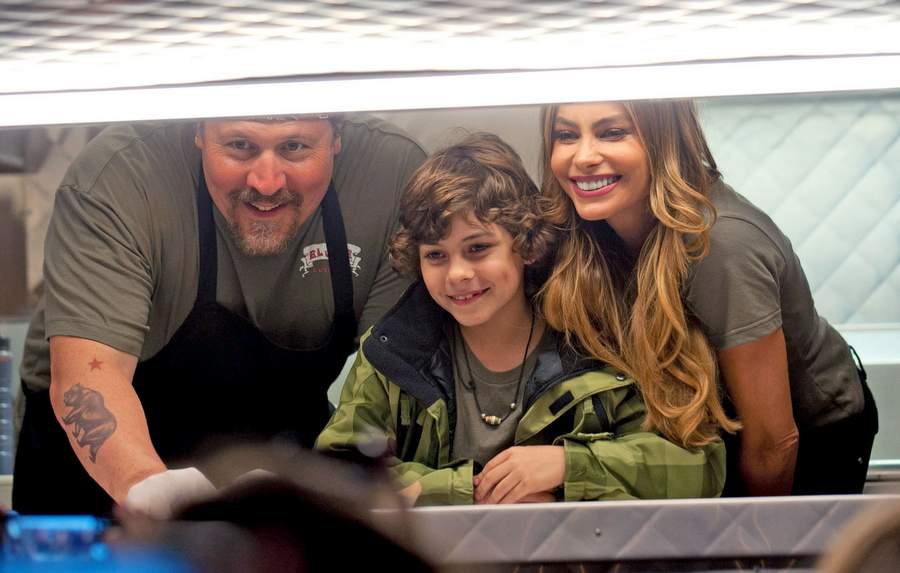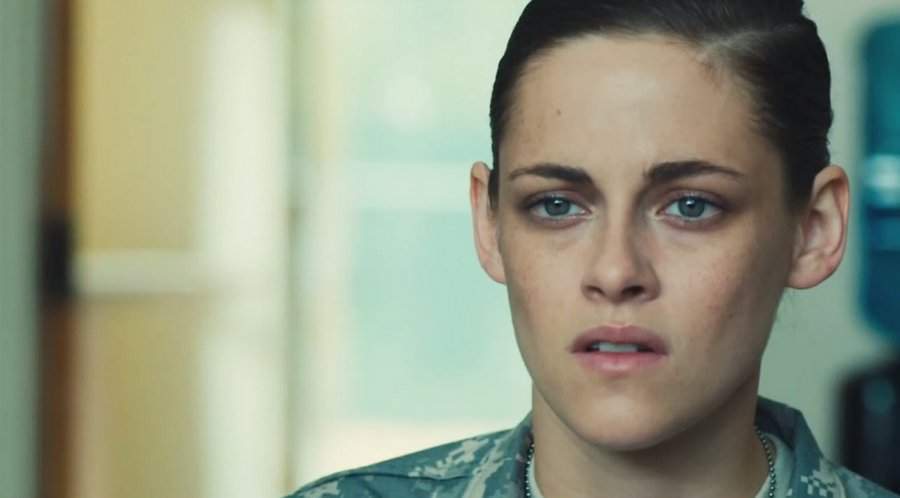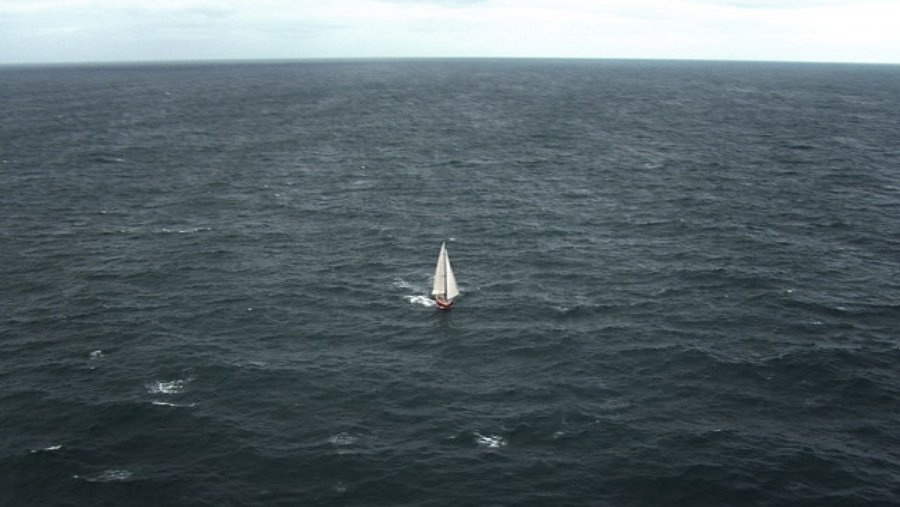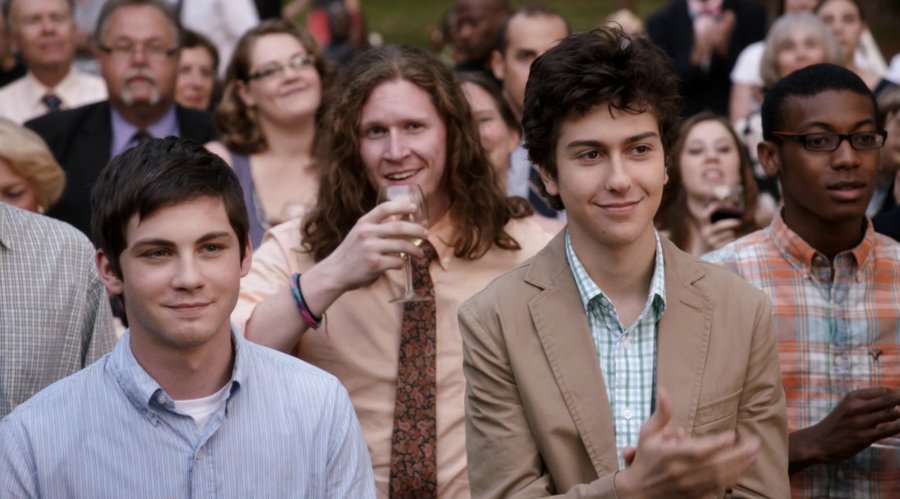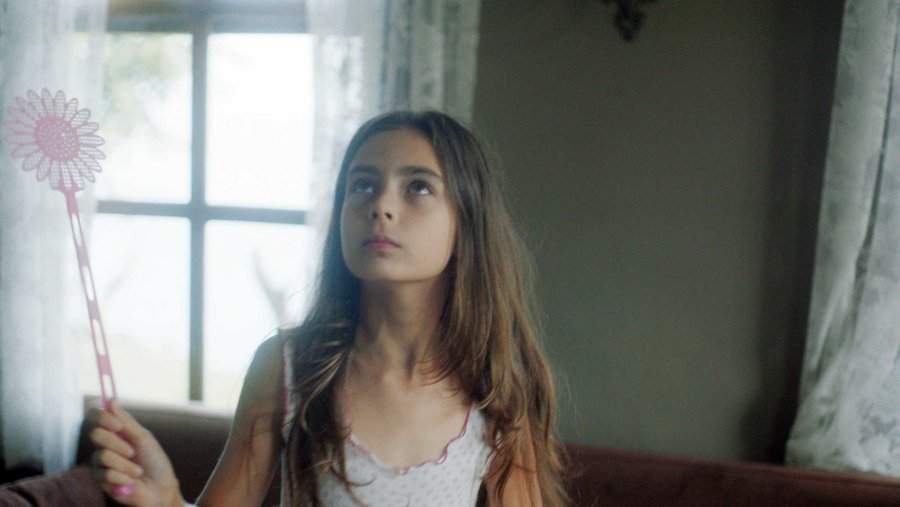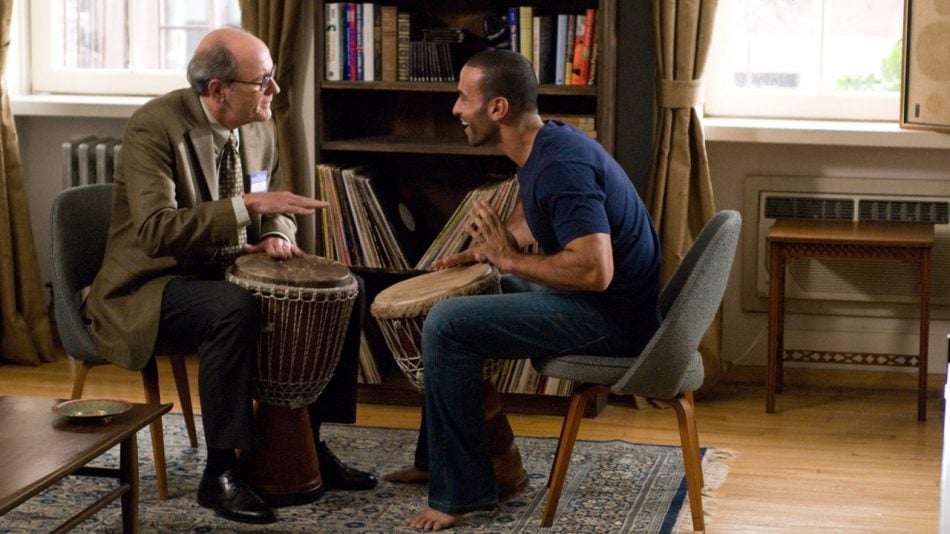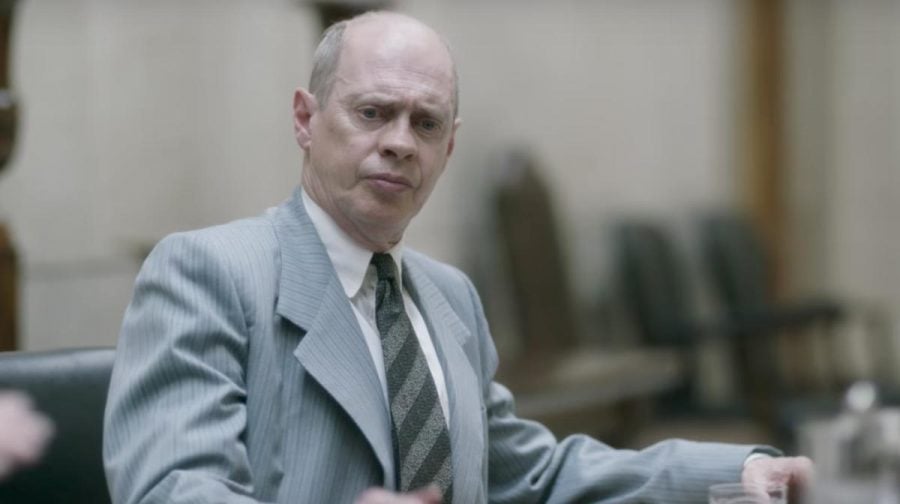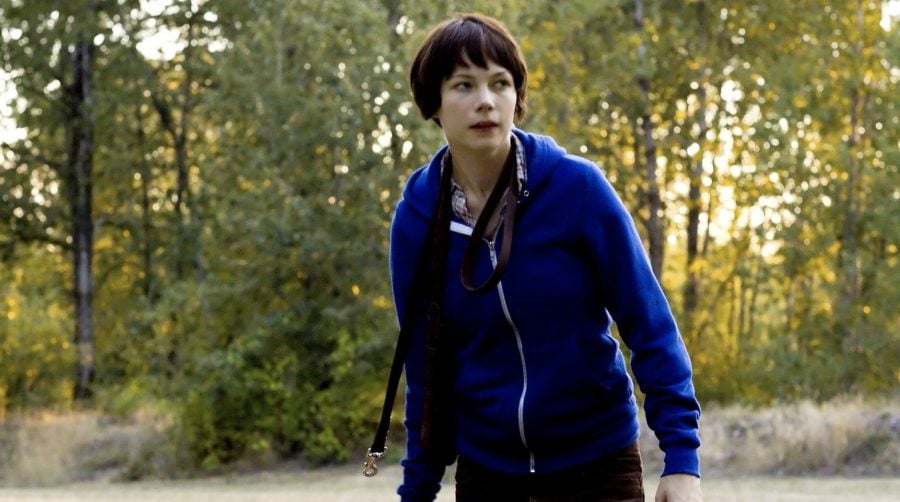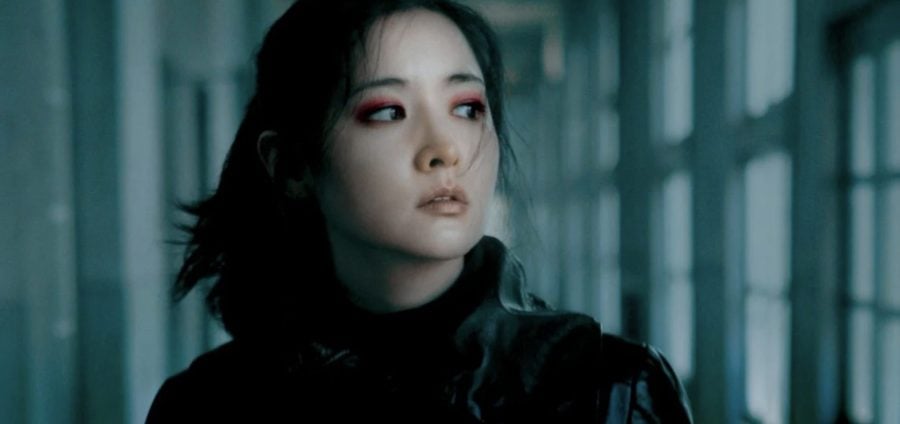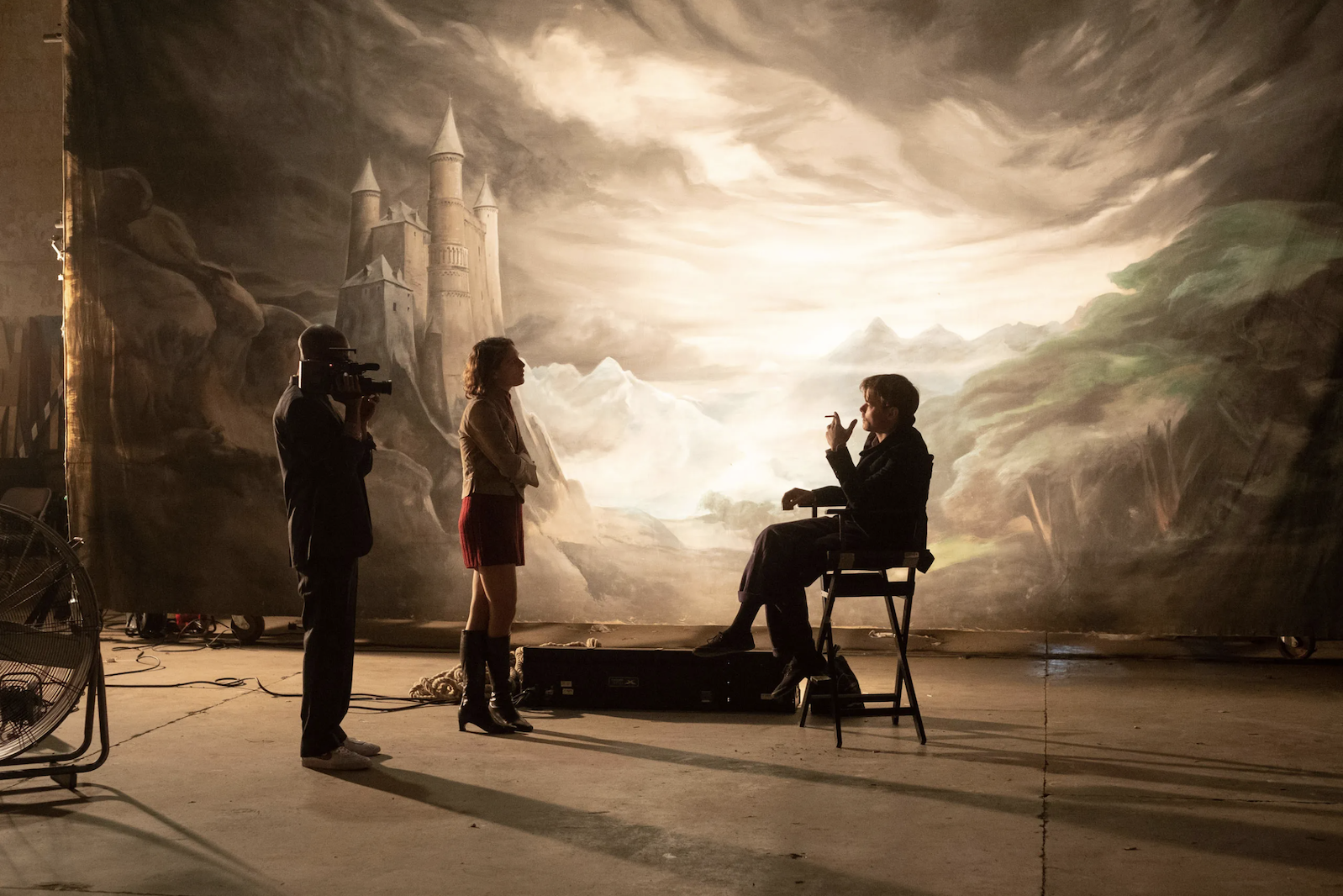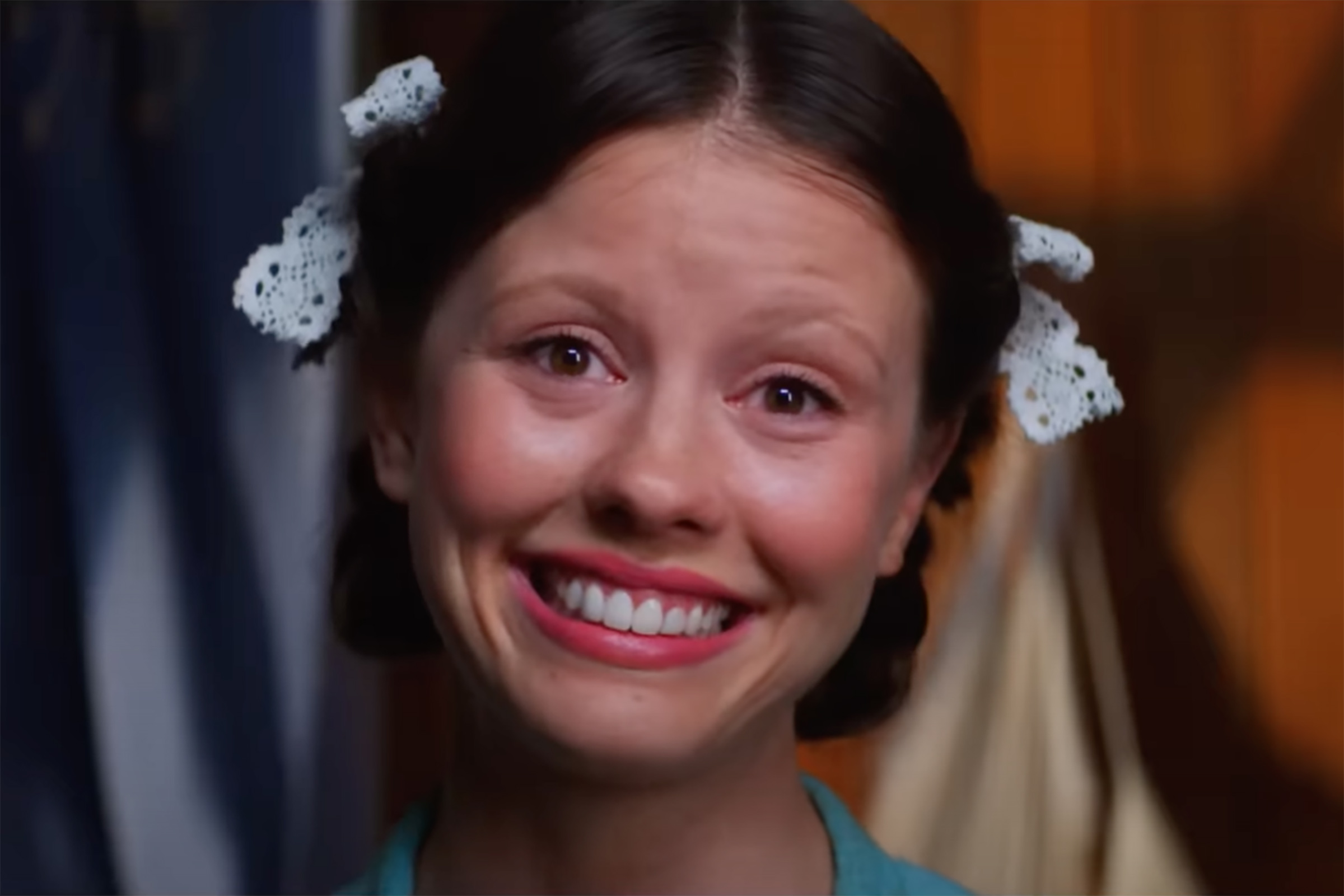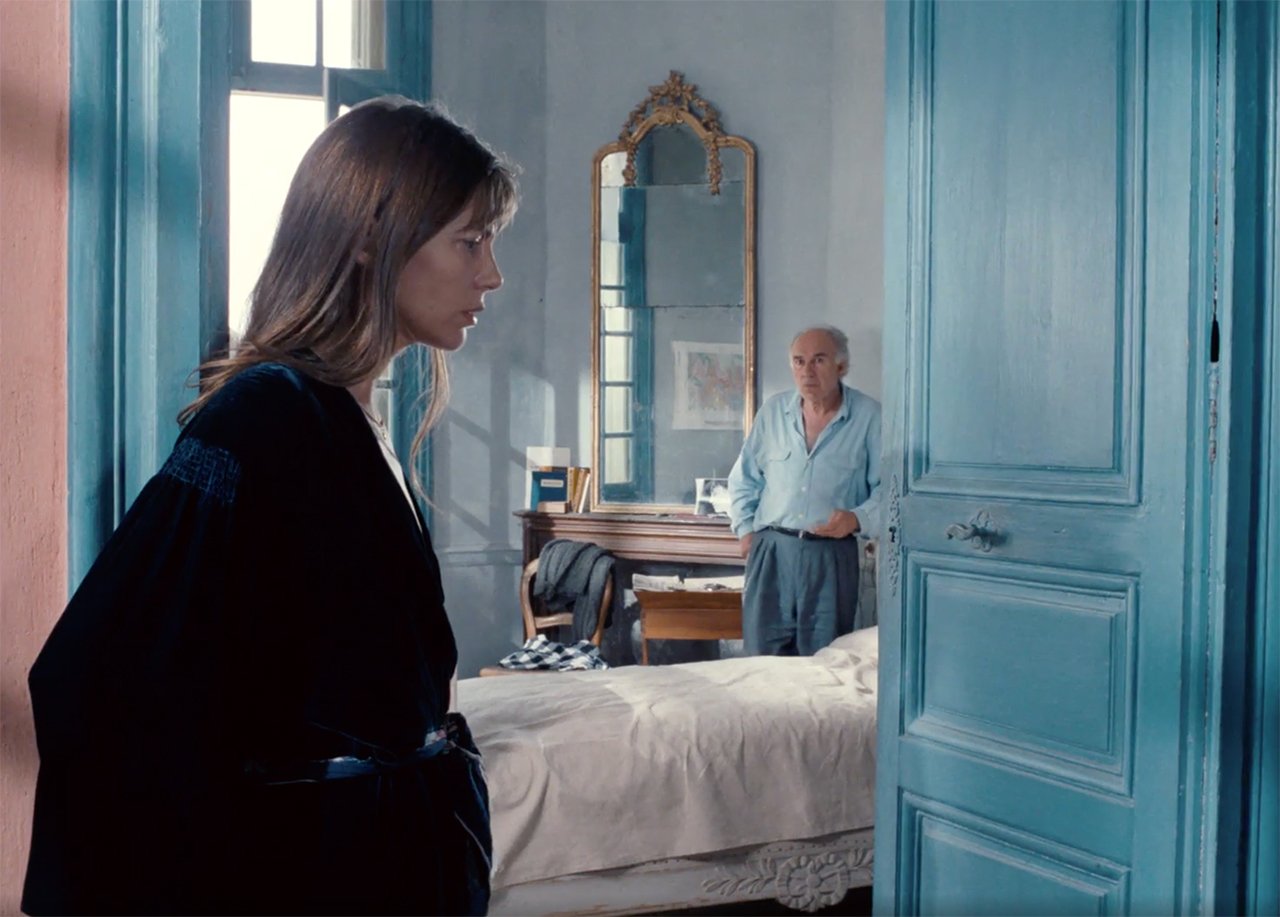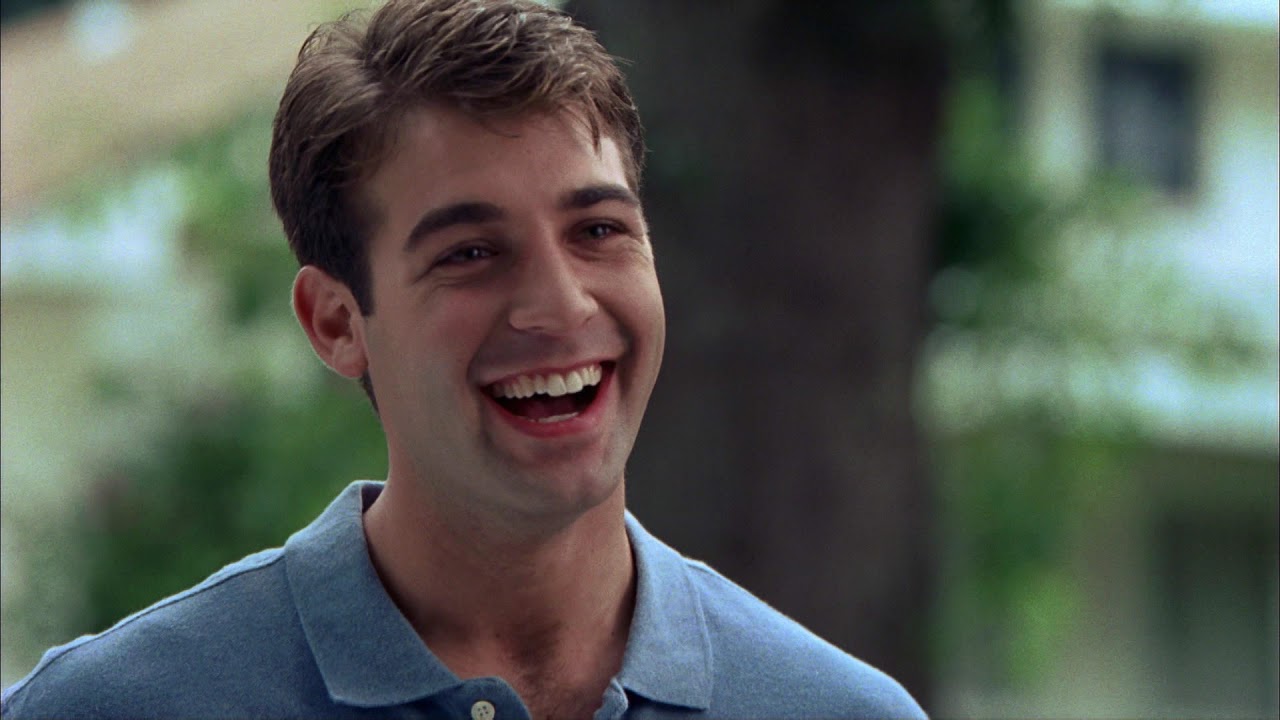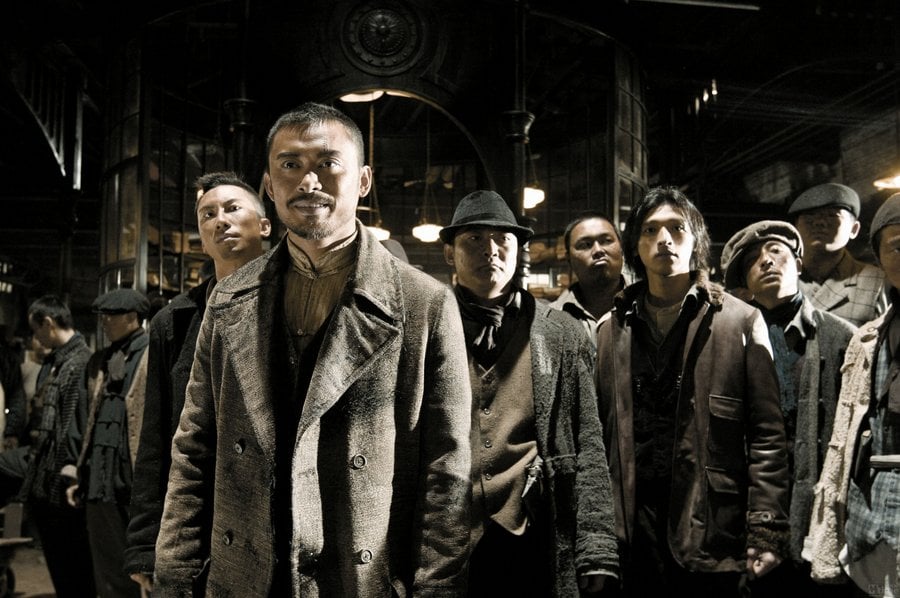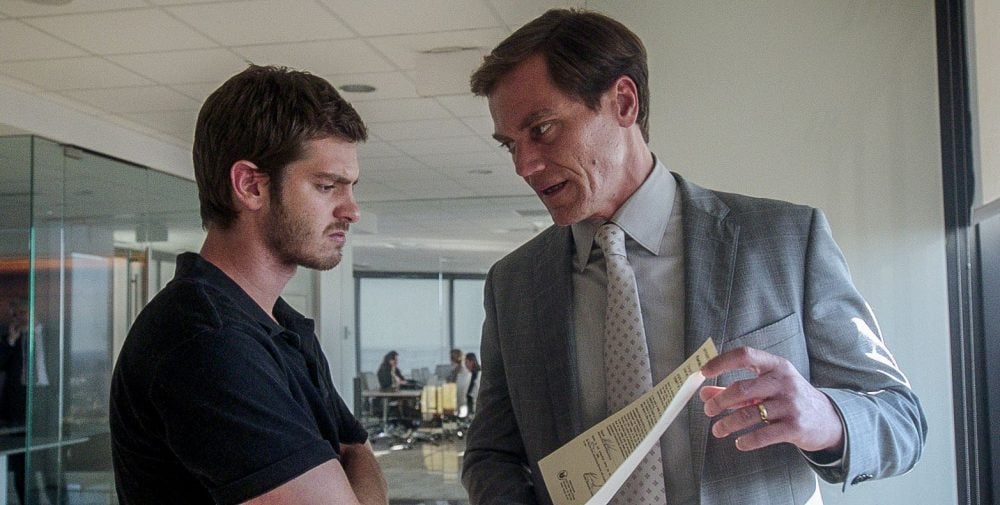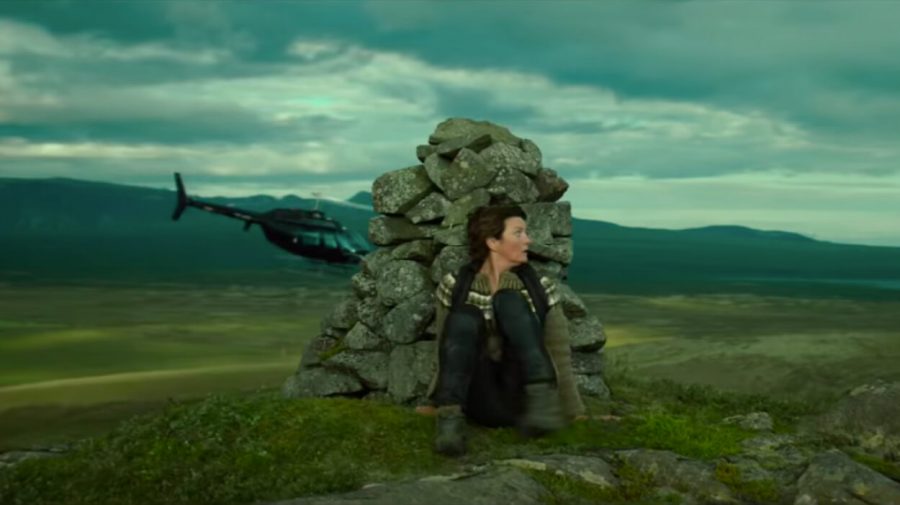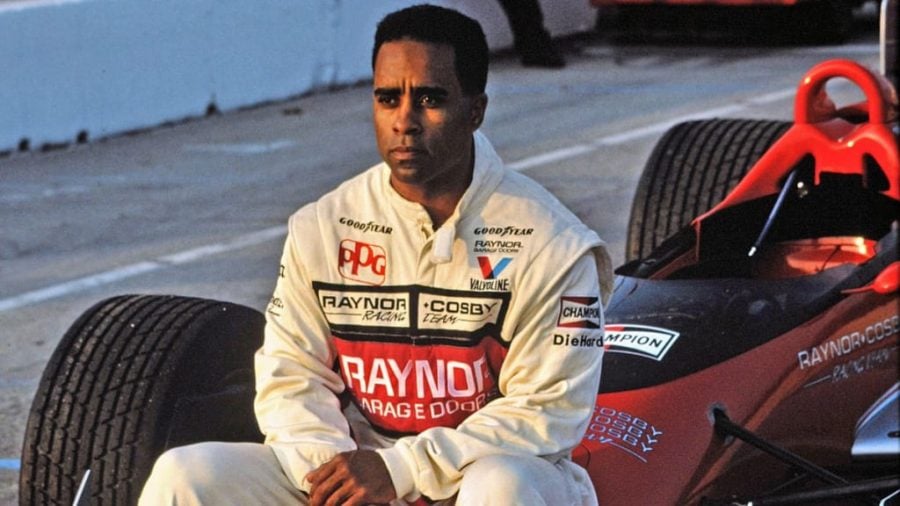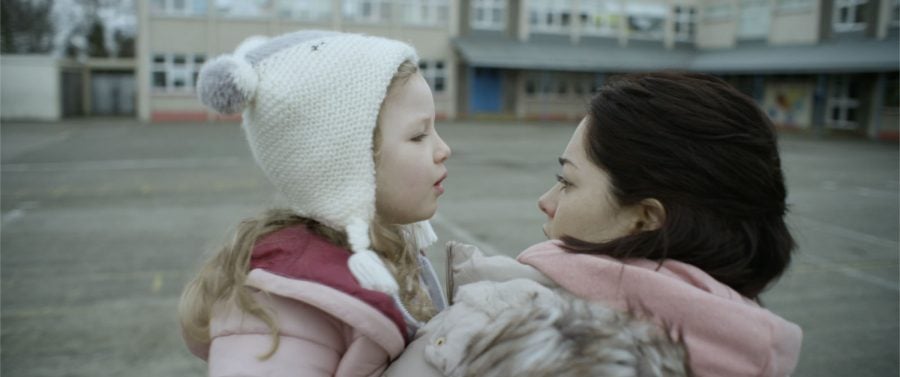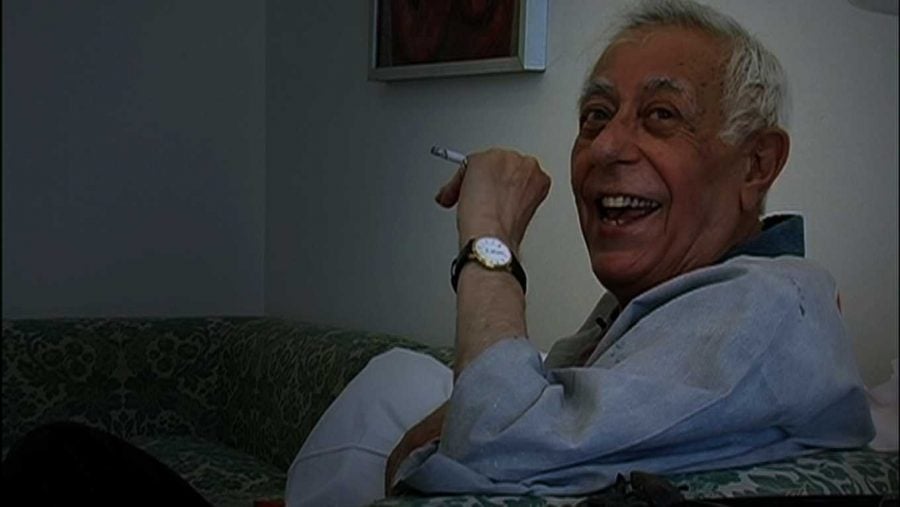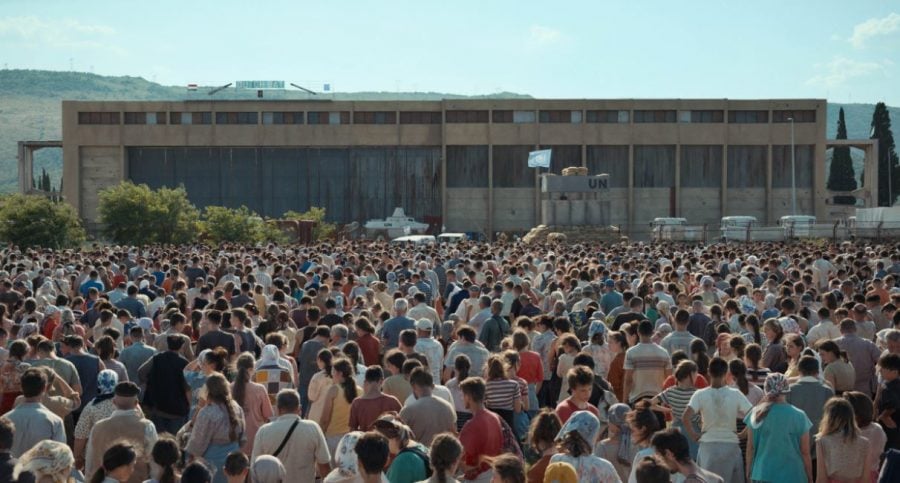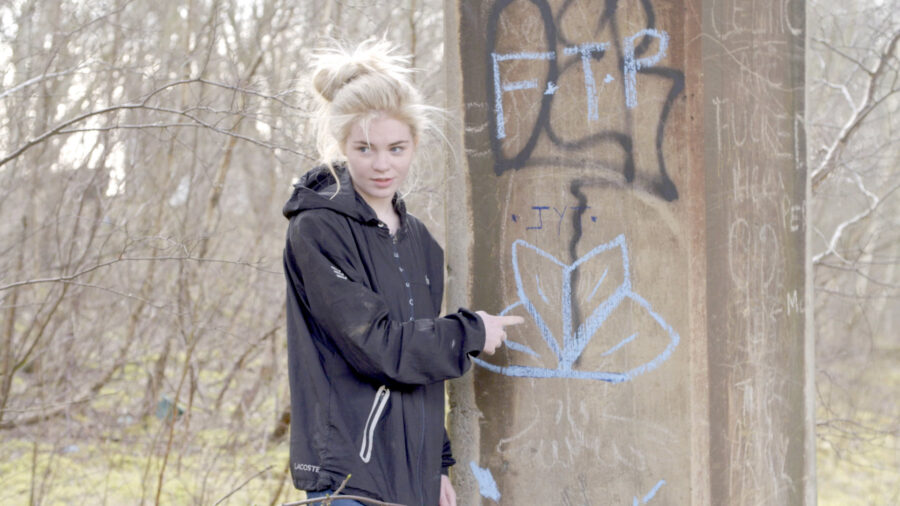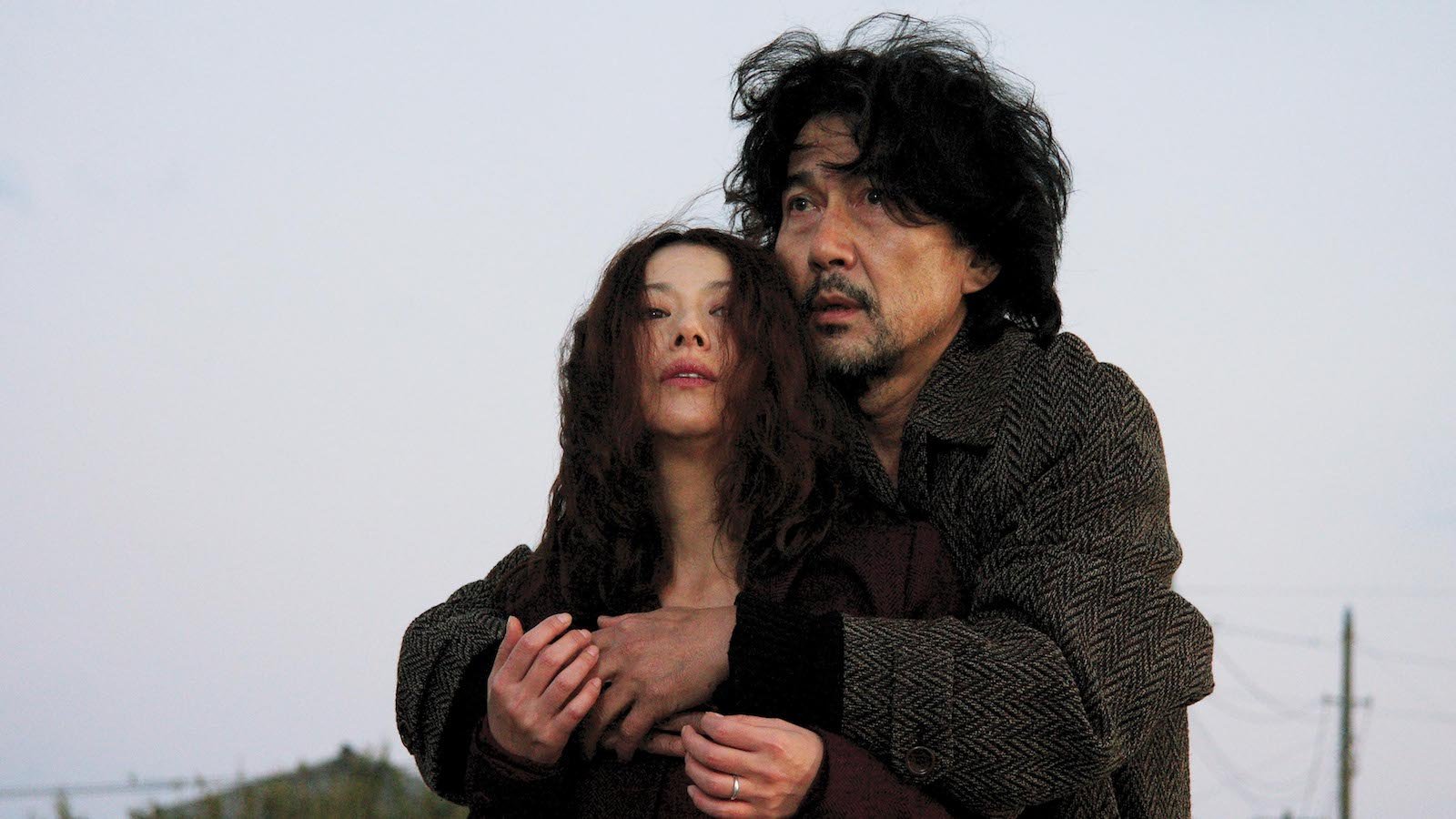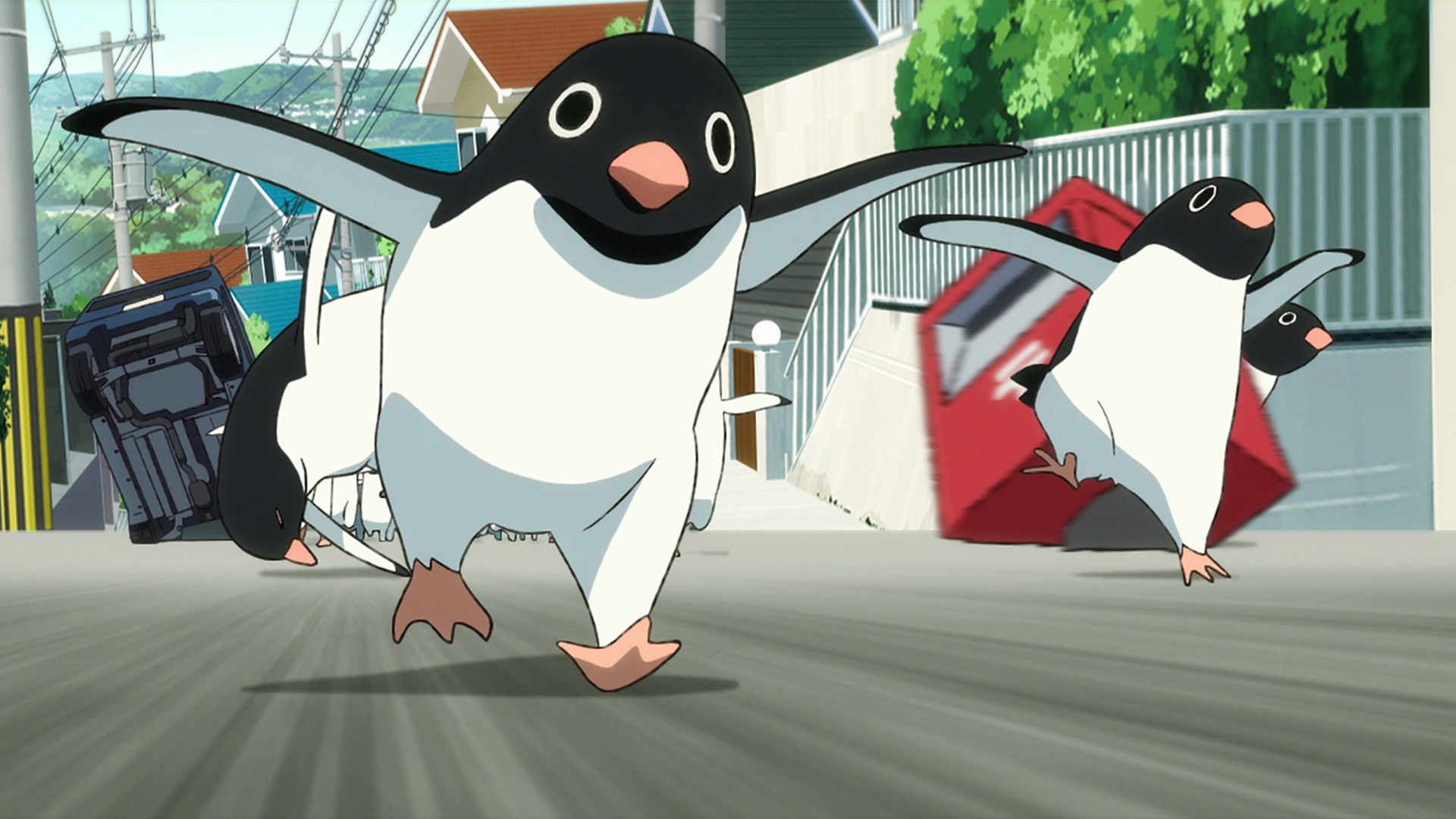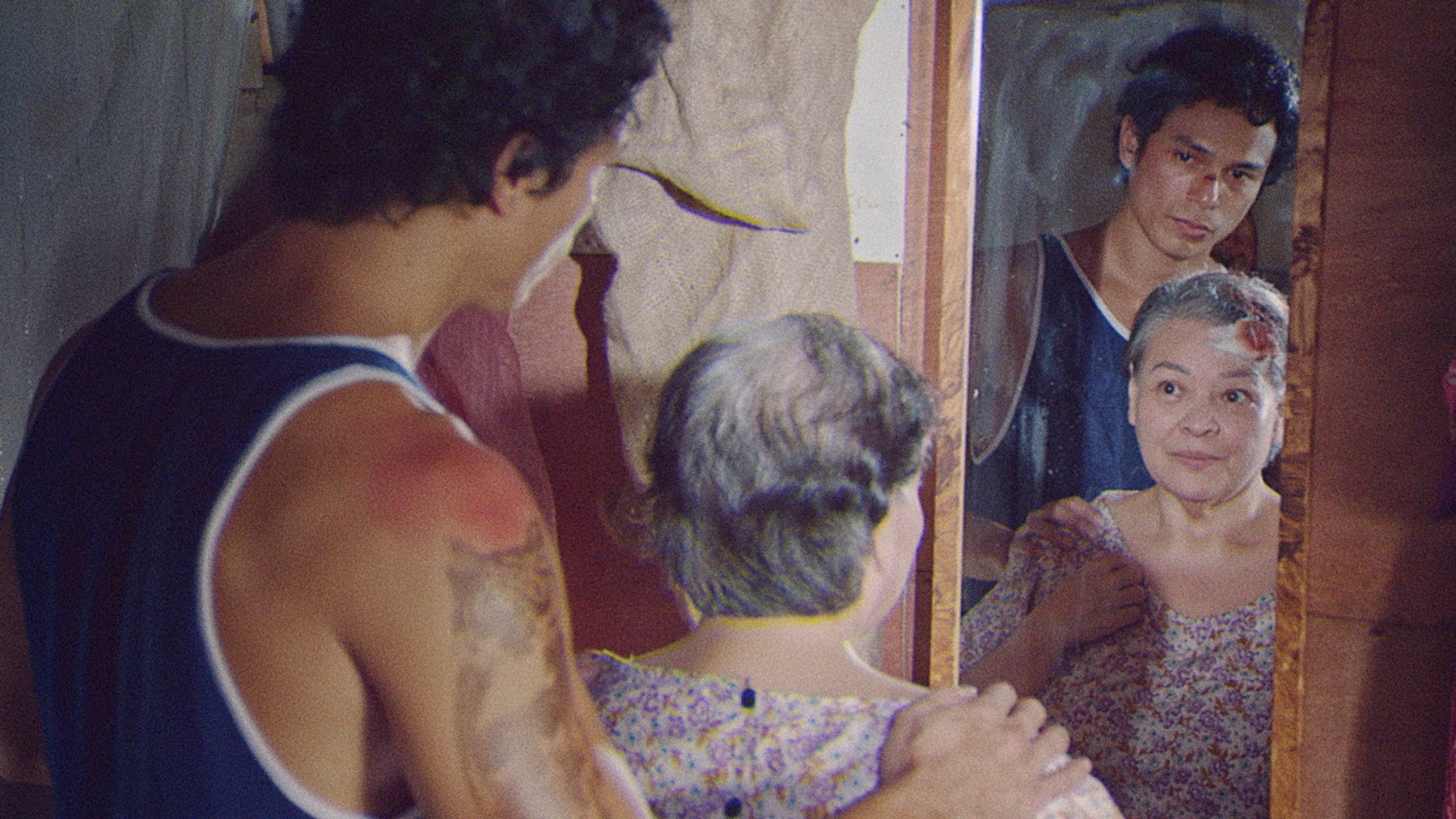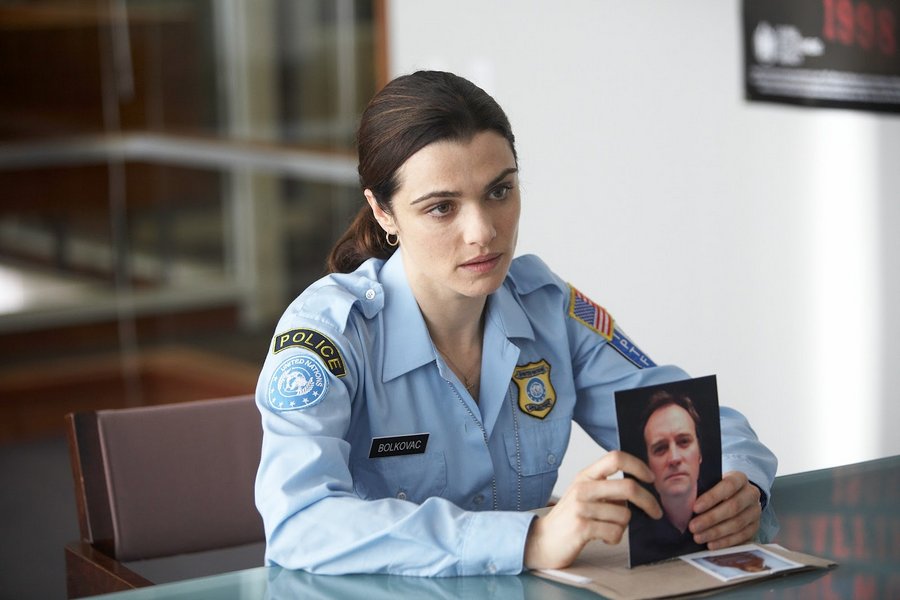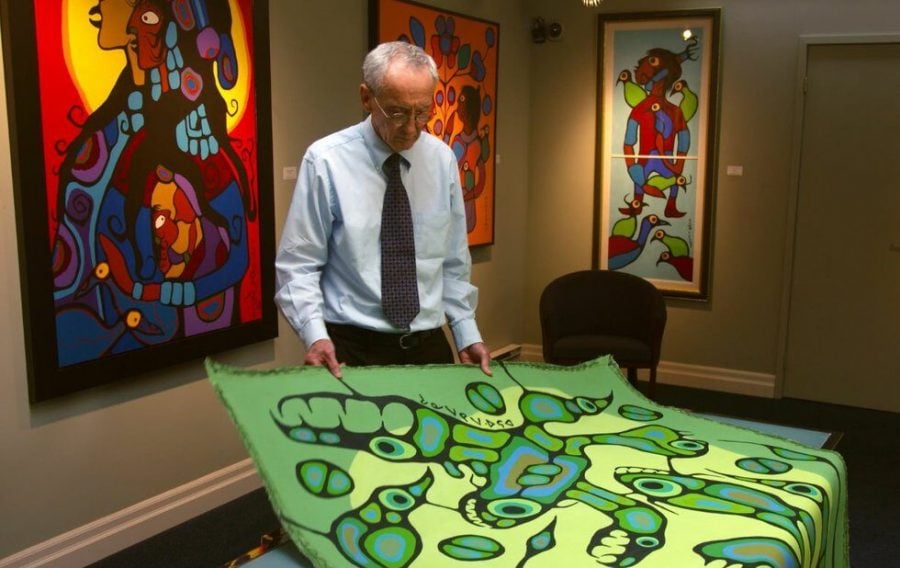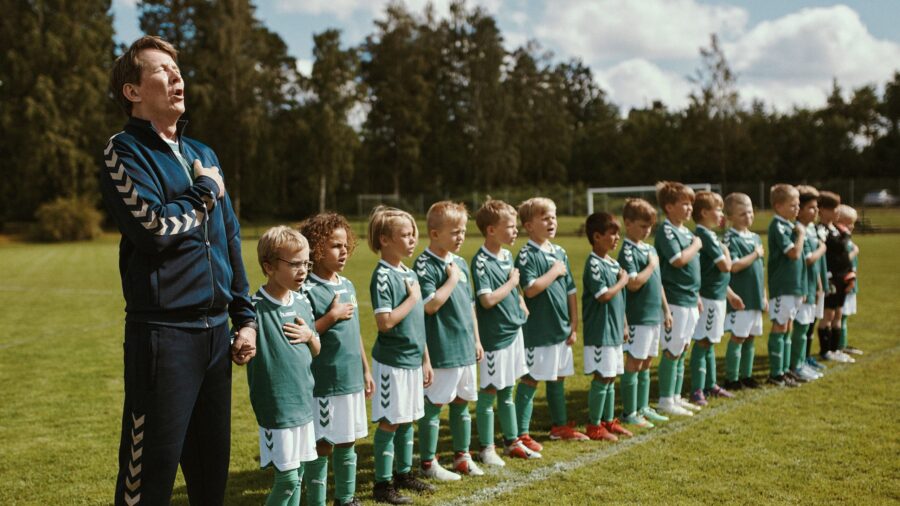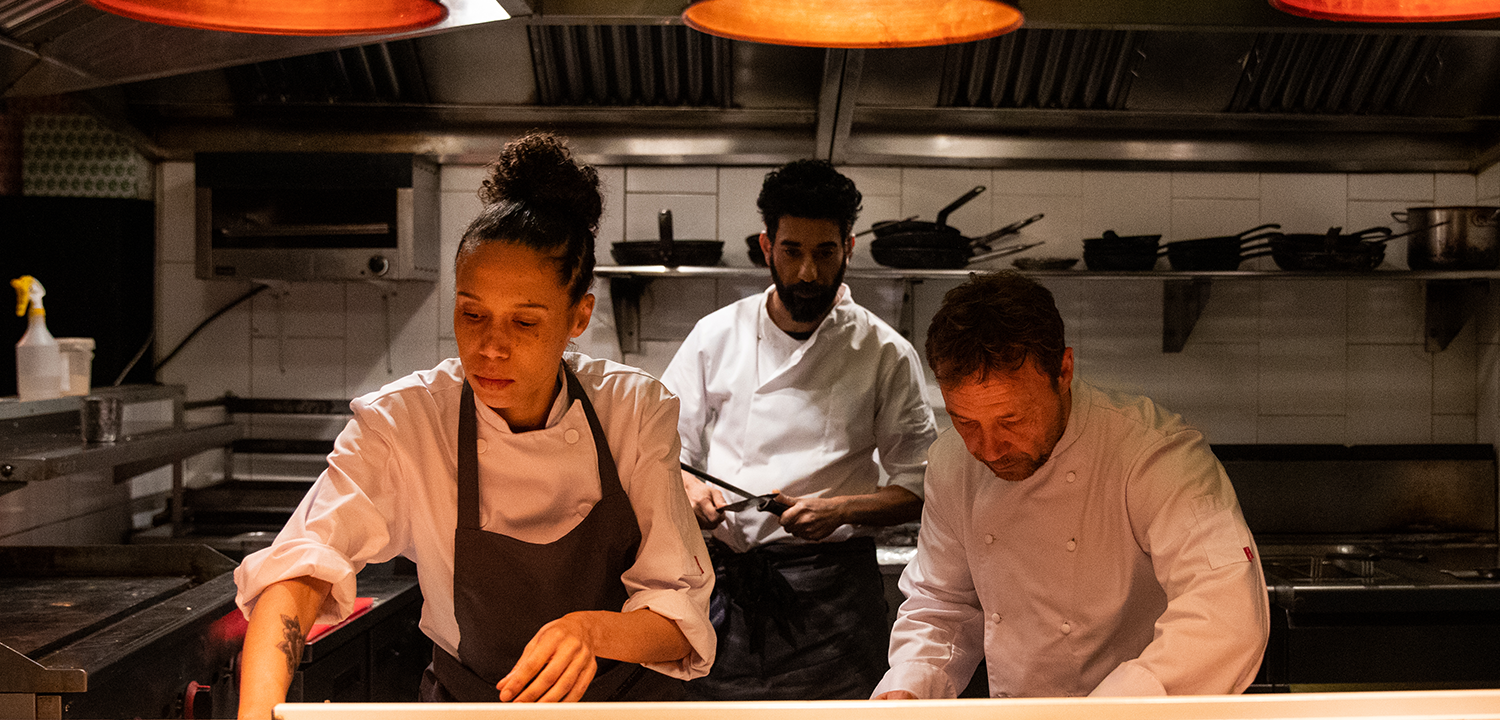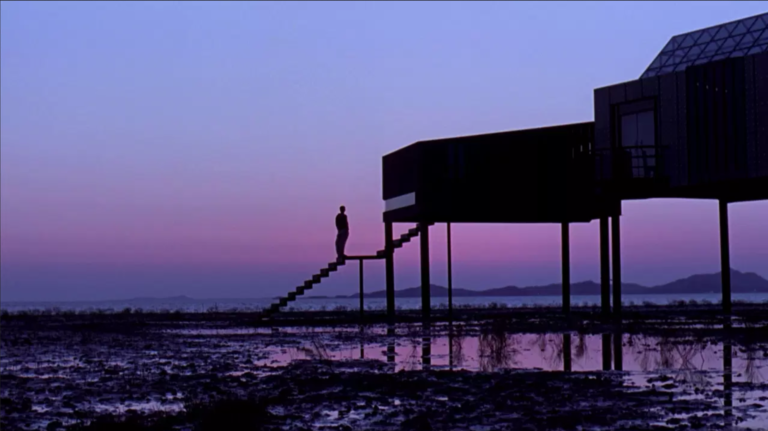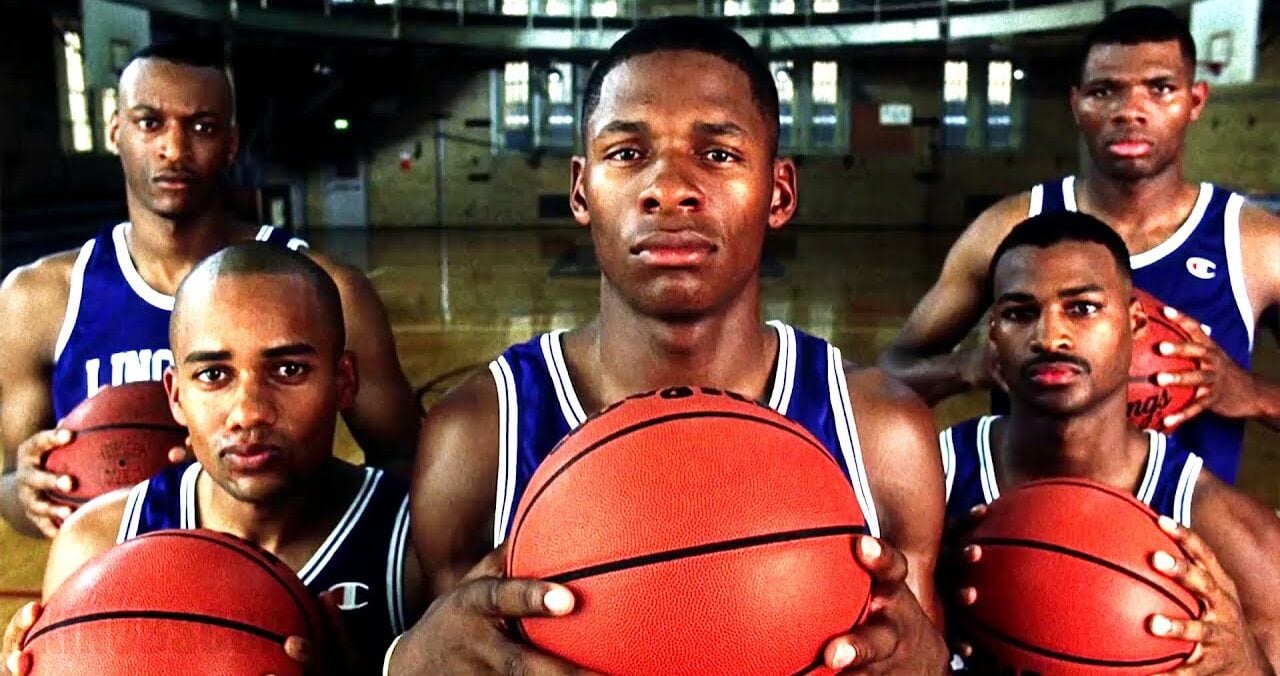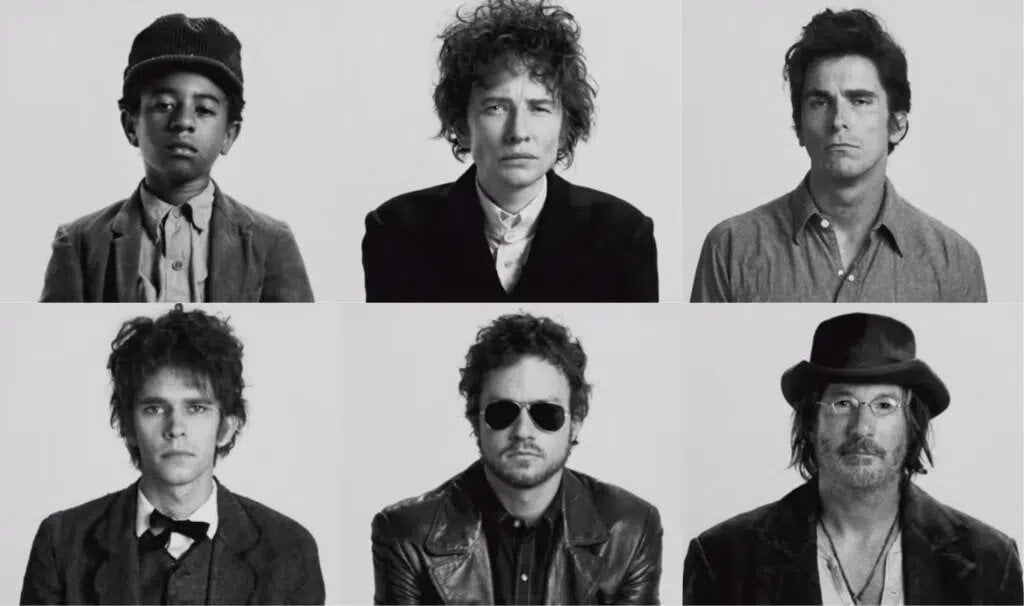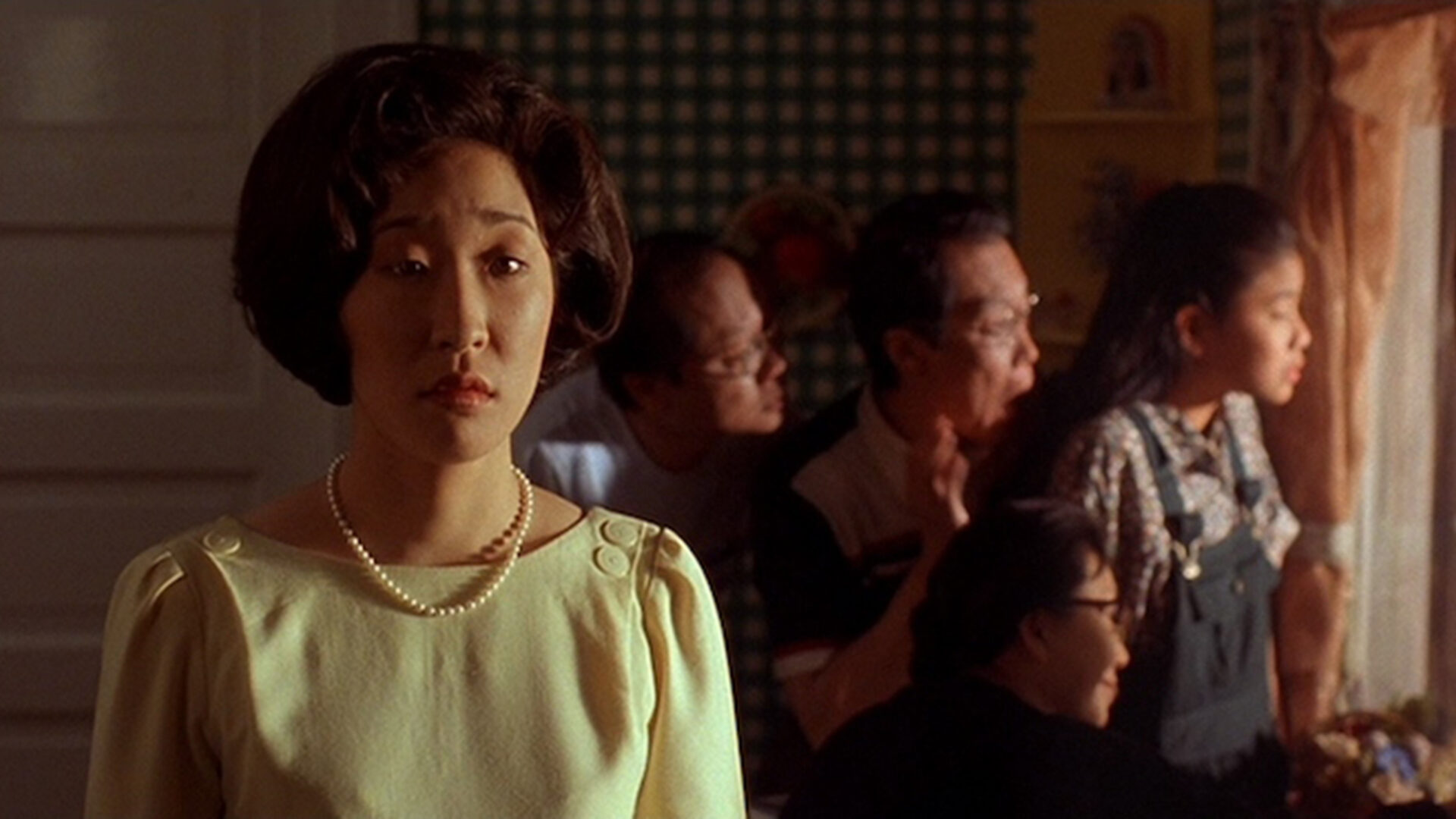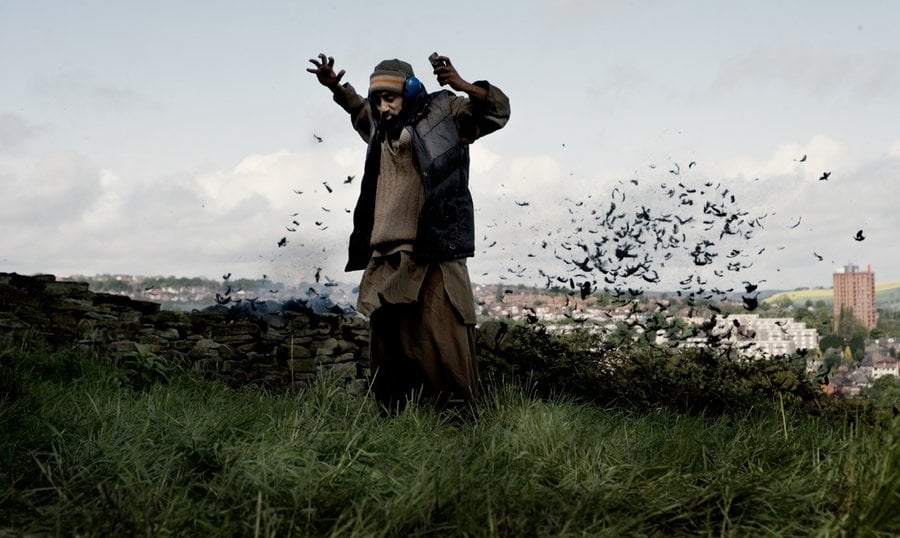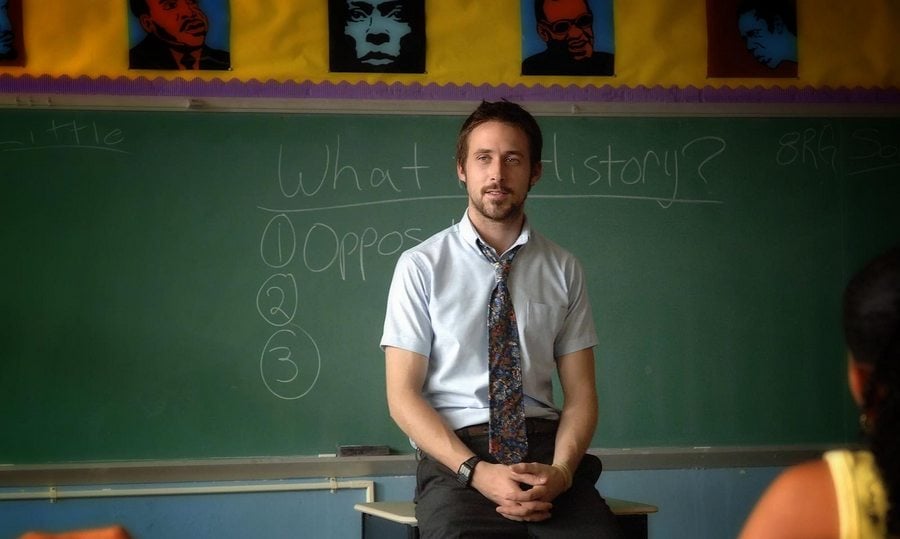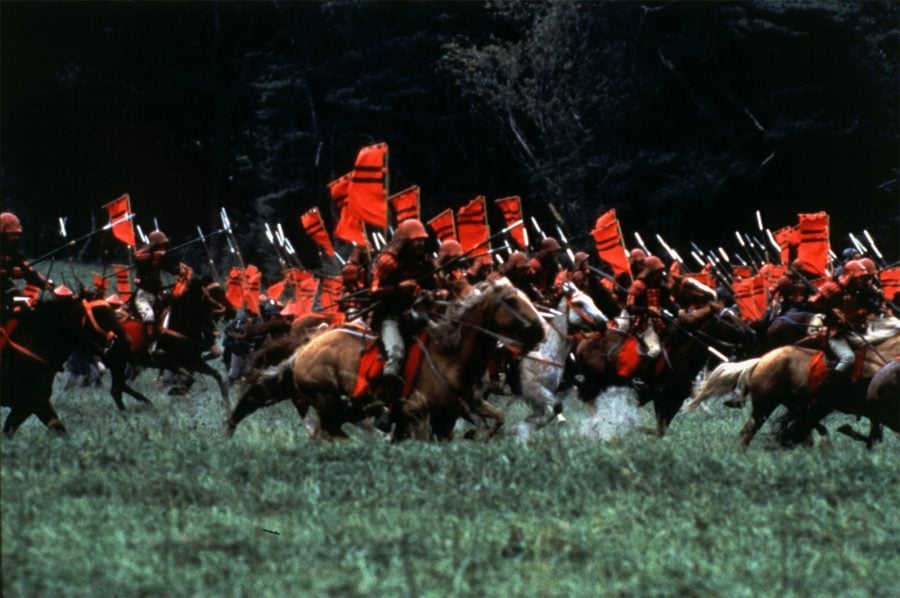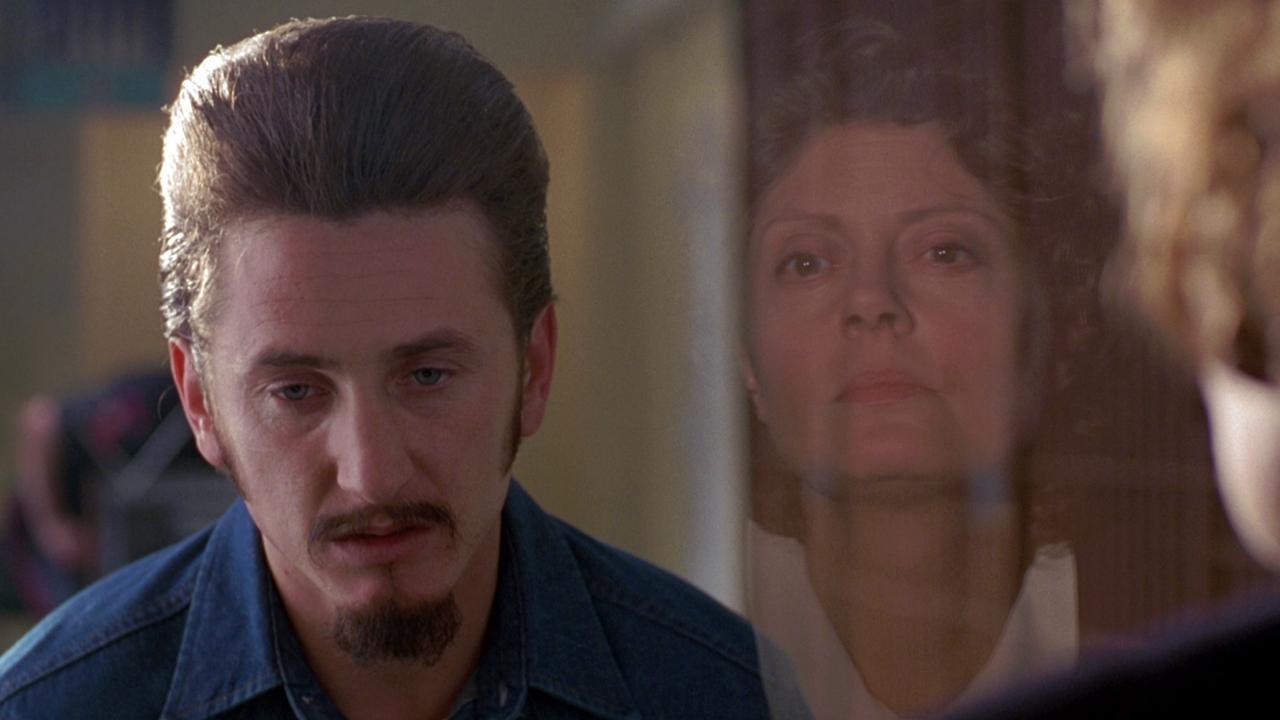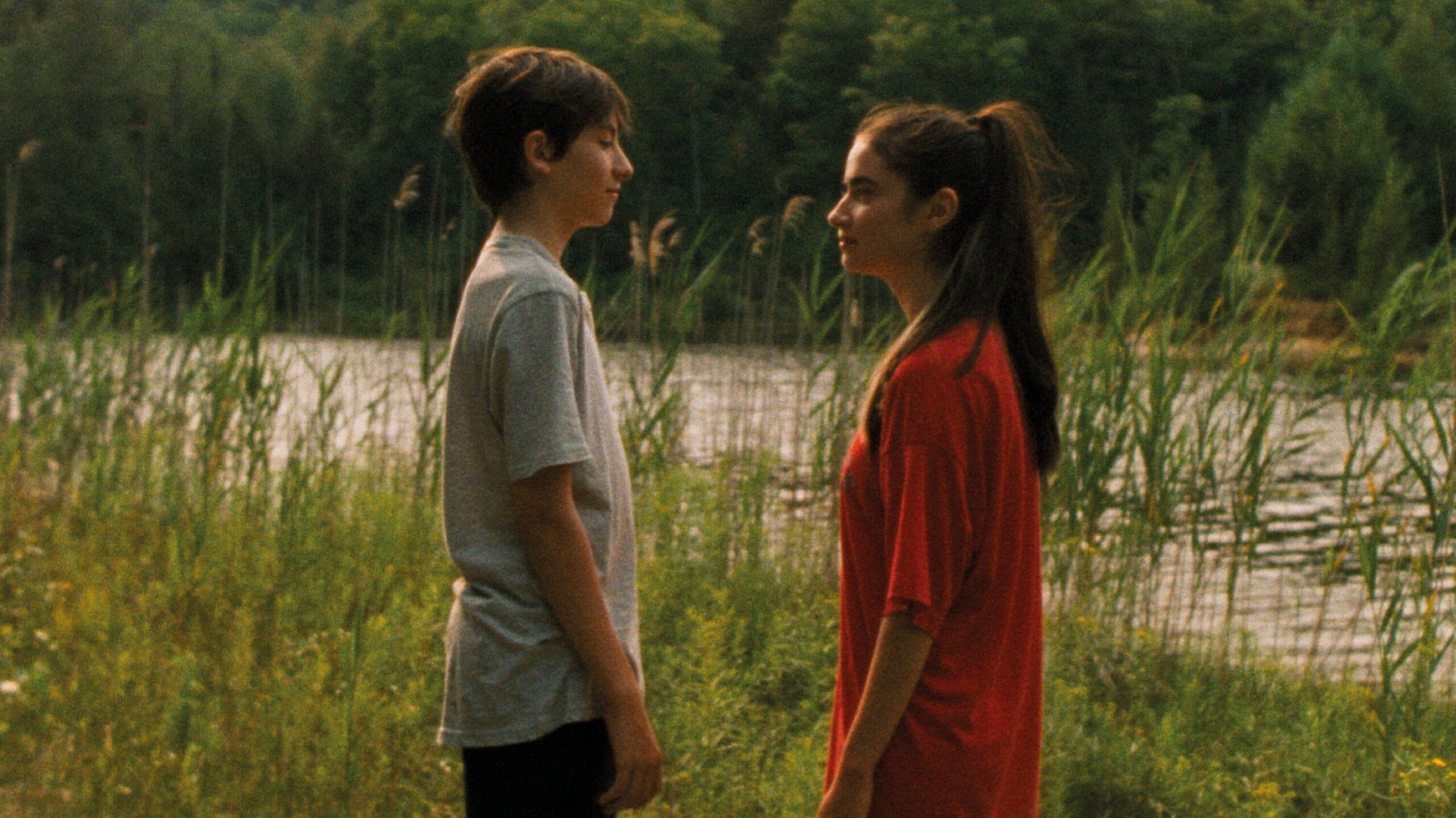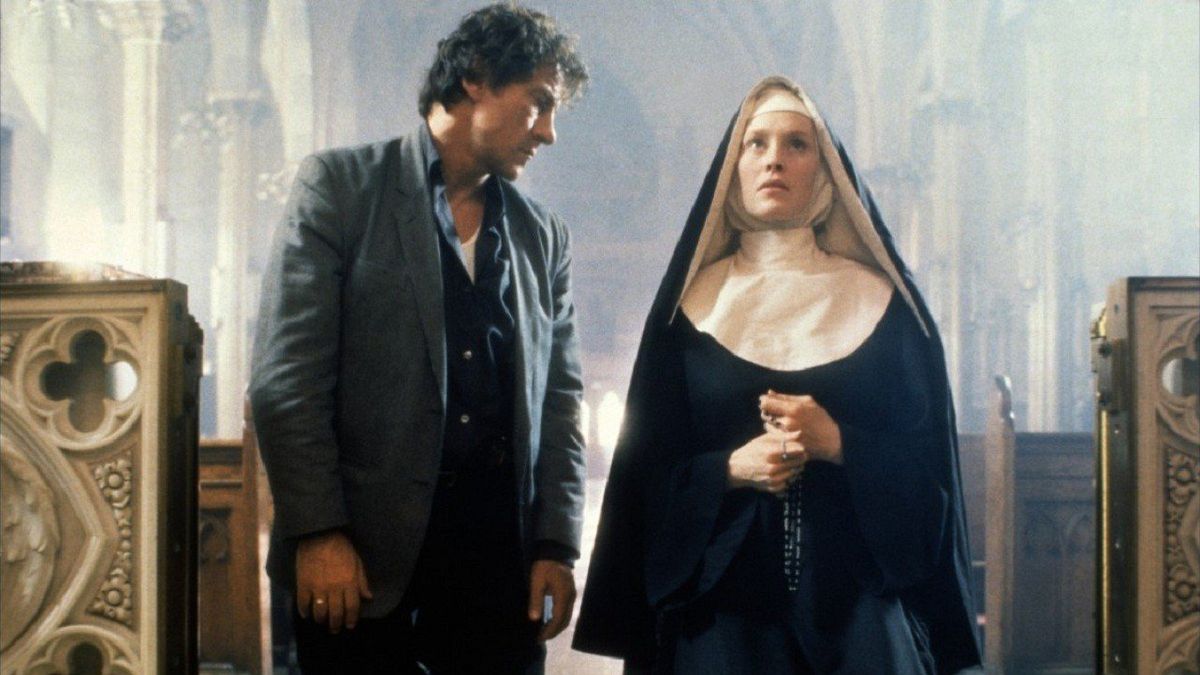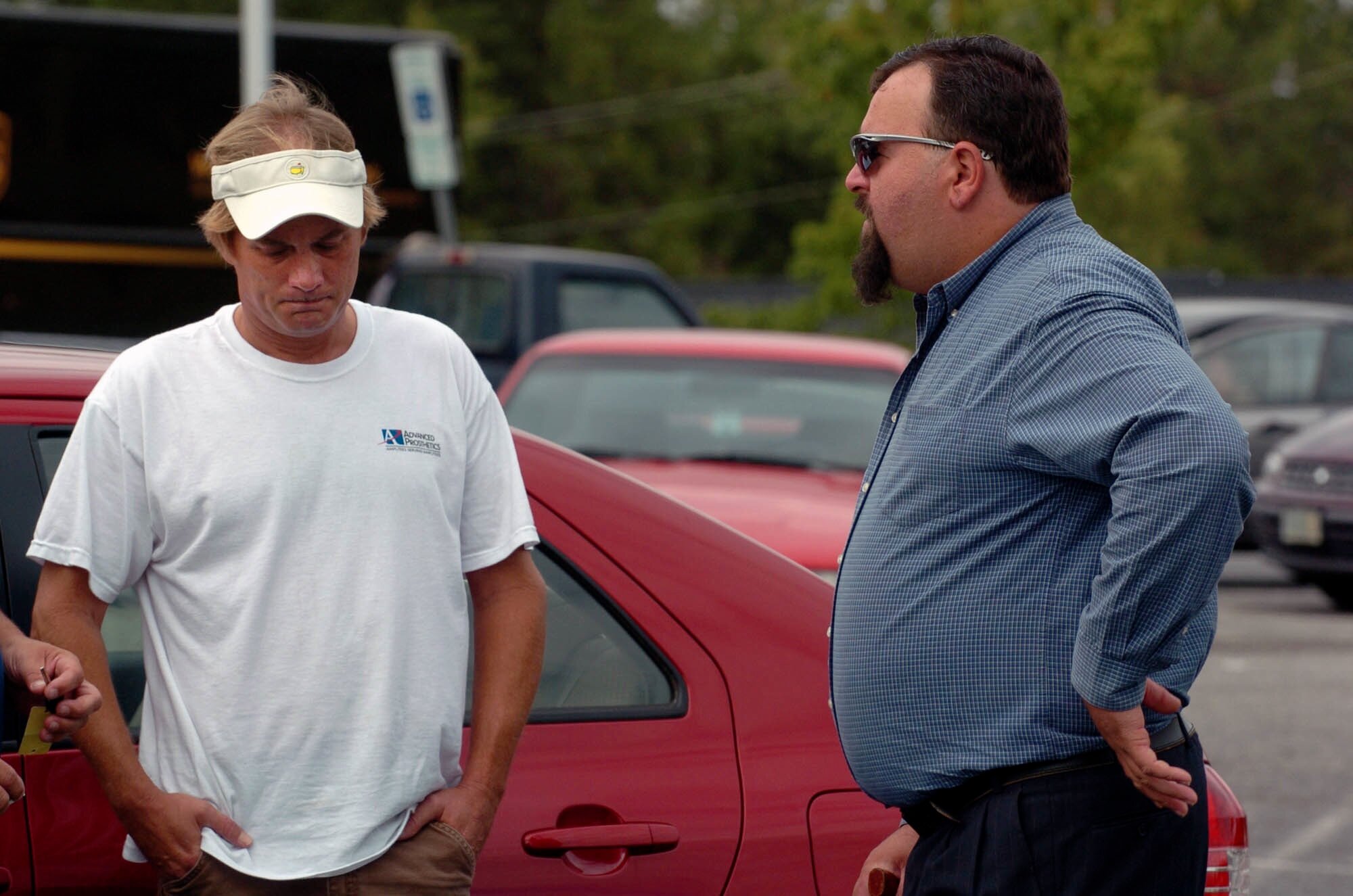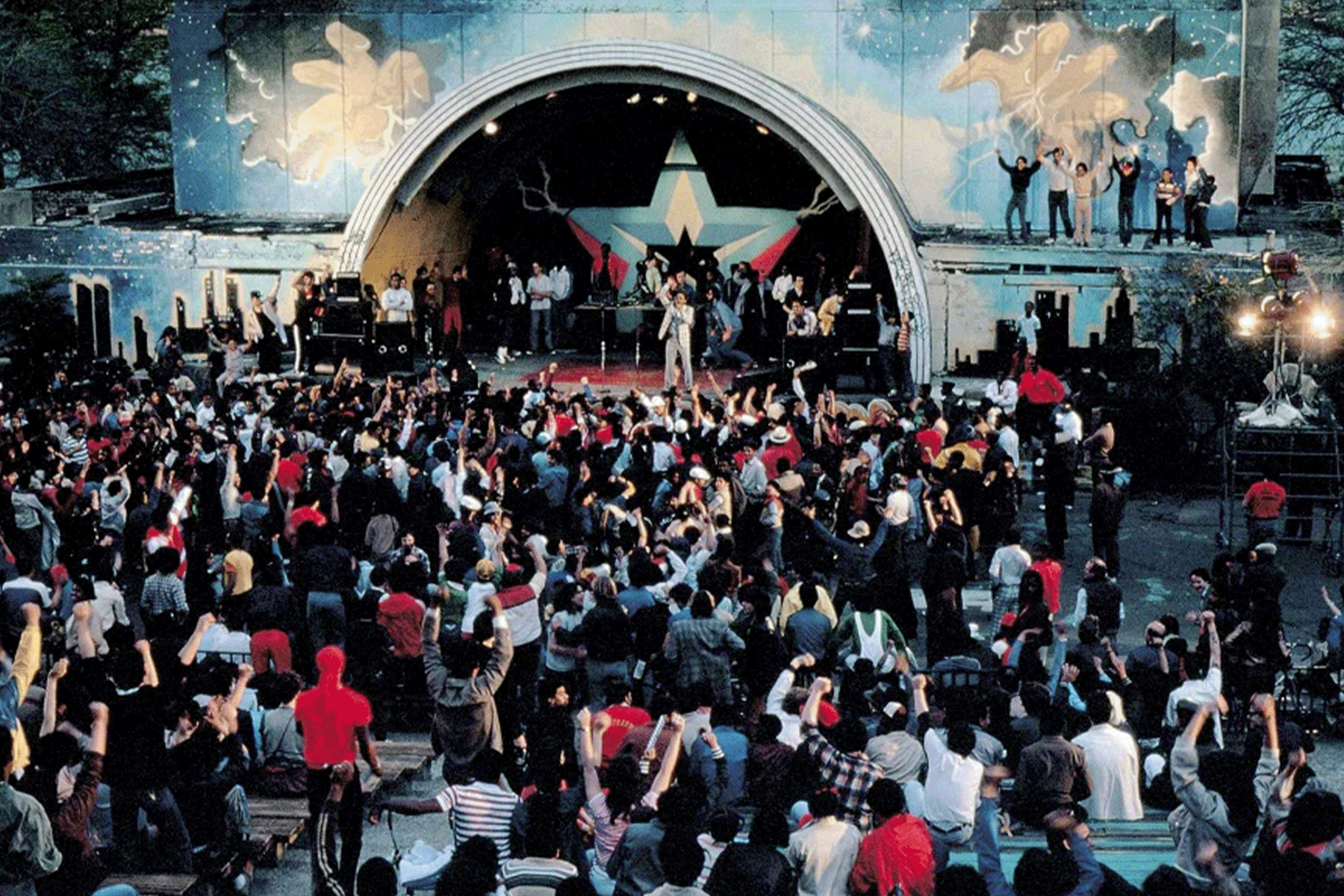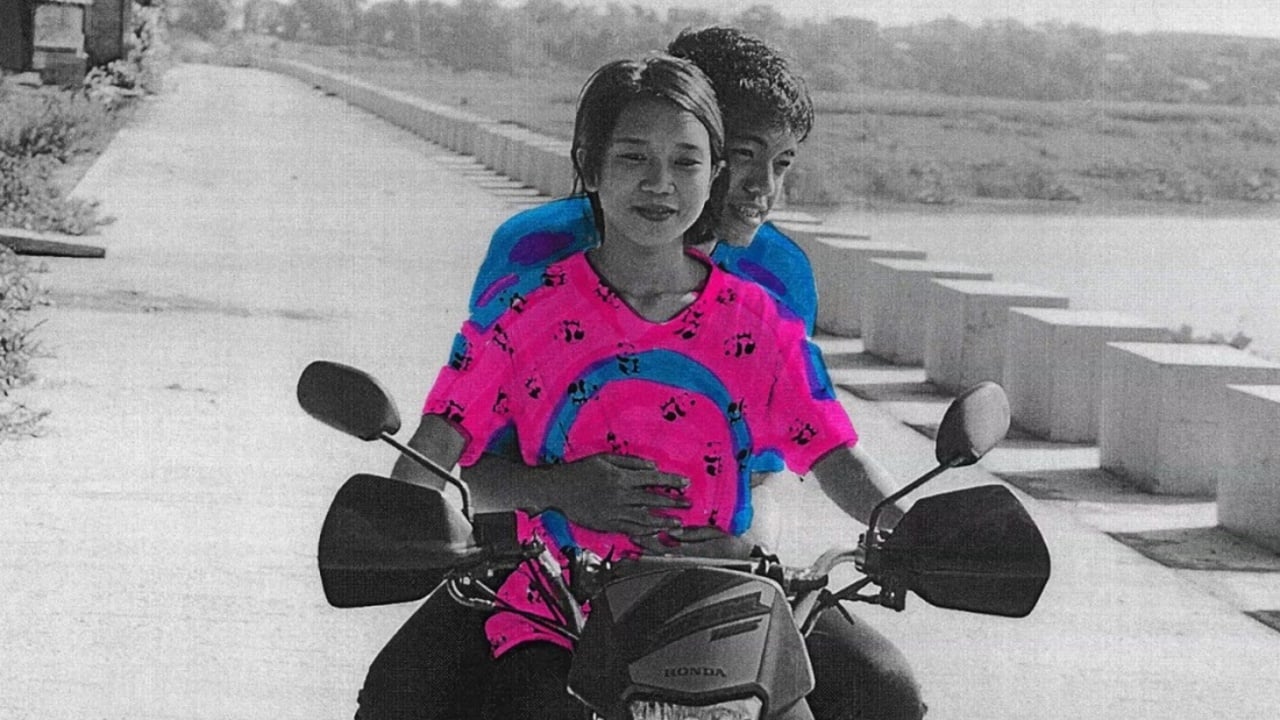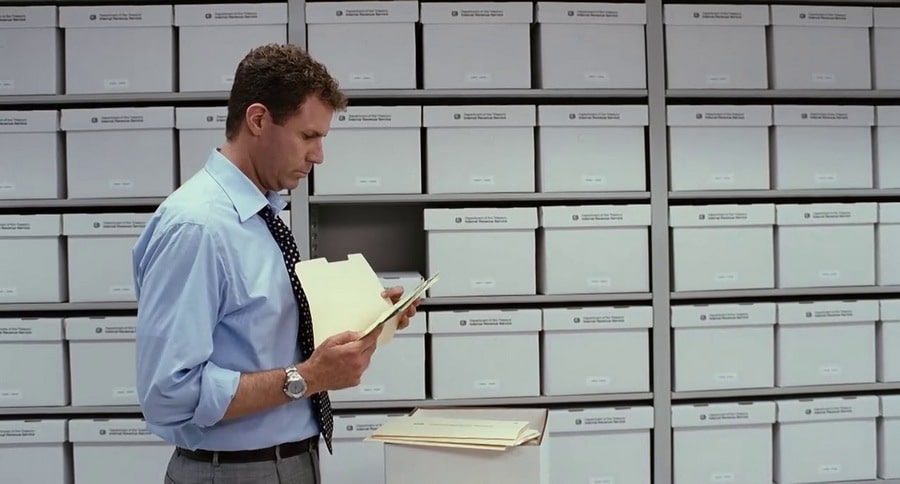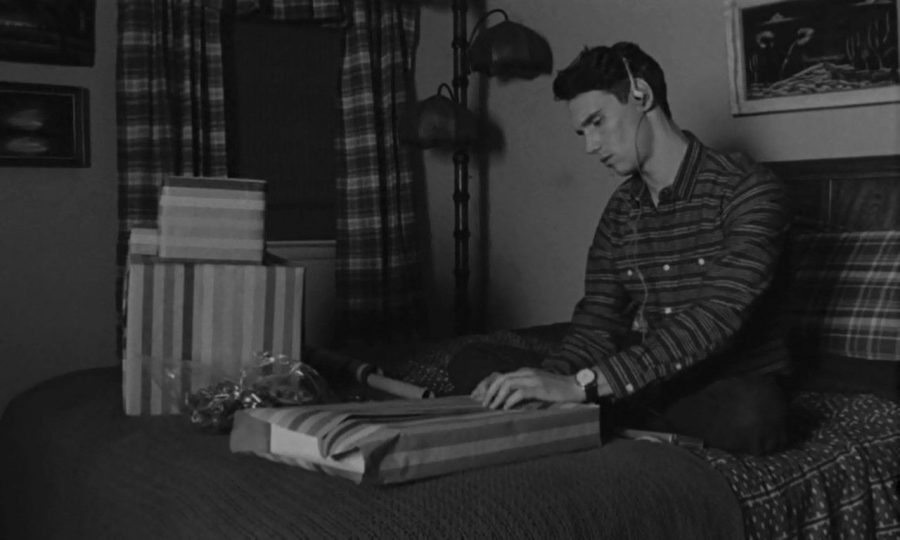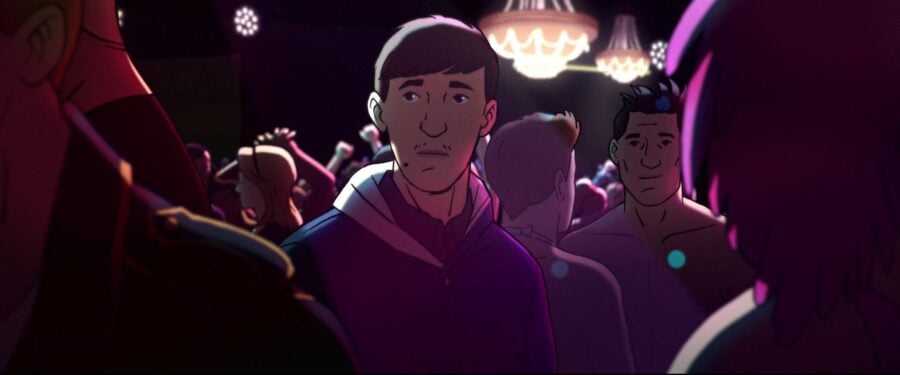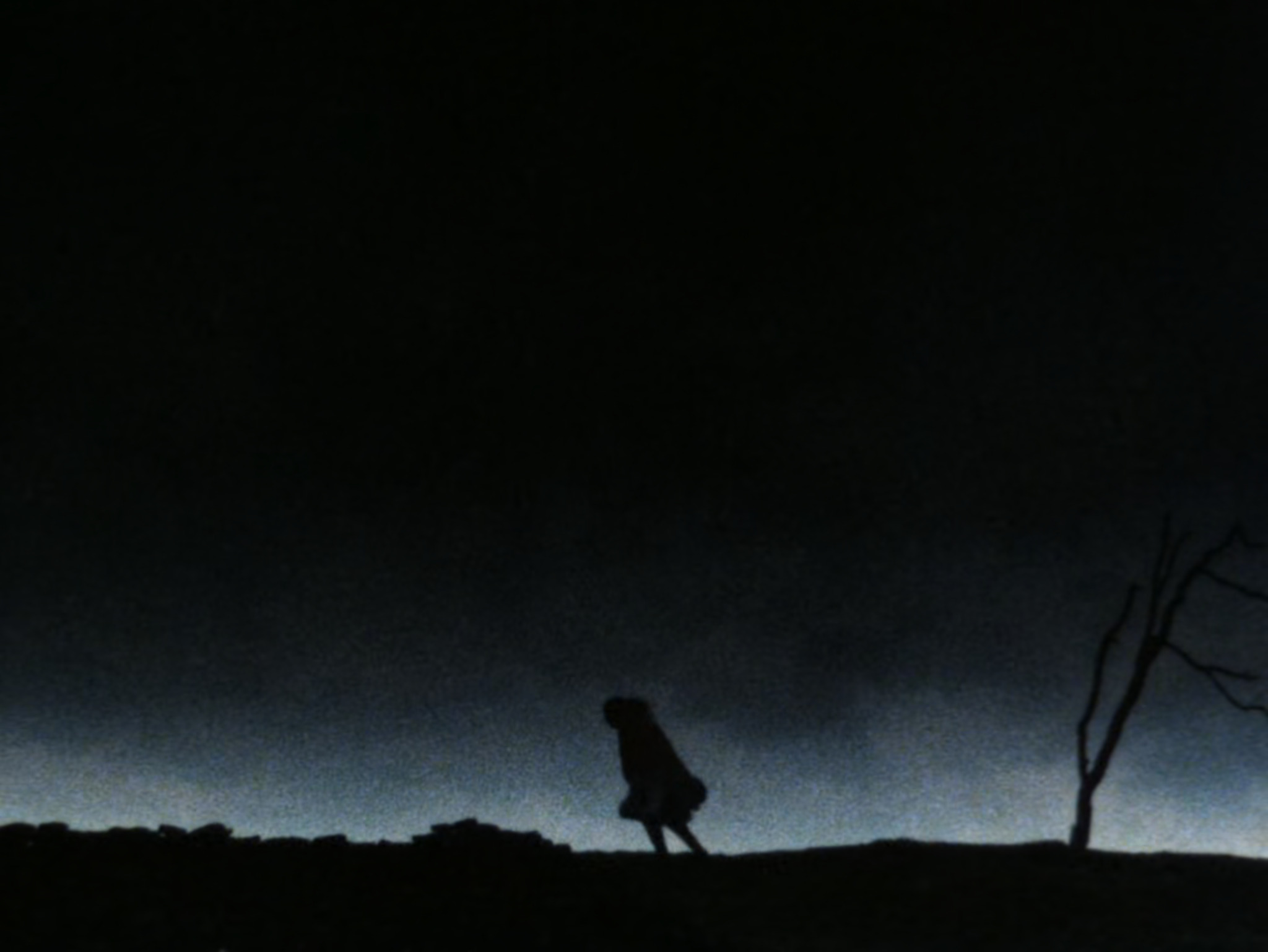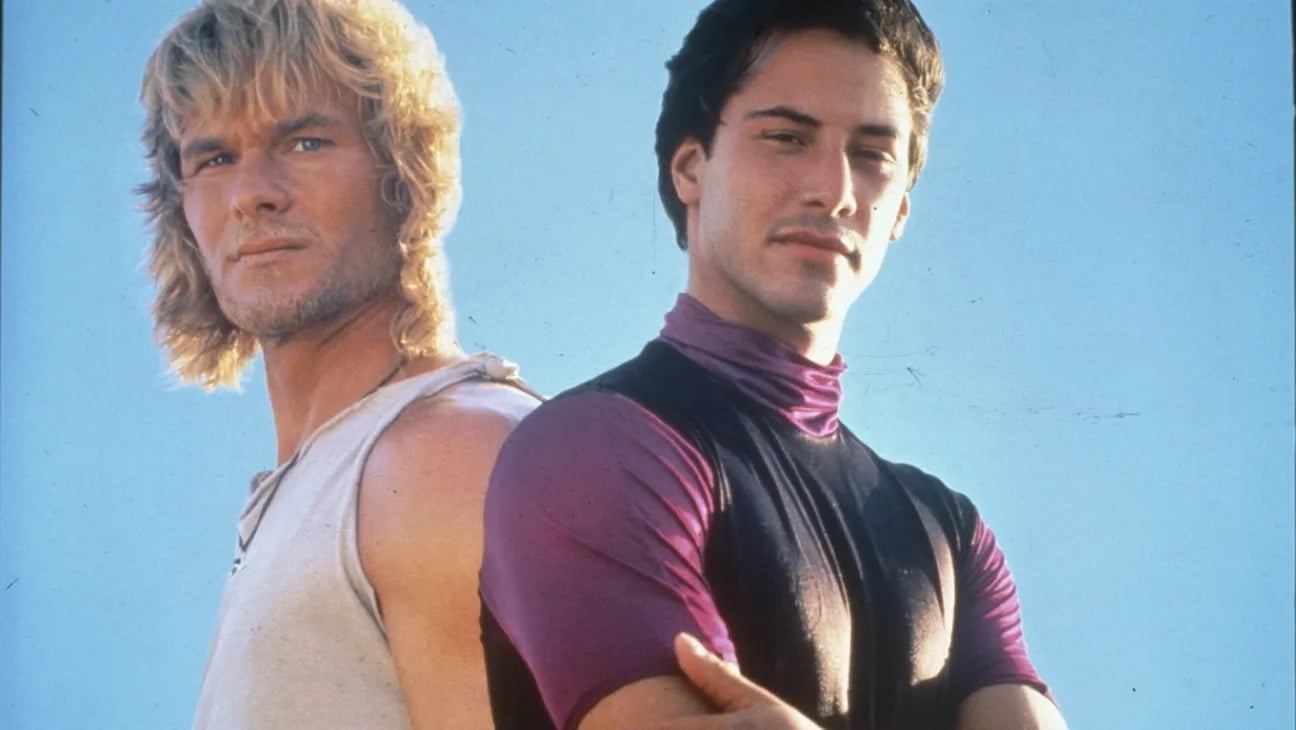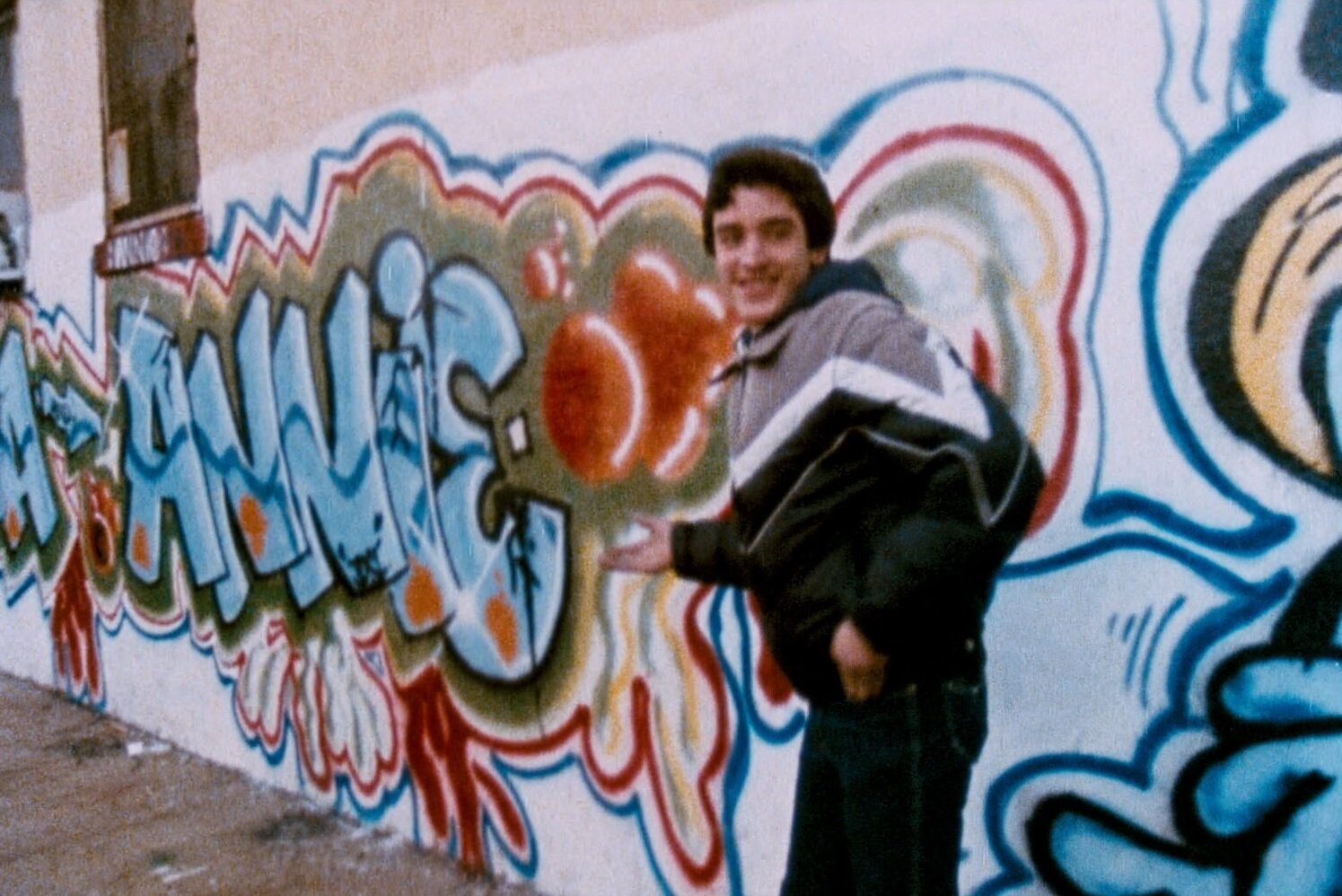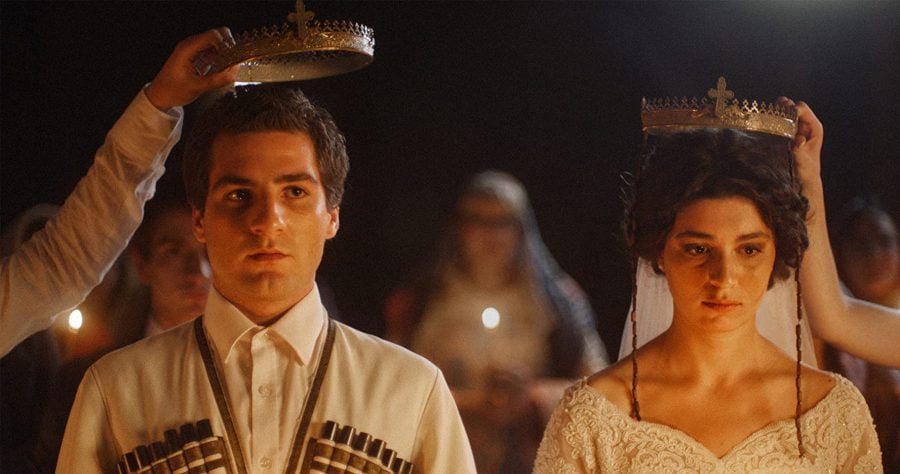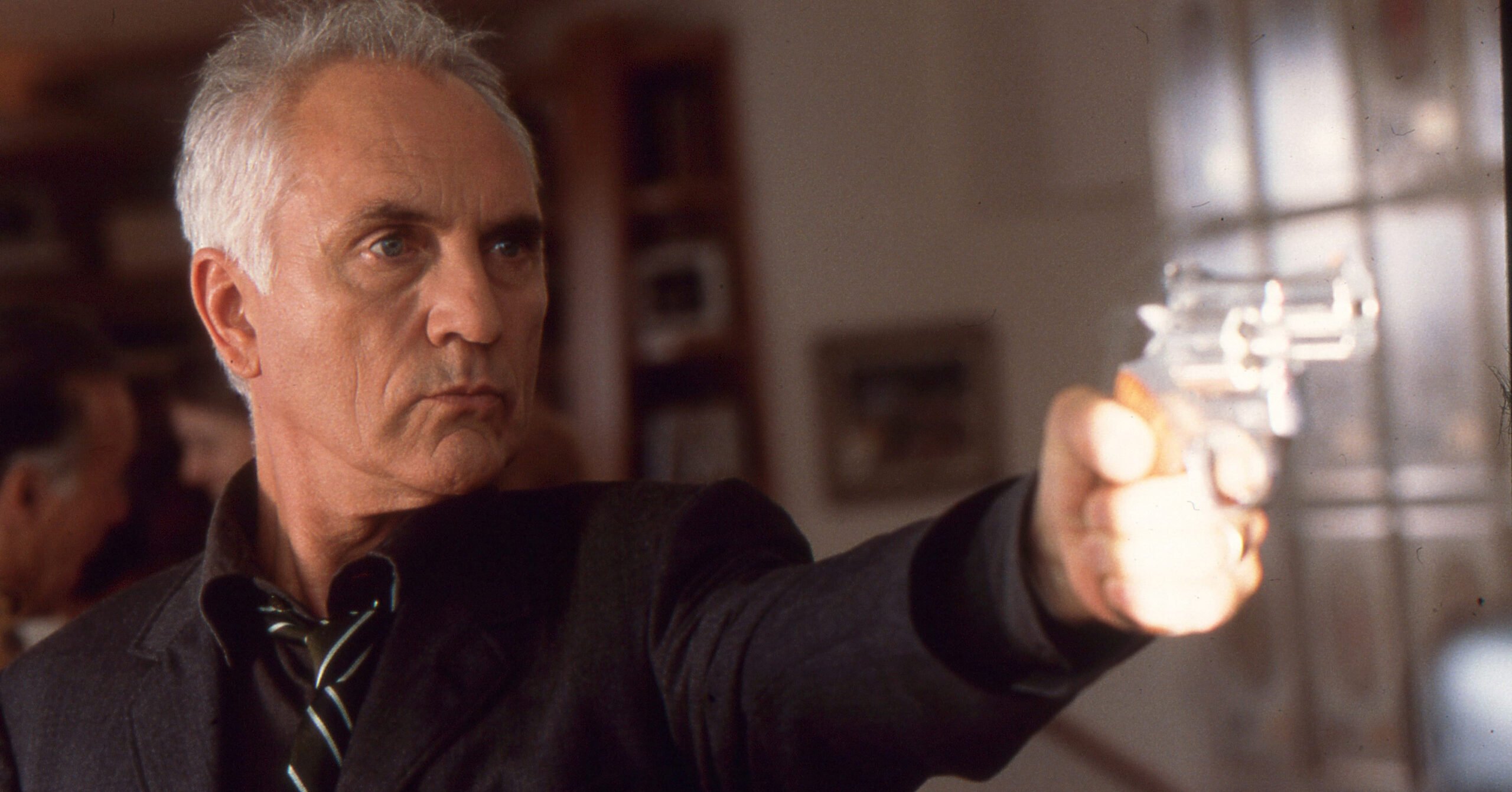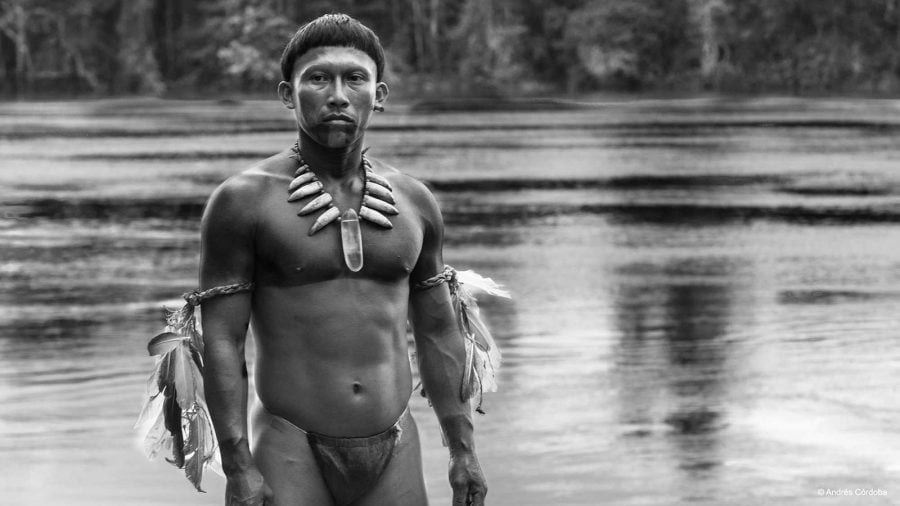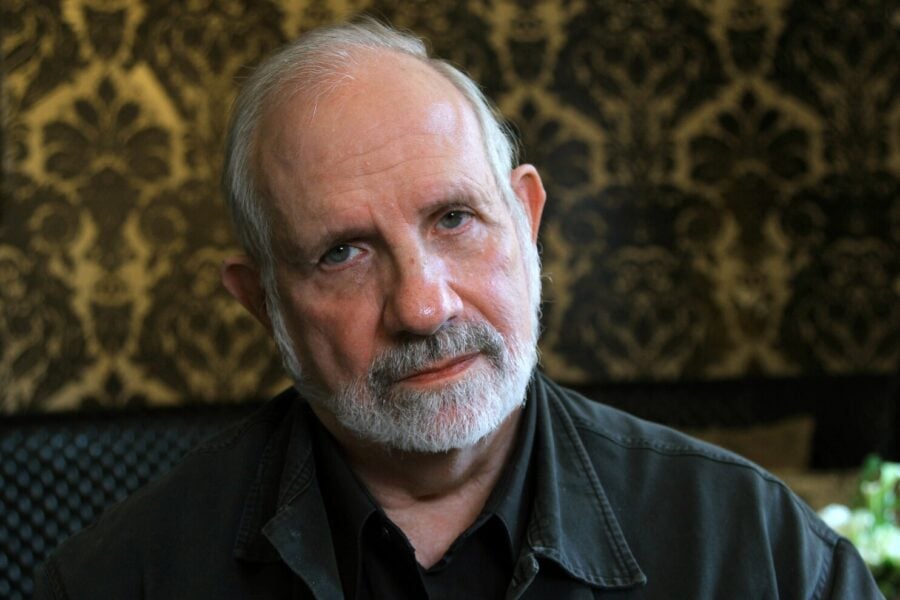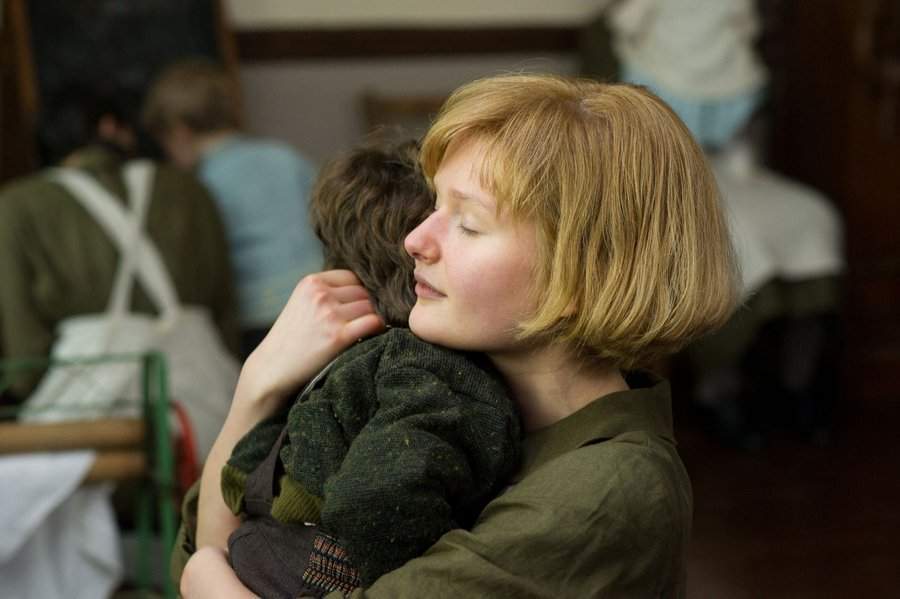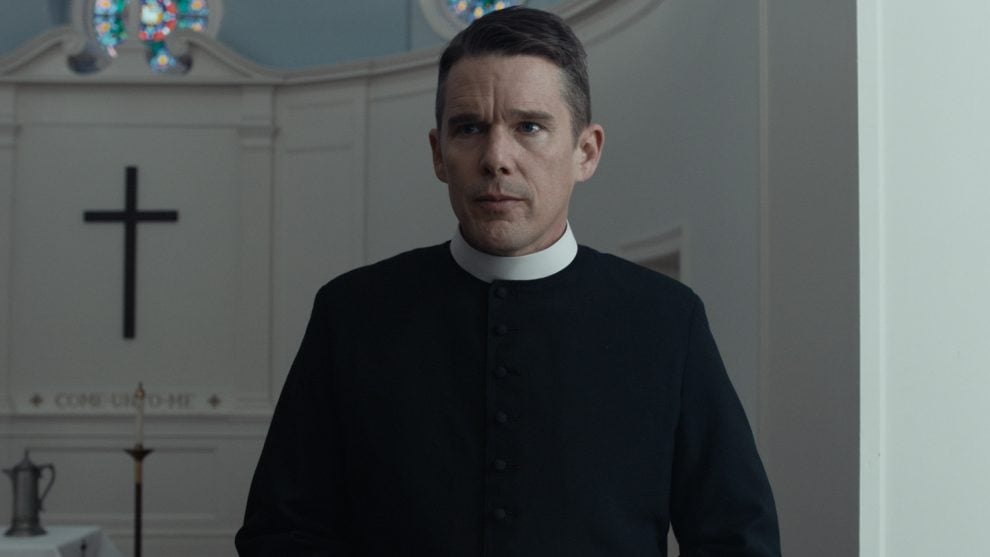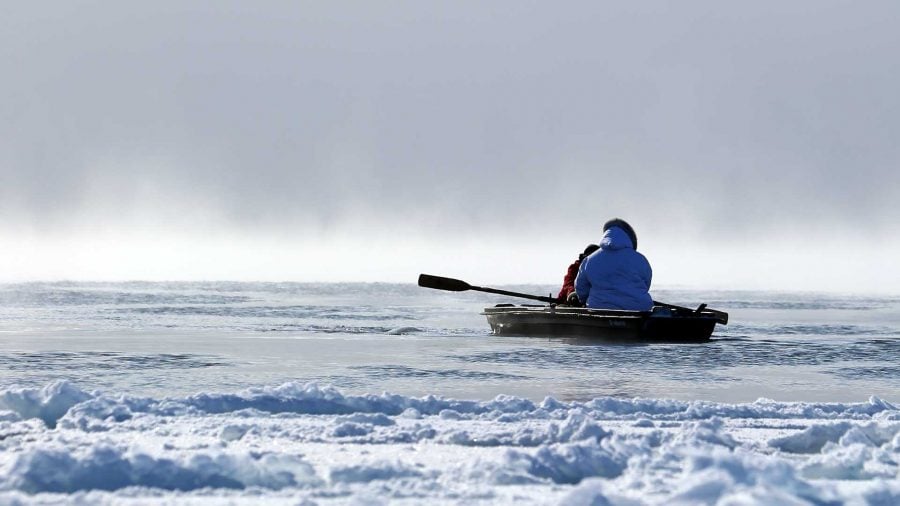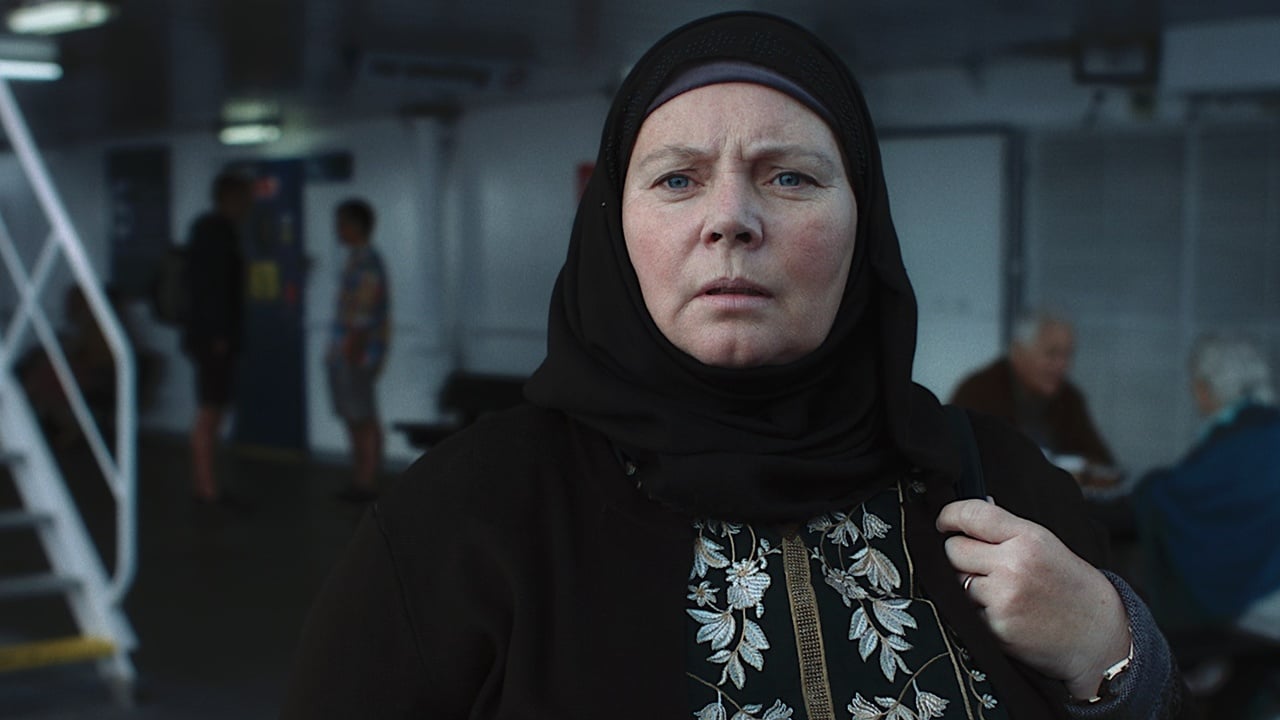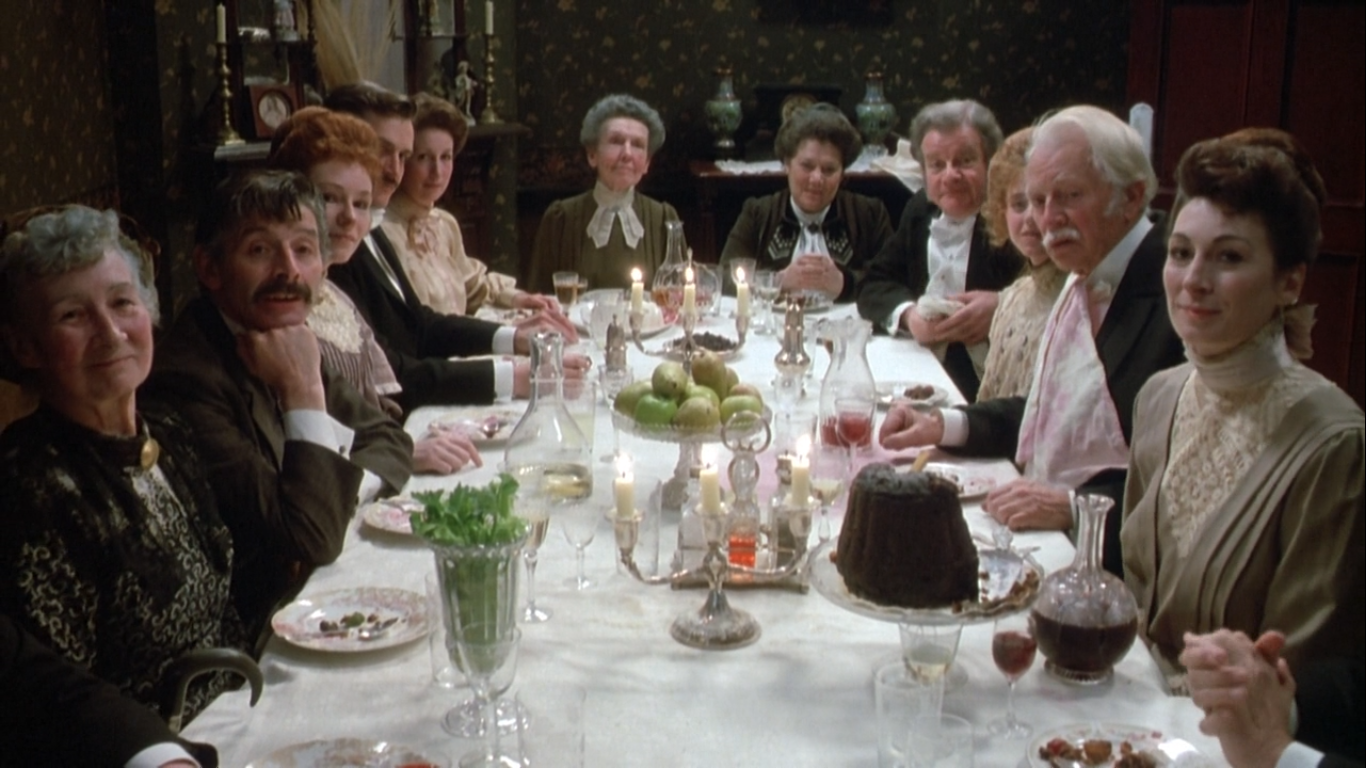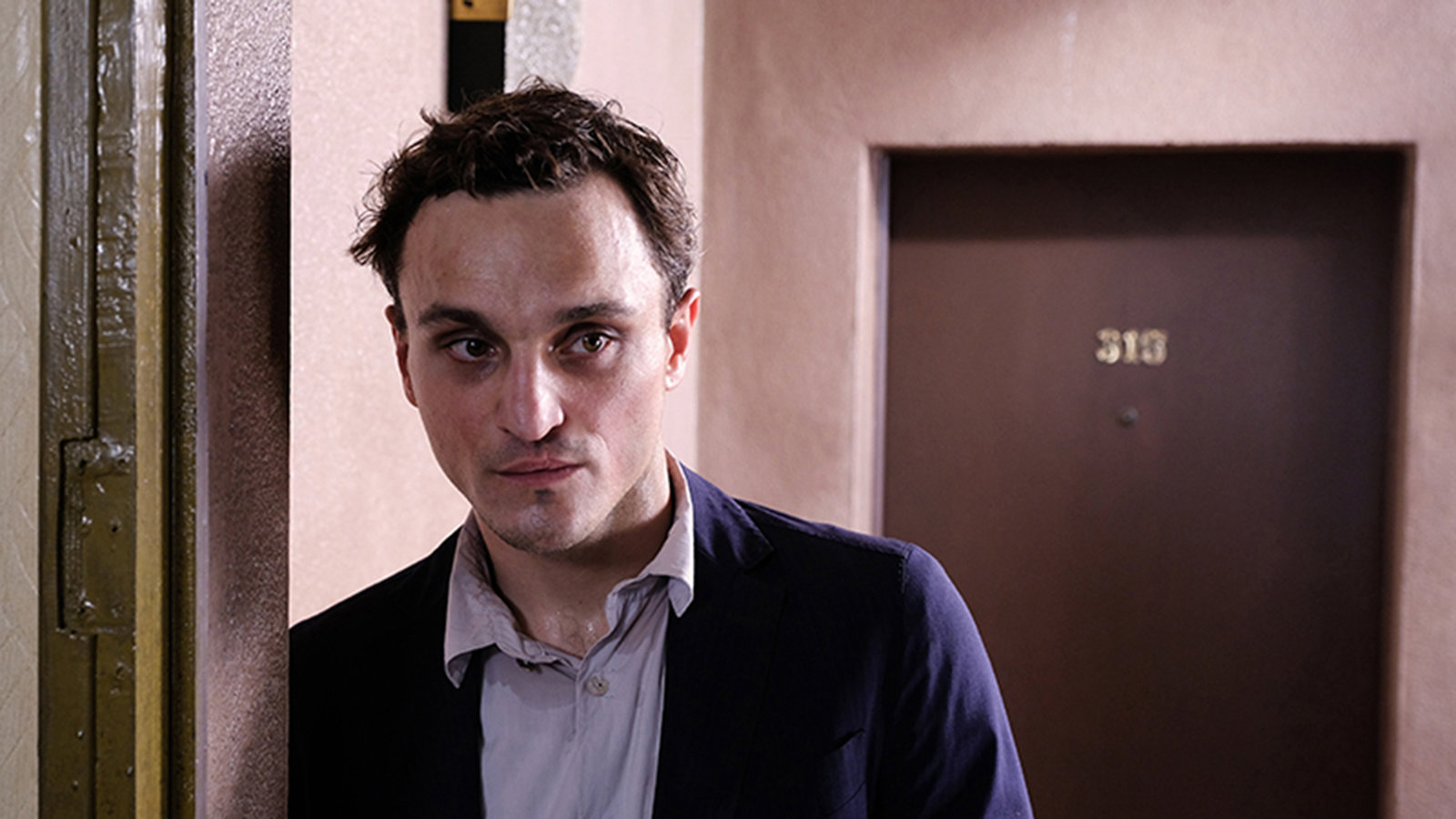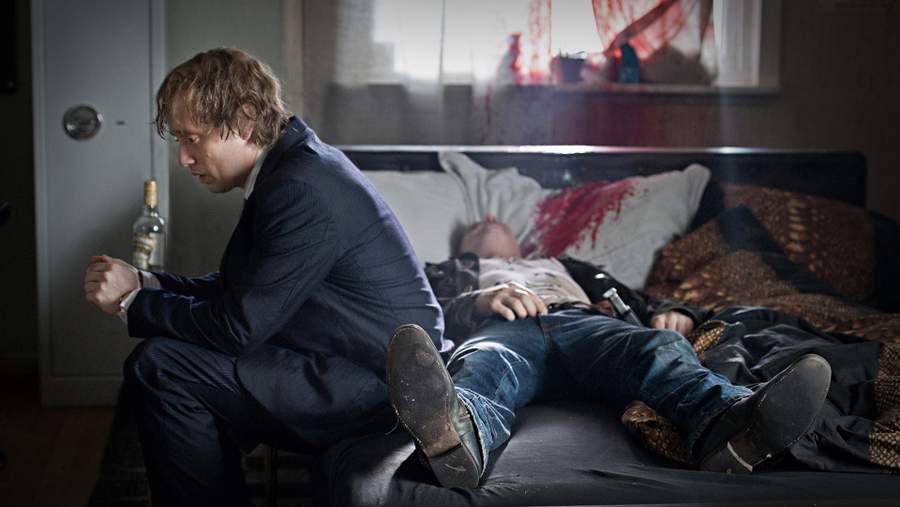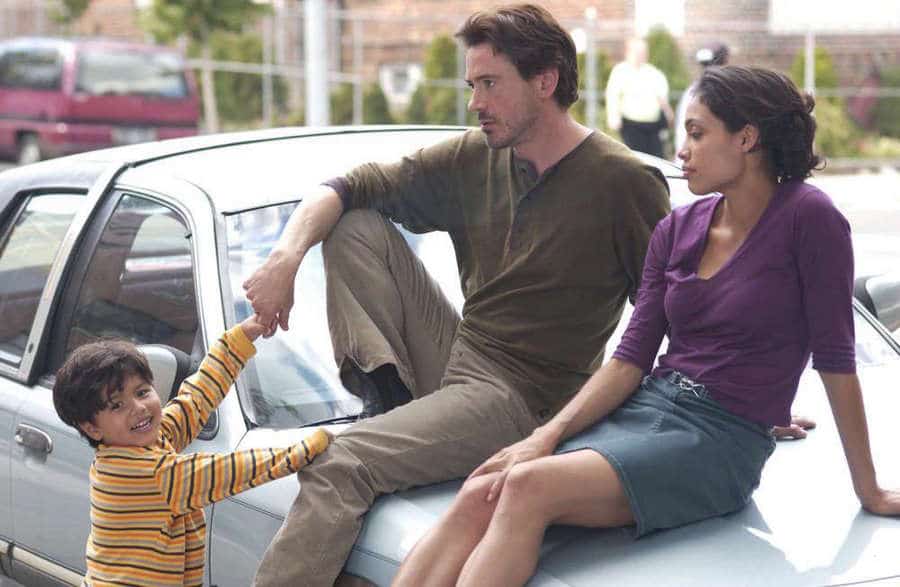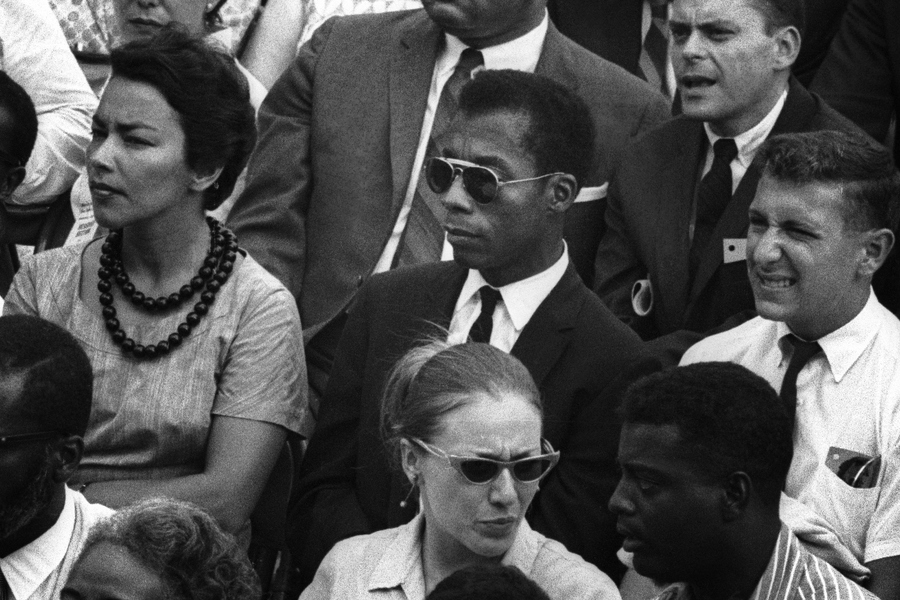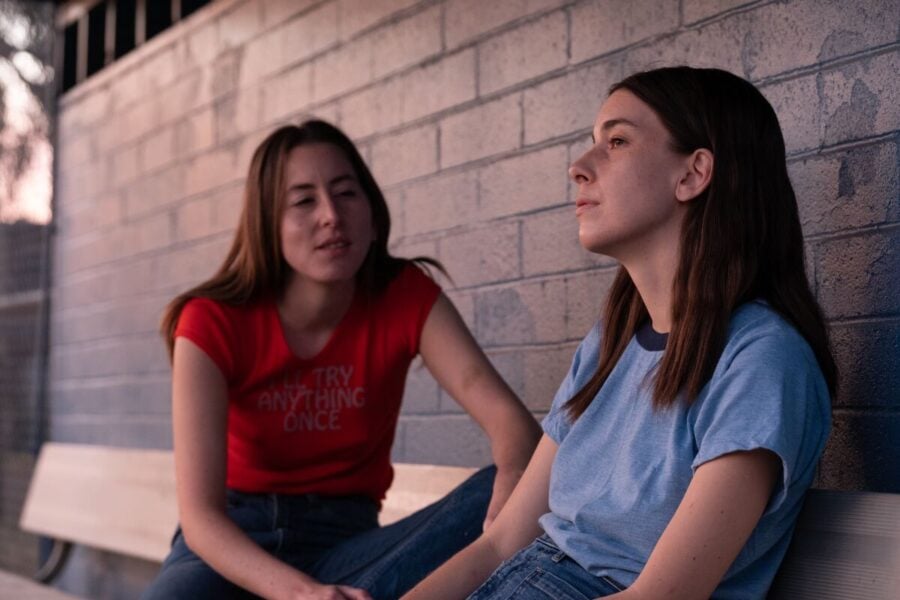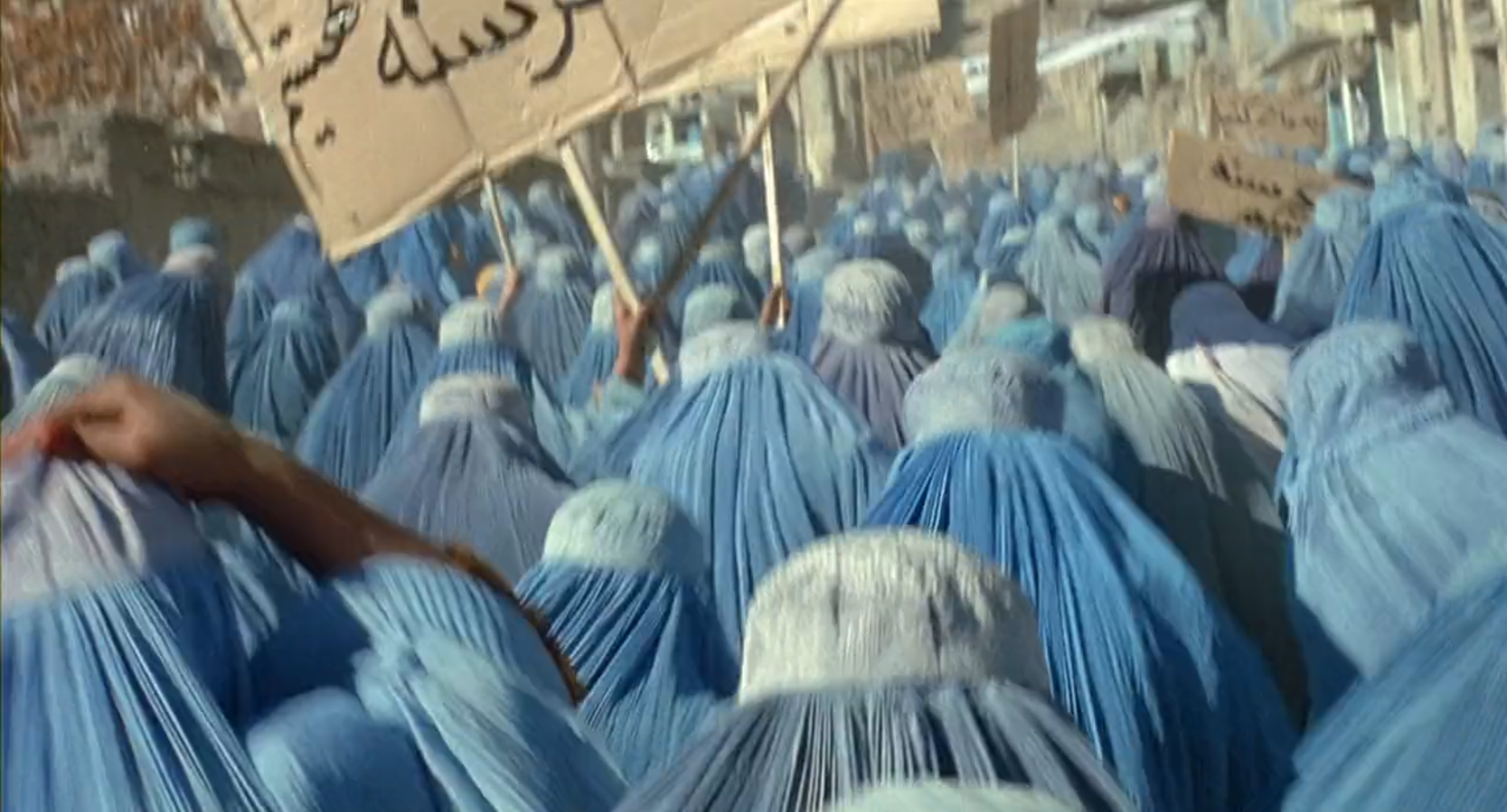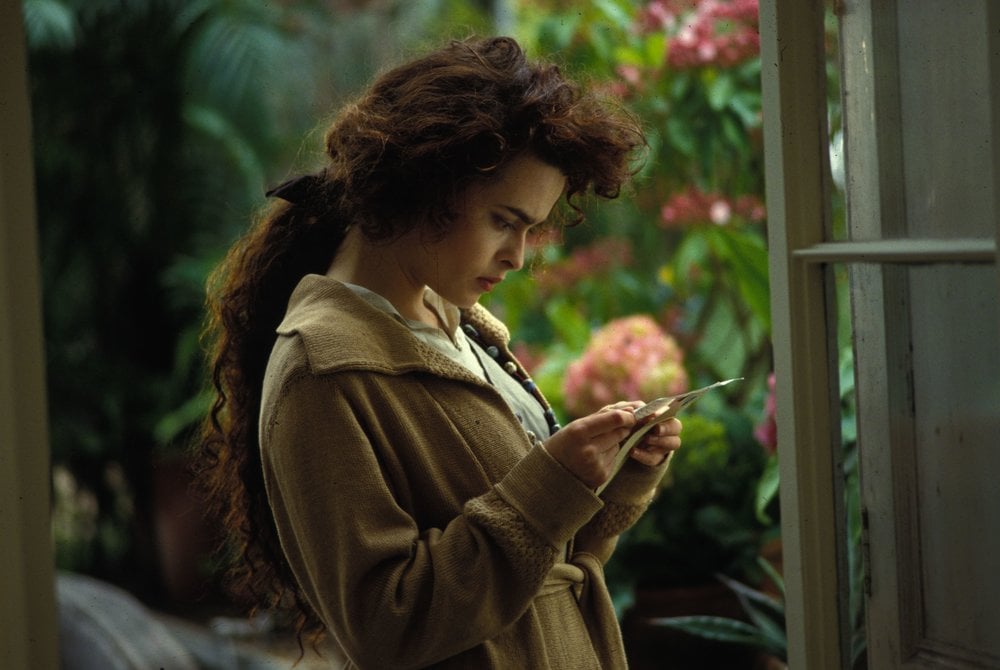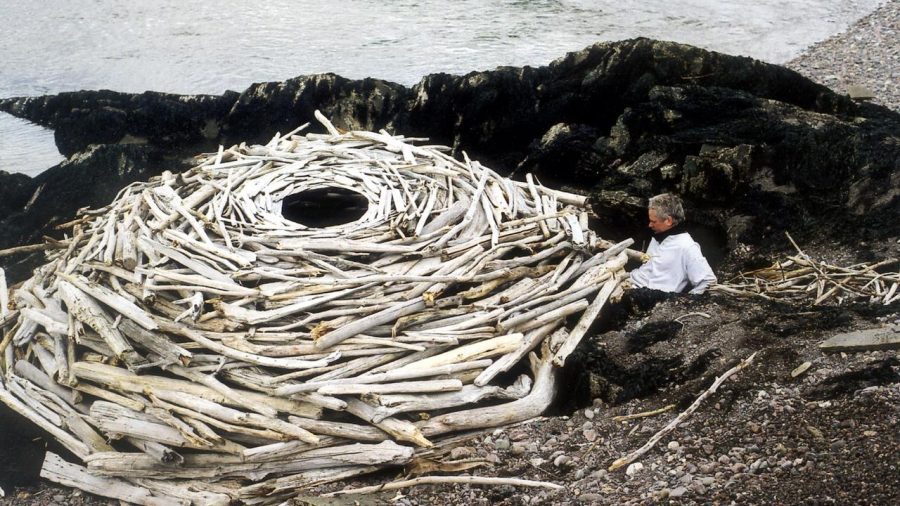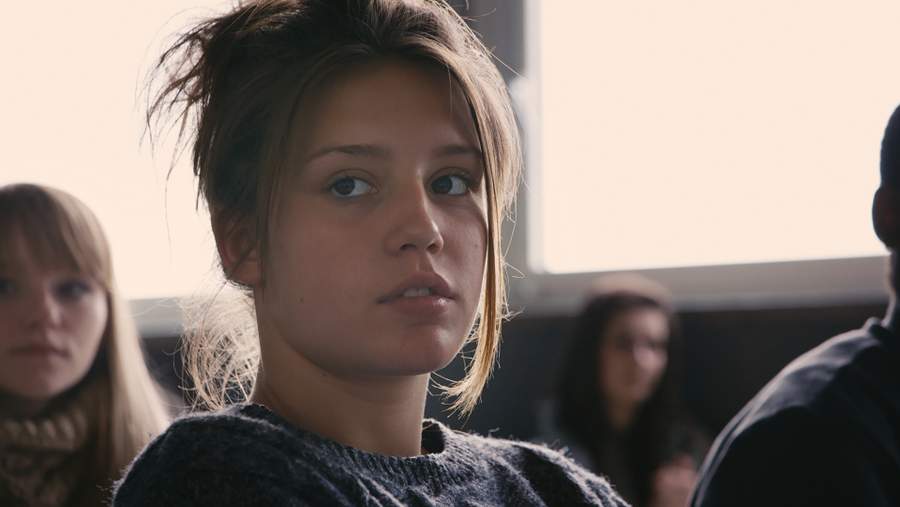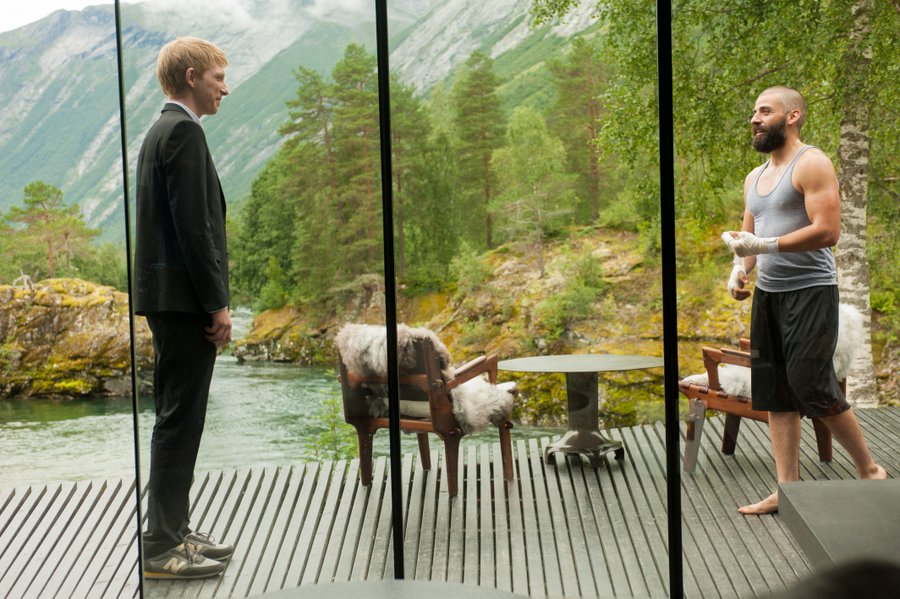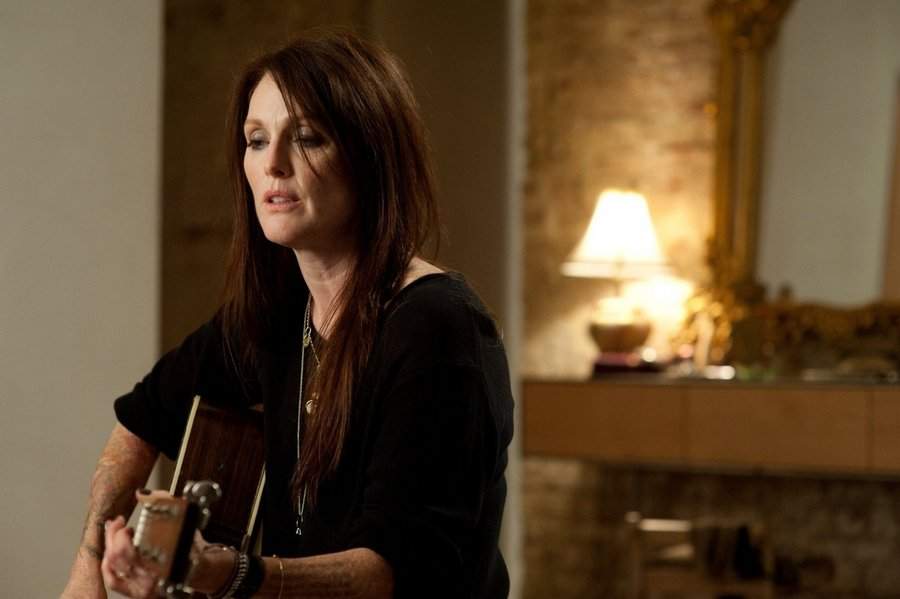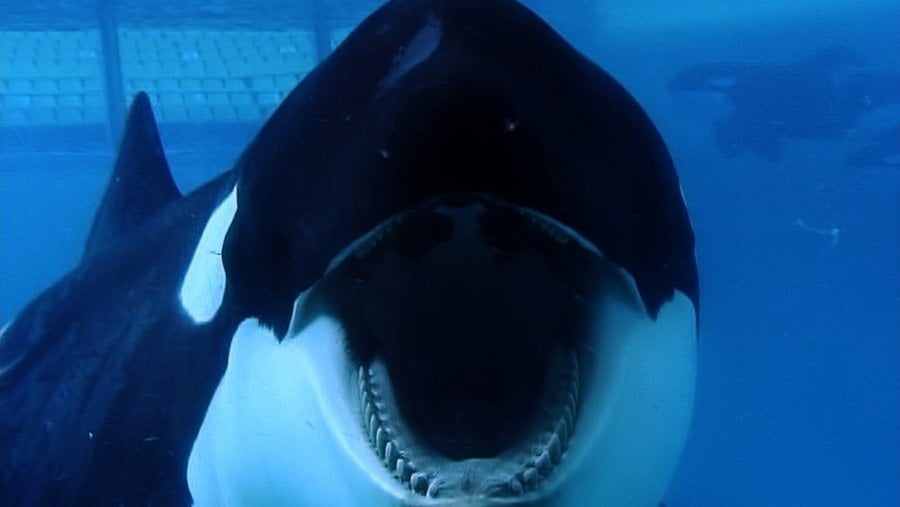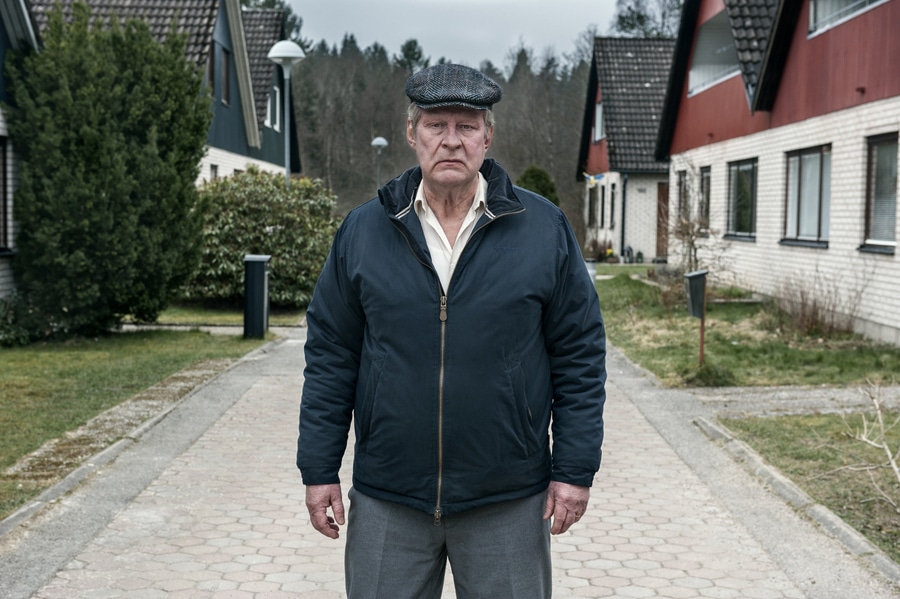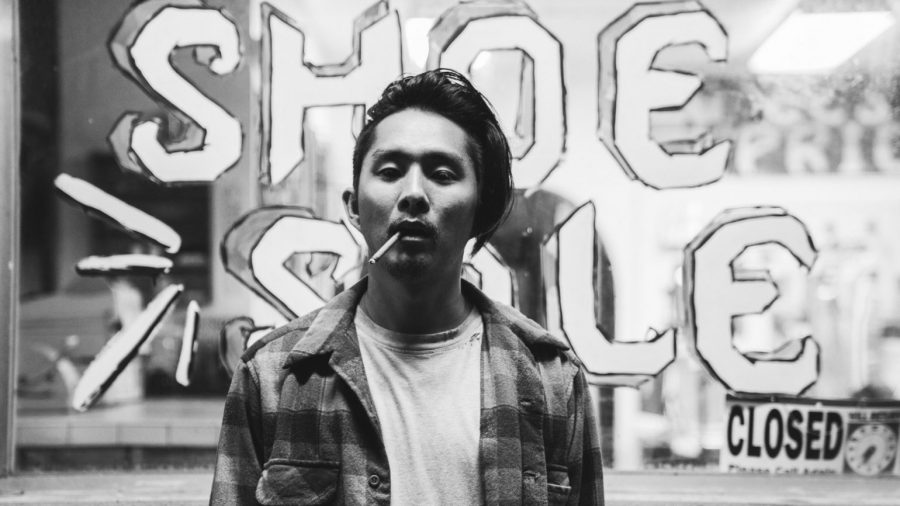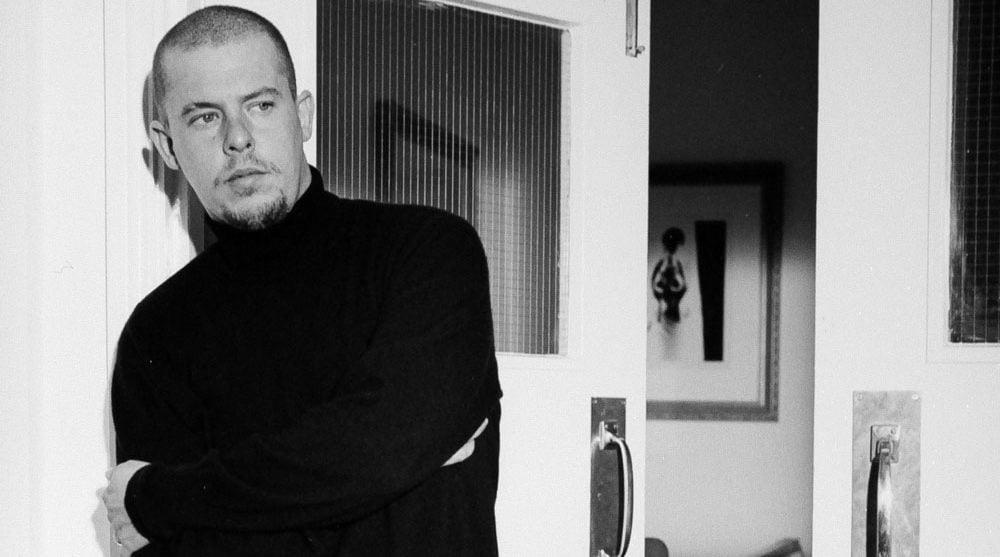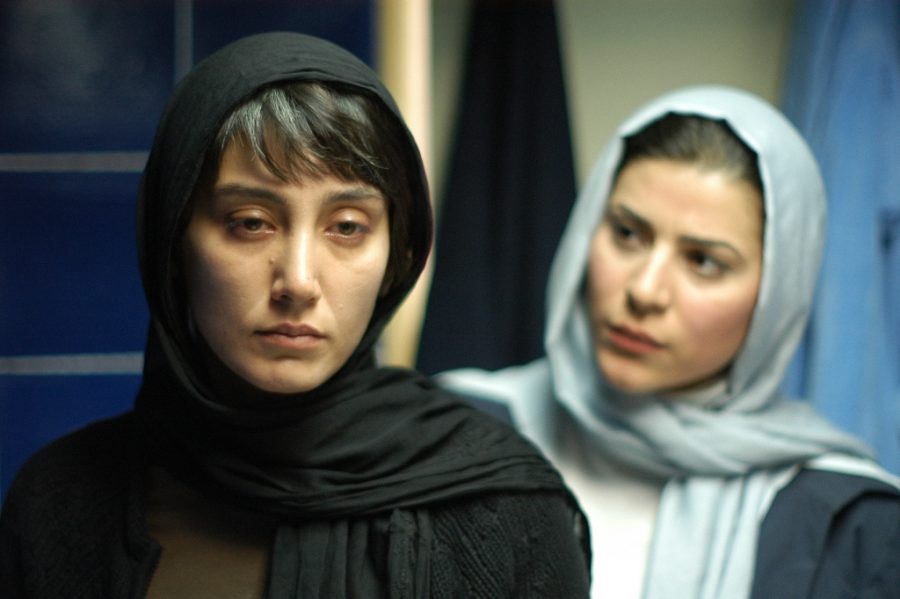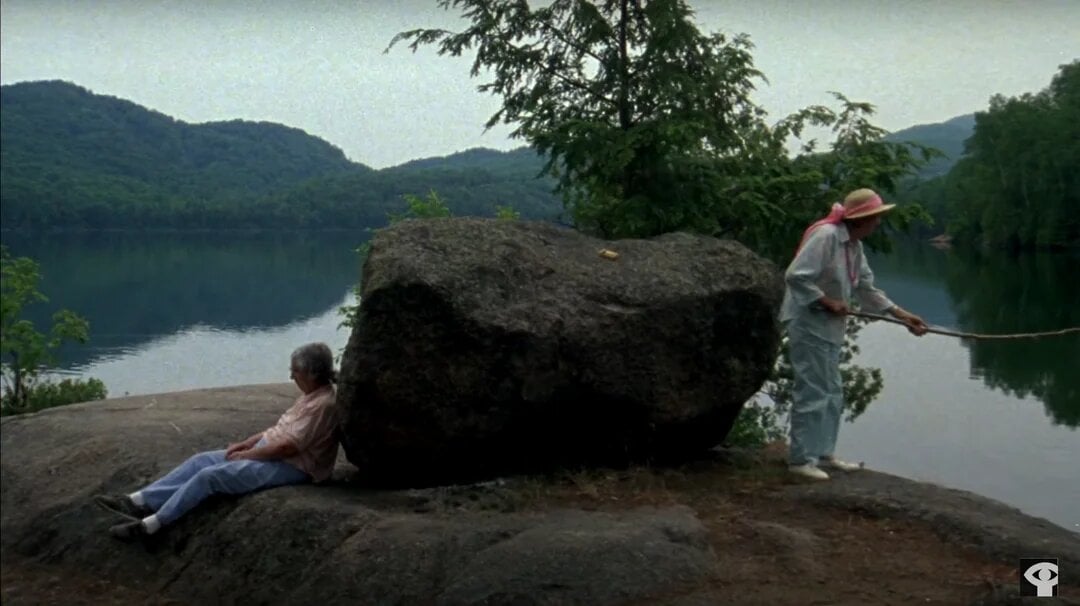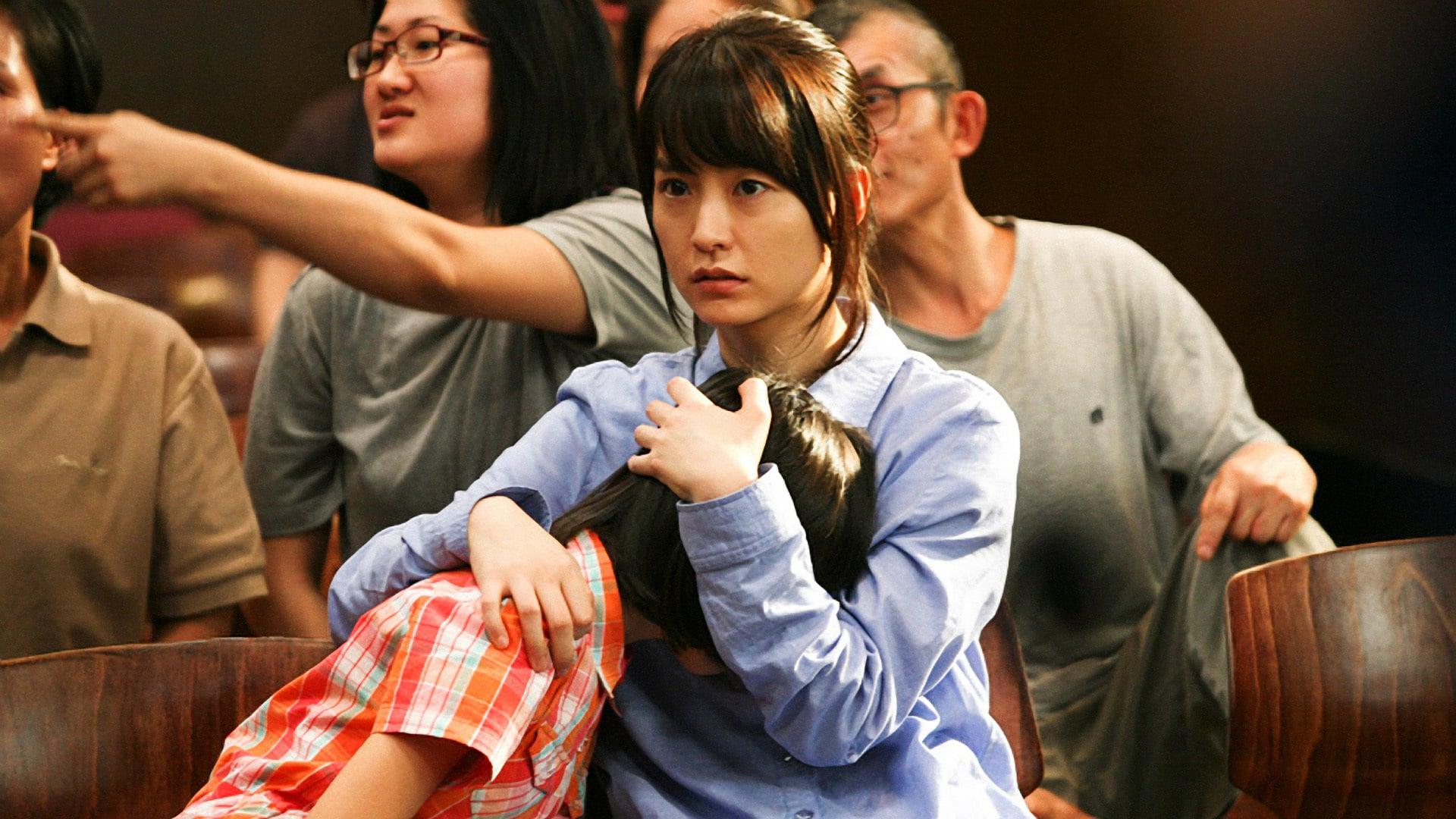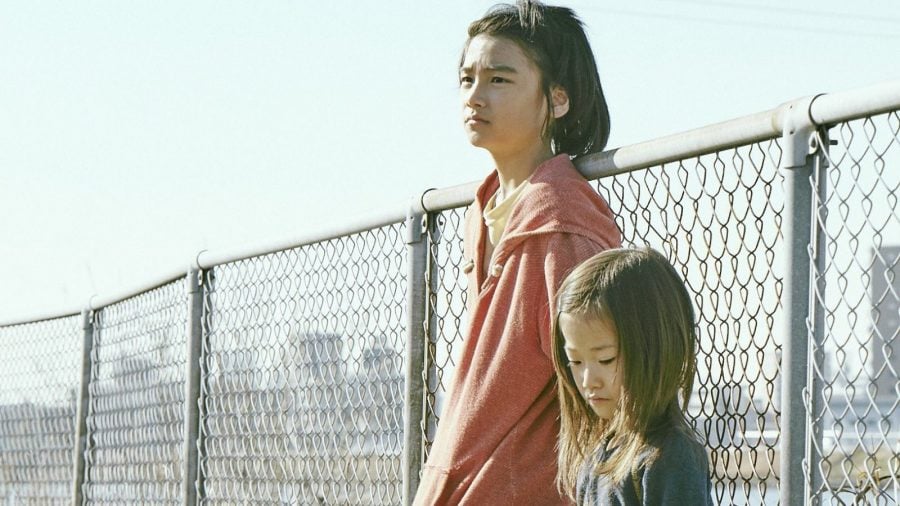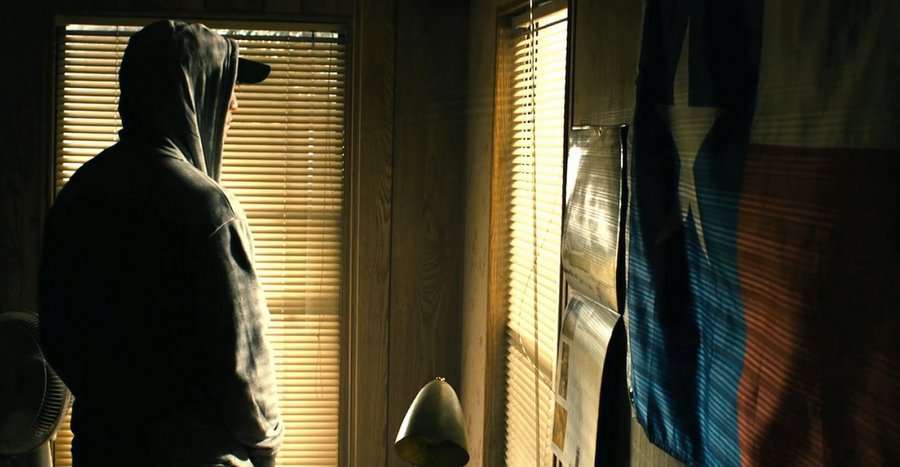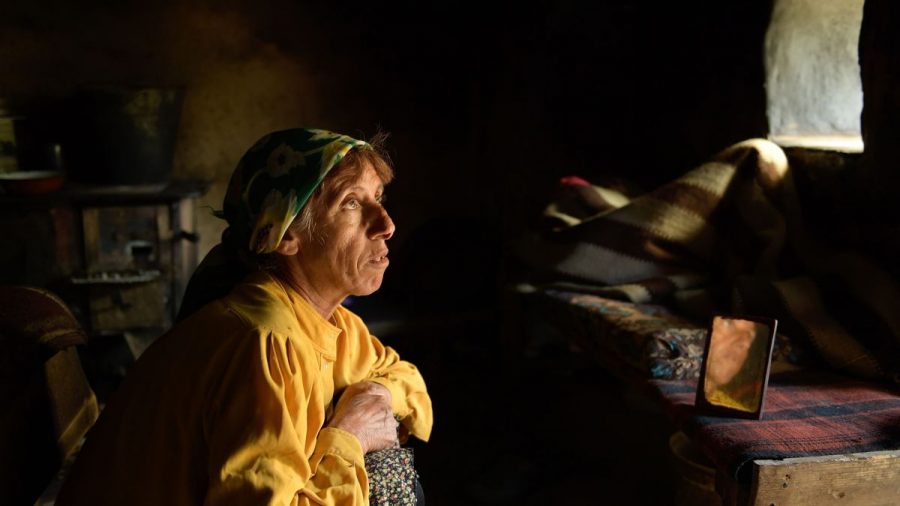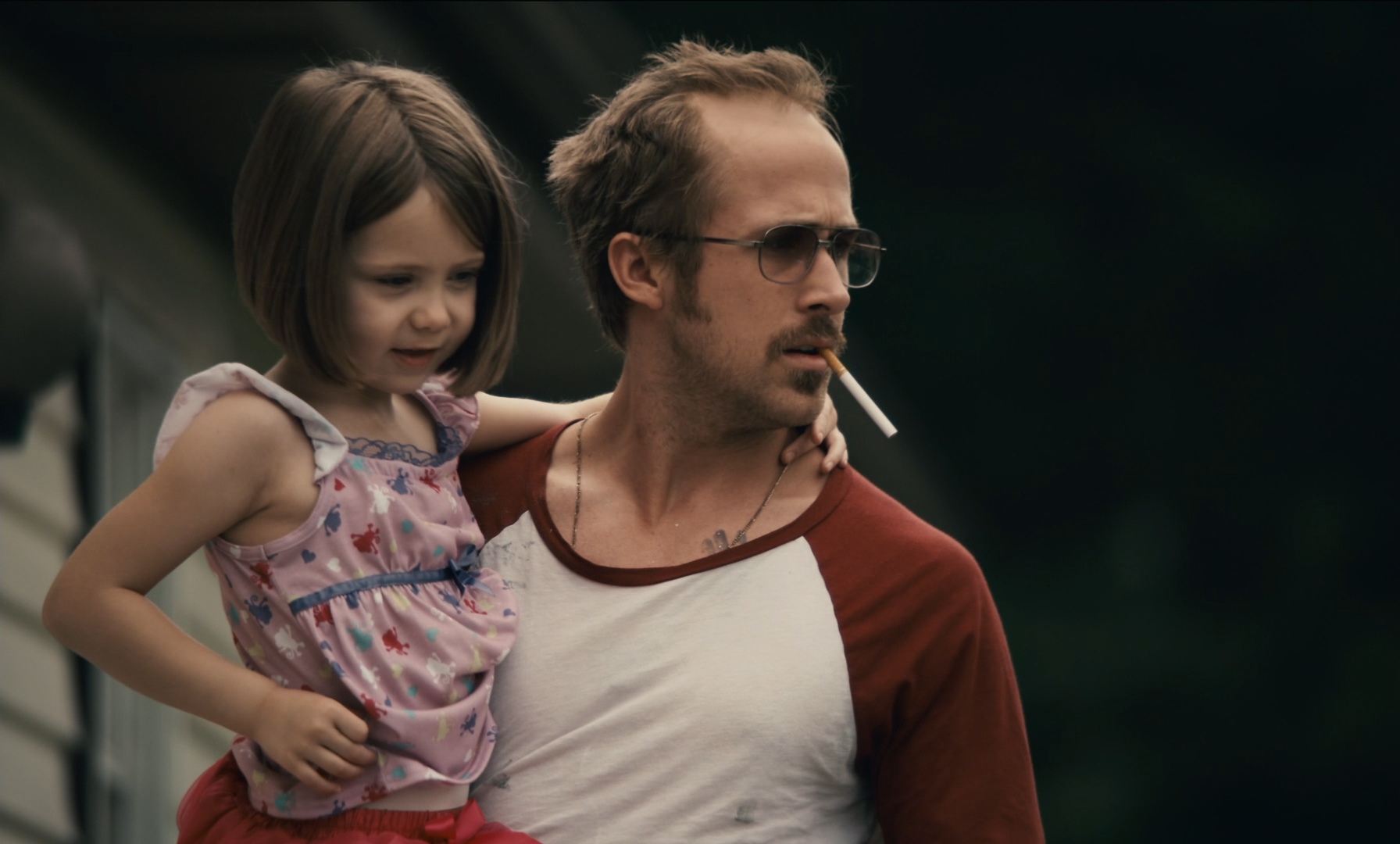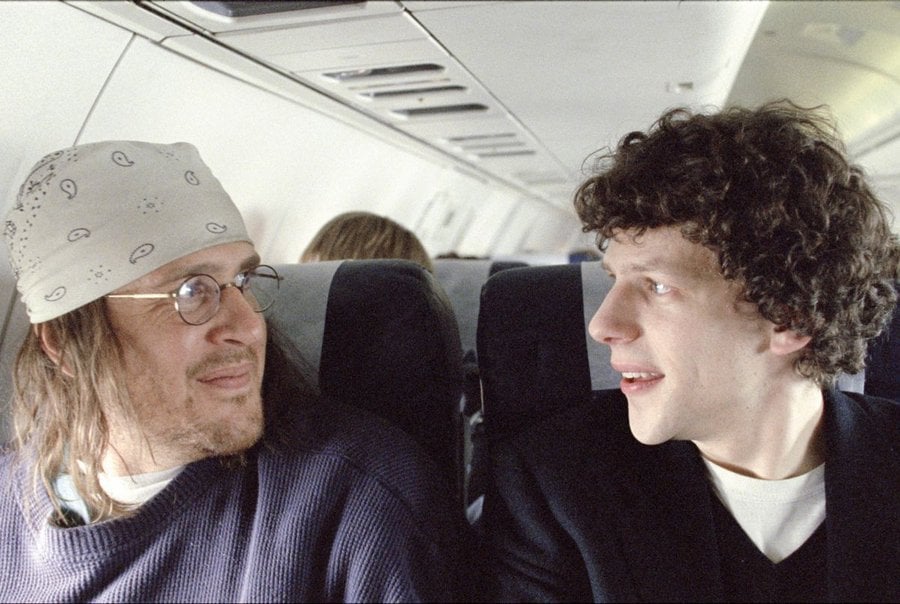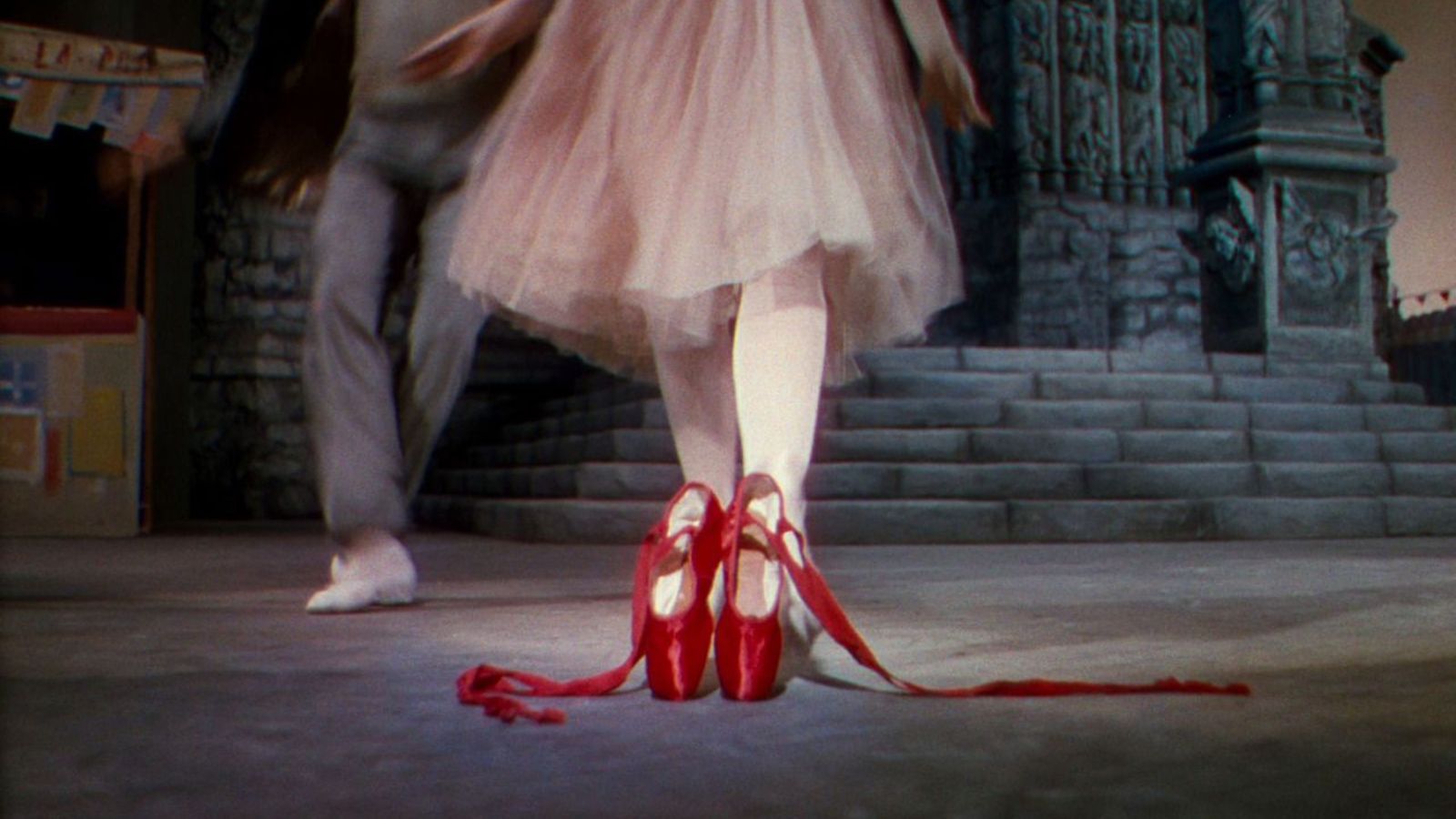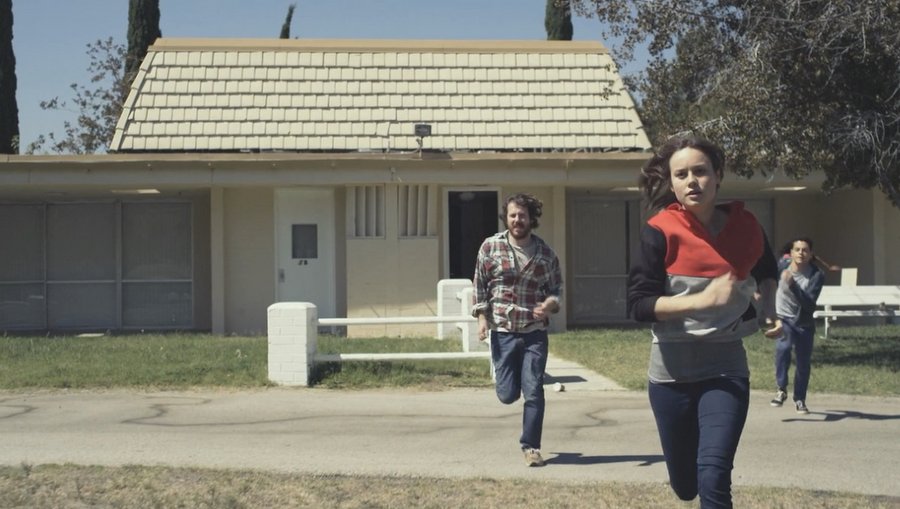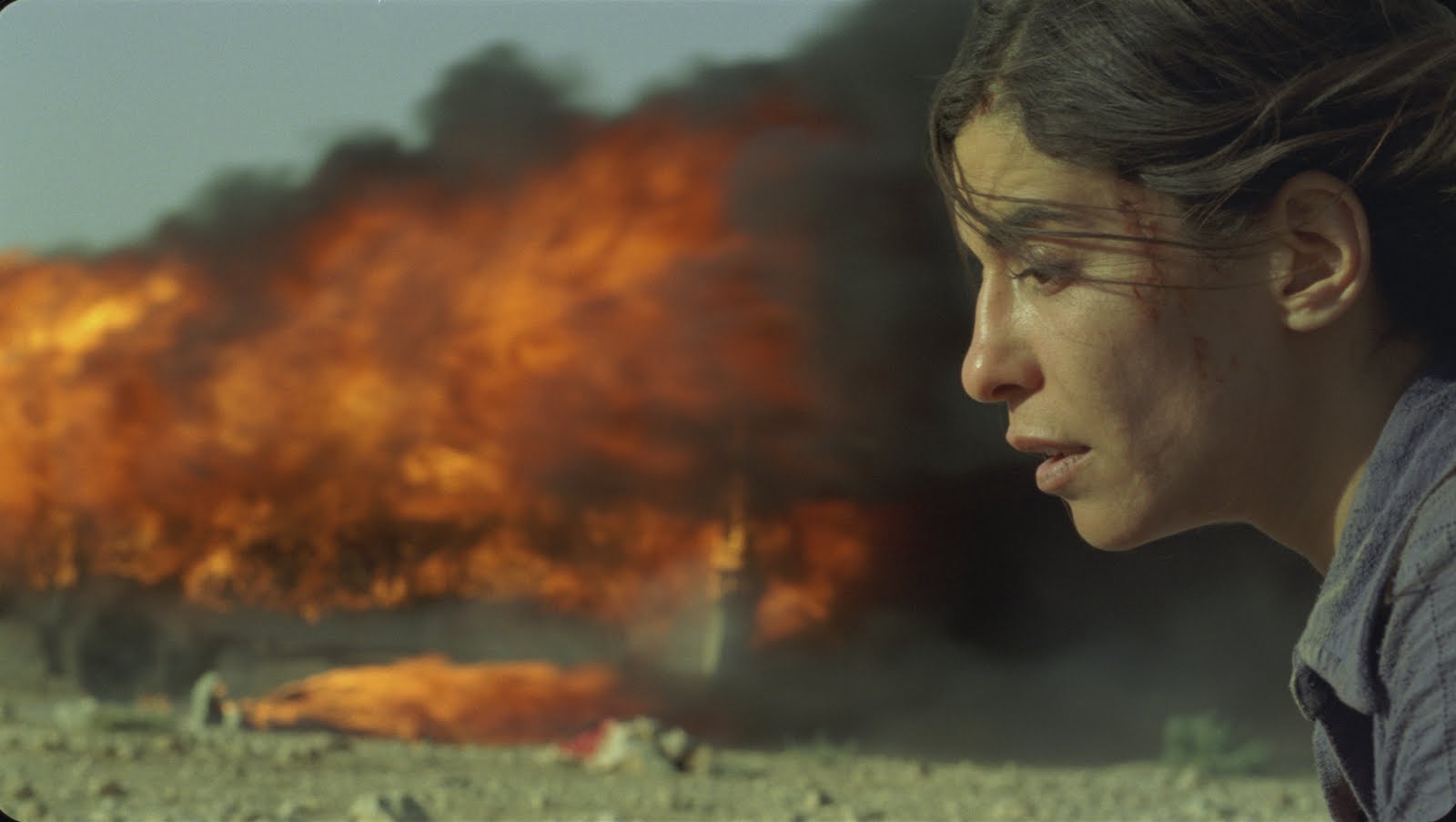The 100 Best Movies on Tubi Right Now
Tubi is very much like Netflix, except you don’t have to sign in to watch movies, and more importantly: you don’t have to pay. Tubi is ad-supported. So as long as you can stomach multiple ads stitched into the movie, then Tubi comes as a movie miracle, a treasure trove that offers some of the best cinema has to offer. Below are the best movies on Tubi that we recommend.
The manic pixie dream girl unexpectedly entering a young man’s life is the subject of plenty of romance films, to the point that this plot has become somewhat overdone, stereotypical, and overly unrealistic. However, there are moments in cinema when this archetype is portrayed well– Jab We Met is one of them. It’s joyful without being unrealistic, it’s realistic without being too jaded, and as two lost souls share the same train, writer-director Imtiaz Ali creates a feeling of freedom every time then-lovers Shahid Kapoor and Kareena Kapoor save each other from the prisons of their different, day-to-day lives. And it all comes with the song numbers as fun as the film’s leading lady.
You know how many films depict the magic and wonder of cinema in such gorgeous, magnificent scenes? Peeping Tom does the opposite. Sure, it has director Michael Powell’s signature flair, with excellently framed and colored shots, but he takes a much more violent route here, swapping spectacular fantasy with the psychological terror of how the act of filming and watching can be. Given the title, it won’t be a surprise that the film involves voyeurism, but rather than of the sexual kind, Powell hones into the morbidity of the camera gaze, the twisted pleasure that’s felt when the audience sees someone terrified, despite the violence done upon them. It’s because of this that the film was so controversial, but eventually, Peeping Tom garnered critical acclaim for breaking ground as the first slasher film ever made.
Hollywood, 1950s. A list of filmmakers were denied work due to suspected Communist Party membership or sympathies. Some folded under pressure and started naming names. Some moved to Europe. But stars like Humphrey Bogart tried to protest against the blacklist, until they were pressured to stop. So while In A Lonely Place can simply be seen as a decent novel adaptation, a great murder mystery, or an even greater romance, there’s something sublime about how the lovers, and Hollywood, coulda had a good thing goin’, if it ain’t for the suspicion within. In A Lonely Place captured that palpable disappointment and heightened tension through classic noir storytelling.
Murder is terrible, of course, but it proves to be surprisingly hilarious in Kind Hearts and Coronets. On top of all the ridiculous schemes Louis Mazzini cooks up, this ironic comedy of manners sets up its unfortunate deaths through Louis narrating his memoir in a detached tone, explaining away the deeds as if it was a natural consequence for the aristocratic snobs in his family. But the dry tone doesn’t quite conceal Louis’ wickedness. In fact, it highlights the horrible desires he’s dreaming of, poking at the fascination around British nobility without the usual melodrama these stories tend to have. It’s this brilliant twist that made Kind Hearts and Coronets so delightfully wicked.
The Goodbye Girl is a charming romantic comedy following single mom Paula and her 10-year-old daughter Lucy (Quinn Cummings) as they reluctantly share their apartment with Elliot, a friend of her ex subletting the place. The plot is formulaic: Paula and Elliot are at each other’s throats, constantly sniping at each other while simultaneously charming us with their verbal acumen and physical dynamism. Dreyfuss is particularly stunning—he’s unpredictable at every turn, giving a twirl here and doing an accent there. He nabbed the Best Actor award at the Oscars that year, and rightly so. Then slowly but surely, they fall in love. No surprise there, but the whip-smart script (penned by Neil Simon) and the lively performances are what save the film. Even Lucy gets to drop laugh-out-loud one-liners while still being believably her age. It’s an all-around likable film, as well as a masterclass in romcom charm and acting.
There are plenty of films about dreamers, but none as wild and wacky as Fitzcarraldo. The film follows the titular opera-loving foreigner, who’s obsessed with creating an opera house in the middle of a jungle, and tries to get the funding for it throug the rubber business. It’s a pretty wacky premise, and a pretty wacky tale, but it’s the perfect film to challenge famed eccentric auteur Werner Herzog, who got a 320-ton steam boat hauled into the Amazon, had multiple recasts due to illness, and had conflict with leading man Klaus Kinski so tense that assassination was offered by one of the extras, among other troubles. Strangeness aside, Fitzcarraldo proved to be an audacious, operatic epic, garnering numerous nominations for the Palme d’Or, Golden Globes, and the BAFTAs.
The best way to watch this movie is to be completely unprepared; it’s a super indie (sub 1 million dollar budget) Canadian thriller that completely wowed critics and audiences, even as it (and we’re being honest here) totally freaked them out. So, no spoilers, we can let you know it’s an internet thriller with shades of Little Red Riding Hood, hyperrealistic violence, and extremely surprising plot twists. Also, there’s less than 9 minutes of music in the entire film, which instead uses creepy ambient noises and breathing, so, yeah, it gets a bit tense.
Blue Ruin is a superbly acted, visually striking drama about a man’s poignant and brutally violent journey for revenge when the culprit responsible for the murder of his father is released from prison. While it might seem like any other revenge tale, it is so well-told and smart that any other similarities with its crowded genre gently fade away.
The first 15-20 minutes are pretty slow, but the pay-off is hot fire.
A popular chef loses his job and respect after a bad review. He ends up with a food truck and tries to show the world he still has his creative side, while at the same time trying to fix his broken family. Chef is a heartwarming feel-good movie, after you finish it you will want to cook, love your family, travel, and spread the love. One of my favorite movies, I see myself happily watching it again numerous times.
This is Kristen Stewart’s proof that she is more than a lip-biting, vampire-loving teenager. Reactive and emotive, she will not disappoint you here. Rather, expect an electrifying and exceptional performance. Paired with Payman Moaadi, they both make of this work an emotionally poignant movie that questions the notion of freedom in the unlikeliest of places: Guantanamo Bay.
In 2010, Dutch 15-year old Laura Dekker set out on a mission to be the youngest person to sail solo around the world. Maidentrip is the beautiful and inspiring documentary film that tells her story as she took on this behemoth task.
The film lets you experience this adventure of a lifetime along with Laura, share at first in her loneliness at sea, and later in her desire to be left alone when surrounded by people. Documenting her thoughts and feelings during this voyage, Laura reveals herself to be wise beyond her years. Yet despite the magnitude of the task Laura has taken in, her teenager self still glows clearly with its distinct child-like quality – simply wanting to do what makes her happy – sailing and seeing the world. The sheer honesty in Laura’s narrative is what makes this story so extraordinary. You will accompany the young skipper against all odds as she follows her dream and in the process, lose and once again find her identity and sense of belonging. Maidentrip will leave you with an itch – an itch to travel, but more importantly, an itch to follow your dreams.
A beautifully intertwined love story showing the ups and downs of a father, his ex-wife, and their children experiencing love. The film weaves the three love stories of the different generations seamlessly and leaves you caring deeply about the characters. It has an amazing soundtrack added to fantastic acting that will make you feel as though you are living the same experiences as the quirky, screwed up family. It’s a movie for anyone in the mood for a romantic comedy with a little more substance than your average rom com.
Five orphaned sisters are put under house arrest by their uncle and grandmother after they are seen horsing around with local boys from school. While their actions were purely innocent, their behavior is viewed as scandalous and shameful by the conservative elders in their small Turkish village. After this incident, their grandmother turns her attention towards marrying off her granddaughters. Each of the five sisters rebel in their own way, but it is the youngest and rowdiest sister, Lale, who is the central protagonist of the film. She watches helplessly as each of her older sisters is married off with an increasing sense of dread and desperation. While this may sound hopelessly depressing, the movie is equal parts beautiful and tragic and floats across the screen in a dreamlike manner. Not all of the sisters escape their oppressive surroundings or their assigned fate, but the message is clear: it’s crucial to try.
This is a low-scale, intimate, almost minimalist movie that speaks volumes about the misconceptions that westerners have regarding the Middle-East. And the performance of Richard Jenkins is absolutely exceptional (earned him a nomination for the Oscars). He plays a professor who comes back to his New York apartment only to find two immigrants living in it. What a great role and what a great film.The Visitor is from the director of The Station Agent and very recently Spotlight, Tom McCarthy.
This is a hilarious political comedy starring the ever-great Steve Buscemi. Set in the last days before Stalin’s death and the chaos that followed, it portrays the lack of trust and the random assassinations that characterized the Stalinist Soviet Union. Think of it as Veep meets Sacha Baron Cohen’s The Dictator. Although to be fair, its dark comedy props are very different from the comedy that comes out today: where there are jokes they’re really smart, but what’s actually funny is the atmosphere and absurd situations that end up developing.
Wendy (Michelle Williams) is a drifter driving up to Alaska in hopes of finding work. When her car breaks down, she and her dog Lucy are stranded and forced to scrounge for food and repairs, hitting one roadblock after another on her path to an uncertain dream. This sympathetic and solemn look at poverty from director Kelly Reichardt serves as a reminder of how easy it is to fall through the fragile American safety net.
Reichardt’s uncompromising approach paired with Williams’s restrained performance makes the experience authentic and intense, recalling the work of Ken Loach. This natural sharpness makes for an engrossing watch that builds in power until the emotional release of the film’s heartbreaking conclusion.
This Park Chan-Wook classic is the third part of a trilogy of films around the theme of revenge, following Sympathy for Mr. Vengeance and Oldboy. While ultimately unique, Lady Vengeance is a thriller set in a prison, in the vein of films such as the Japanese action drama Female Prisoner #701: Scorpion. After being framed and wrongly convicted for murder, our protagonist seeks out the true perpetrator of the crime –– but more than anything else, she seeks vengeance.
This film’s run time is 115 minutes and every second is essential. There is often gratuitous violence perpetrated by men against women in film, however Lady Vengeance takes back control and for that reason it remains one of my favorite revenge films.
After 2019’s The Souvenir—a drama about a toxic, suffocating relationship—director Joanna Hogg brings back her protagonist (played by a superb Honor Swinton Byrne) and sees her attempting to communicate the experience of this failed romance through her thesis film. Anybody with an interest in the production process of cinema should glean a ton of useful advice from The Souvenir Part II’s mundane on-set interactions and difficult conversations about the line between compromise and practicality. And through increasingly surreal images of stages within stages and reflections within reflections, Hogg paints a complex, intelligent portrait of cinema as a place of ultimate self-examination.
It’s rare to see a prequel surpass its antecedent, but Pearl is that exception. You can watch it before or after X and still get the same satisfaction from piecing together the puzzle of Mia Goth’s many roles (three in total across the trilogy). If the first film owed a lot to slasher classics like the Texas Chainsaw Massacre, the second (surprise!) channels The Wizard of Oz and nods to the splendiferous melodramas of Douglas Sirk. The jarring form-content opposition here makes sense, as we’re seeing through the eyes of the main character, who most of all dreams of being in a movie. Because of that very same whimsy, everything has to change: the violence is not as explicit and the role of sex is brought to the forefront. All hail the new kind of final girl: a farm girl-turned-star.
Remarkably for a movie about women being shunned and exploited by those more powerful than them, I Am Not A Witch is often wryly funny. That’s because this satire about Zambia’s labor camps for “witches” is told with a matter-of-fact-ness that brings out both the heartbreak and absurdity of the film’s events. The bitter gravity of the predicament nine-year-old Shula (Maggie Mulubwa) finds herself in — she’s been accused of witchcraft on the back of some very flimsy evidence — is never glossed over, but neither is its farcicality. Appropriately for its subject, there are also touches of magical realism here, notes that elevate the film into something even more complex than a wry commentary on this morbidly fascinating form of misogyny. This hybrid tonal approach is executed with the kind of fluidity filmmakers might hope to one day master late on in their career — which makes the fact that this is director Rungano Nyoni’s debut all the more extraordinary.
When it comes to work, most apply to a job, take a 9-5 role for some decades, and then retire once enough funds have been acquired, the body gives out, or they reach the statutory age in their respective countries. This path isn’t as straightforward for the artist. La Belle Noiseuse is a portrait of an artist in his later years, only making a return due to an unexpected muse. It is quite lengthy, almost four hours, so it may feel like a daunting task for casual film viewers, as much as it is for the painter, but the way Rivette dedicates the time to the etching, the turn of the page, the brush of the paint upon the paper feels so calming, with the artist and their muse at their most natural. It’s easy to deduce the inevitable connection that forms, but La Belle Noiseuse is much more interested in the creative process, rather than the romantic drama, more interested in exploring the way art endeavors to capture the soul, even when the muse continues to remain elusive.
Front of the Class tells the true story of Brad Cohen (James Wolk), a teacher with Tourette Syndrome hoping to complete his masters. Brad battles through his disability while also learning to accept it and even inspire his young students, friends, and family along the way. As Hallmark movies goes, Front of the Class follows familiar beats and occasionally gets too sappy, but all is forgiven thanks to Wolk’s generous and sensitive performance. He carries the film by balancing pain with passion, and his dedication to succeed and have others accept him is nothing less than inspiring. It’s not as gritty as the other disability films, but it is one you can watch easily with the family.
It’s been acclaimed as one the best Kung Fu movies ever made. You are probably wondering why this contemporary movie made that short list when its genre had its peak decades ago: it is visually striking and at the same time surprisingly story-oriented. As you would expect of course, there is quite a fair amount of action scenes, but the characters are also brilliant which is very uncommon in this type of movie. It is an exciting movie, and worthy of any compliment or good rating it may get.
Andrew Garfield is a single father living with his own single mother in their family home. In the aftermath of the financial crisis, they find themselves evicted from their home by a businessman – Michael Shannon in a role as intriguing as Gordon Gekko in Wall Street, if not more. Desperate for work, Garfield’s character starts working for the same businessman, ultimately evicting other people. A star-packed, gritty and sobering tale on capitalism and our the lengths to which we’re ready to go to save face – while at the same time risking our most important relationships.
A calm choir leader lives a secret life as eco-warrior in this visually stunning and intelligent story about our complex times. If you’re familiar with Icelandic movies, this one has just the right amount of that Icelandic quirkiness – making it a proper feel-good movie with a message. This is added to the superb acting and an off-beat musical score. Not to be missed.
“They called me uppity. Uppity n*****. And I loved it”. That’s how this excellent documentary, about the first professional black racing driver Willy T. Ribbs, starts. It summarizes the strong personality of a champion who excelled in tracks that were filled with confederate flags.
The documentary explains the details of the difficulties that Ribbs went through in the 70s and 80s, but also the people who supported him and recognized his talent. It’s by no way a sad movie, on the contrary, even when Ribbs is talking about people spitting wherever he walks or about the death threats escalating, his unharmed determination is at the center of the story.
This is an inspiring documentary about a character who never got his worth in the history books. I was full of shivers by the first half-hour mark.
This emotional and moving story is about a mother of four who is forced into homelessness in Dublin. With her husband working in a demanding restaurant job, Rosie is left to take care of the children while trying to find anything resembling accommodation. She starts by seeking the help of the city council, but every facility she calls is full or refuses to welcome them.
As a viewer, the heartbreaking reality of the situation sinks in quickly: Rosie and her husband are priced out and there are too many people in their condition. Their car doesn’t fit them. But to her children, relatives, and school officials, Rosie keeps up appearances and doesn’t compromise on her overwhelming child care tasks.
This incredible documentary is about the elusive Iranian artist Bahman Mohassess, whose work has the uniqueness of a Picasso or a Salvador Dalí.
But unlike his European counterparts, most of Mohassess’ work has been destroyed. Some in the aftermath of the Islamic Revolution in Iran but most, interestingly, by the artist himself.
After the revolution, he went into exile. For 40 years his whereabouts remained unknown — until an Iranian filmmaker based in Paris tracked him in a hotel in Rome.
Very early in the film, director Mitra Farahani points out that Mohassess died half an hour after one of their filming sessions.
The urgency of their conversations, the genius of Mohassess and his relationship to his art, and the uniqueness of the untold story of his life, all make this more than just another documentary. It’s a work of immeasurable historic value.
This Oscar-nominated drama tells the story of the events leading up to the Srebrenica massacre, in which 8372 Bosnian Muslims were killed. It focuses on one U.N. worker who was caught between trying to protect her family, herself, and helping people in need.
The film is as horrific as it is relevant: up until the actual killing starts, people are constantly being assured that everything is under control and that there is no reason to panic. This gives an eerie feeling of resemblance to the tone many minorities in distress receive nowadays.
Still, Quo Vadis, Aida? stops at depicting any of the acts that were committed that day. Instead, it focuses on Aida’s unrelenting race against the clock to save whatever she can.
In Motherwell, you either “get locked up or knocked up,” or so says Gemma, a teenager on the cusp of adulthood growing up in an old Scottish steel town. Gemma runs among a tight-knit group of friends, at the center of which is ordinary mischief, routine, and roughhousing. And beneath that lies a certain kind of everyday violence.
As Gemma enters young motherhood, she reckons with how to reconcile her own aggressions with the protective tenderness she feels toward her newborn. Beautifully and thoughtfully directed by Ellen Fiske and Ellinor Hallin, Scheme Birds never feels invasive. Rather, their documentary lets Gemma speak for herself—and in doing so, illuminates not just her life, but the complicated lives that intersect hers, too.
Known for his horror films, Kiyoshi Kurosawa shifts gears and presents a family drama in Tokyo Sonata. In the film, father Ryuhei, who’s expected to be the breadwinner, loses his prestigious job and chooses to hide his firing from his family. While this premise isn’t overtly scary, the film understands the terror of being unable to maintain the current comforts of your family. And the consequences: lose your status (at best) or your life (at worst). Teruyuki Kagawa’s performance crystallizes that sense of losing control, as each expression on his face betrays how secretly afraid Ryuhei feels. The disasters that this family faces threaten to never stop, and Kurosawa executes them perfectly through excellent story structure and performance.
Surreal, strange, yet wondrous, Penguin Highway never takes a straightforward approach to its story. Penguins pop up out of nowhere, leading the nerdy and precocious Aoyama to study them via empirical observation and logical deduction. These studies don’t end up with a feasible explanation– in fact, by the final act, the film abandons all laws of physics. But the journey to that act feels intuitively right. This journey feels like an indescribable formative experience. Aoyama may be obsessed with growing up and committing to the reasonable adult mindset, but he is still a child. From fending off bullies to forming connections with others, his childhood imagination served him better than science could. The film reveres this discovery as well as it should.
At times looking and sounding like a real Filipino action film from 50 years ago, while painstakingly edited to juggle storylines across several realities, Leonor Will Never Die is worth seeing for its originality and ambition alone. Among so many other films that function as sanitized “love letters to cinema,” this one bears the distinction of still feeling charmingly scrappy and improvised even with how meticulously it’s crafted. It doesn’t simply pine for a bygone era of movies, but it actively explores what purpose movies serve to us as individuals and as communities. Where it arrives with regard to healing and acceptance and bringing people together feels entirely earned, even if it might not always be easy to understand.
Based on a true story, The Whistleblower is the biography of a once Nebraskan police officer who volunteers for the U.N. peacekeeping mission in post-war Bosnia. Once there, she uncovers a human trafficking scandal involving peacekeeping officials, and finds herself alone against a hostile system in a devastated country. Rachel Weisz plays the whistleblower in a powerful lead role, but the true star of the movie is its director, Larysa Kondracki, who thanks to near documentary-style film-making delivers a perfectly executed political thriller with utmost authenticity.
The highly unusual story of this documentary starts with Kevin Hearn, a member of the band Barenaked Ladies, realizing that his painting by famous Canadian Indigenous artist Norval Morrisseau is a fake. When he sues the collector he bought it from, he starts a series of inquiries that unravel a story that gets progressively darker: drug dealing, organized crime, addiction, sexual abuse, and completely crazy characters (reminiscent of Tiger King).
Behind all of that, There Are No Fakes is about the exploitation not only of Indigenous art but of Indigenous people in Canada in general.
Director Thomas Vinterberg (The Hunt) reunites with Mads Mikkelsen to tell the story of four teachers going through a mid-life crisis. They’re not sad, exactly—they have homes and jobs and are good friends with each other—but they’re not happy either. Unlike the ebullient youth they teach, they seem to have lost their lust for life, and it’s silently eating away at them, rendering them glassy-eyed and mechanic in their everyday lives.
Enter an experiment: what if, as one scholar suggests, humans were meant to fulfill a certain alcohol concentration in order to live as fully and present as possible? The teachers use themselves as the subjects and the tide slowly starts to turn to mixed effects. Are they actually getting better or worse?
With an always-satisfying performance by Mikkelsen and an instant classic of an ender, it’s no surprise Another Round took home the award for Best Foreign Film in the 2020 Academy Awards.
One of the most overlooked films in recent years, Boiling Point is an intense British drama about the life of a head chef. We get to view his world for exactly 90 minutes and, yes, it is all shot in one go. No camera tricks or quirks, just pure filmmaking. Many other movies have tried to capture the chaotic life inside the restaurant business, but none have worked quite well as Boiling Point.
Working alongside the phenomenal actor Stephen Graham, director Philip Barantini hits it out of the park in his second feature-length film. Together, they bring to life some of the most unnerving 90 minutes ever put to film. Think Uncut Gems but with Gordon Ramsay as the lead.
While more people are familiar with its US adaptation, Il Mare is far more striking and emotionally resonant. The Korean romance, separated by timelines, depicts two lonely people who lived in the same seaside residence. They form a bond through the titular house’s mailbox, by sharing letters, voice recorders, and suggestions to deal with loneliness. As they receive each other’s messages, the film slowly reveals the reason for their loneliness– that they’ve been left behind. Matched with shots of creeping urbanization, migration, and the Y2K scare, Il Mare understands modern isolation, but it also underscores how solitude helps us connect with other people.
There’s a vein of reality running through He Got Game that gives this Spike Lee joint a sense of pulsating immediacy. For one, the young basketball prodigy at its center is played by real-life pro Ray Allen, who shot the movie during the sport’s off-season period in 1997. The film also draws on a host of other ballers and ancillary figures — including coaches and commentators — to fully convince us of the hype around Jesus Shuttlesworth (Allen), a Coney Island high-schooler who’s been crowned America’s top college draft pick.
Lee takes this premise to much more interesting places than sports movies usually go. The plot is a melodrama of sorts, in which Jesus’ incarcerated father Jake (a top-tier Denzel Washington) must convince his son to declare for the governor’s alma mater in exchange for a reduced sentence. The pair are estranged — Jake is in prison for the death of Jesus’ mother — making this as much a tense examination of family and forgiveness as it is a sports movie. And what a sports movie it is: Lee makes his love of basketball not just abundantly clear but also infectious, opening the film on soaring, balletic images of the sport that suggest it’s no mere game, but something unifying, artistic, and ultimately salvatory.
I’m Not There is an unusual biopic in that it never refers to its subject, Bob Dylan, by name. Instead, Todd Haynes’ portrait of the singer mimics his constant reinvention by casting six separate actors to play as many reincarnations of the same soul. It’s an ingenious spin on a usually stale genre, one that liberates the film from the humdrum restrictions of a literal retelling of Dylan’s life.
If there’s anyone who warrants such an inventive approach to biography, it’s Dylan, whose public and private personas are so numerous that it’s only by angling six different mirrors at him that Haynes can hope to catch some of his essence. Impressionistic editing toggles freely between these vignettes, each visually distinct: from the 11-year-old Woody Guthrie-obsessive (Marcus Carl Franklin) and the black-and-white Super 16mm-shot poet (Ben Whishaw) to the aging cowboy outlaw (Richard Gere), all by way of Christian Bale, Heath Ledger, and Cate Blanchett’s incarnations. To be sure, this is a somewhat challenging film, reflecting, in places, the enigmatic surrealism of Dylan’s lyrics and his refusal to be pinned down to one thing. But, as Blanchett’s embodiment says, “Mystery is a traditional fact,” and that’s no more true than of Dylan, making Haynes’ film a fascinatingly fitting spiritual biopic.
Sandra Oh earned her breakout in this warm, candid Canadian indie, which — not uncoincidentally — shares its name with that of a decorative Chinese symbol associated with marriage. The movie’s title is also a reference to 22-year-old Jade Li’s (Oh) struggle to pursue her own ambitions and meet the clashing romantic and professional expectations her disapproving first-generation immigrant parents have for her. As she puts it, “Double happiness is when you make yourself happy and everyone else happy, too.”
An aspiring actress who dreams of playing Blanche DuBois, Jade is instead asked by unimaginative casting directors to adopt a pronounced Chinese accent for tiny bit parts. In essence, she’s typecast everywhere: on set, and at home, where she struggles to play the good daughter who’ll give up acting for a more conventional job and will only marry a man her parents approve of. It’s a jarring existence, but Double Happiness never feels claustrophobic because it gives Jade the freedom to finally be herself via witty, confessional monologues and fantasy sequences. There’s undoubtedly bittersweetness to this portrait of a young woman fighting to be herself on every front, but that it’s nevertheless such an irresistibly charming, never-flippant watch is a testament to first-time director Mina Shum and Oh’s already mature talents.
Four Lions is as black and as dark as a movie can ever get, mixing cultural relevancy with humor and ridiculousness. It is insensitive to Islam, insensitive to terrorism and insensitive to the viewer. But it is hilarious. The director spent three years talking to Imams, terrorism experts and basically everyone. The result? A legit 97 minutes that will dazzle even extremists with its knowledge of Islam and the accuracy of its lines. Needless to say that it will upset quite a few people, but that is always a good sign for black comedy movies, right?
The self destructive, substance abusing history teacher Dan (Ryan Gosling) works in a Brooklyn middle-school and is constantly at odds with the curriculum, preferring to teach 13 year old kids Marxist theory in class. Meanwhile, his student Drey (Shareeka Epps) has to go through struggles of her own, her brother being in jail on drug charges and her single mother having to work long hours to make ends meet. Slowly, an unlikely and tender friendship between teacher and student evolves, in which it becomes less and less clear who of them is the adult part. Steering away from cliches, Half Neslon is not your typical social drama. Its intelligent plot twists, great cast (with outstanding performances by both Gossling and Epps) and slow, non dramatic storytelling makes this a highly underestimated movie that, although treating depressive topics without any easy relief for the viewer, will leave with an inner smile, albeit a sad one.
An attempt to articulate just how vast and magnificent the scope of Akira Kurosawa’s 乱 (Ran) is will inevitably fall short. Recognized as a master of epics, including his 七人の侍 (Seven Samurai, 1954), Kurosawa reimagines Shakespeare’s tragic King Lear set in medieval Japan. Each shot is labored and precise, as sublime landscapes overwhelm the screen, dwarfing the armies of men fighting below.
At the center of the ensuing wars is Hidetora Ichimonji, an aging warlord. Ichimonji divides his conquered land between his three sons, Taro, Jiro, Saburo. The Ichimonji clan, however, will not settle for less than everything. Father and sons scheme against one another, leading to violent plots for control over the kingdom. Greed poisons the Ichimonji’s bloodline, pervasive and all-consuming. The tragedy that unfolds is indeed as poignant as any great Shakespeare work.
The road ahead is lined with bodies, blood, jealousy, paranoia—and it’s a long way to the bottom from the throne. Kurosawa, confronting his own mortality and legacy, achieves a titanic masterpiece with Ran. Few films so deeply grasp the tragedy of war at this visceral level. While Ran is not an easy watch, it’s a must-watch for all.
Told with grace and maturity without sensationalizing its subject matter, Dead Man Walking expertly walks the line between taking a moral stand and keeping the messy humanity of its characters intact. Though it may seem just like a legal drama or prison film on the surface, writer/director Tim Robbins weaves in commentary on class and the role religion is expected to play in middle class Southern communities—especially in the context of justice and crime. Sean Penn and Susan Sarandon (in the role that won her her Oscar) play every side to this drama with remarkable control, building an unlikely rapport that culminates in a finale that’s as moving as any great tear-jerker. It may be tough to watch at times, given the raw emotions that are laid bare, but Dead Man Walking remains relevant even today.
The gorgeous grain of Falcon Lake’s lush 16mm cinematography instantly gives it an air of nostalgia, as if the movie is an intimate reflection on a precious formative summer. That effect is confirmed over the film’s runtime: it takes place from the perspective of Bastien (Joseph Engel), a 13-year-old French boy whose family is being hosted at a Quebec lake cabin by their friend and her 16-year-old daughter Chloe (Sara Montpetit). The woodland setting could be idyllic or eerie, a duality brought explicitly to the fore by Chloe, whose interests lean towards the macabre.
It’s not long before Bastien becomes smitten with the assured older girl, and it’s their dynamic that gives Falcon Lake its profoundly captivating effect. Though the movie’s gothic undertones do give it a troubling air of tension, the way they come to the surface in its ending feels a little inharmonious to the delicate human drama that the teens have built up until then. Both actors turn in performances so extraordinarily nuanced and naturalistic that Falcon Lake doesn’t need that twist — it already stands as a deeply affecting coming-of-age portrait, one in which tenderness and betrayal are raw new pleasures and pains to be discovered.
Bad Lieutenant is no misnomer: Harvey Keitel’s policeman really is one of NYPD’s worst. Already corrupt, abrasive, and abusive at the film’s outset, the movie chronicles his coked-out descent into total depravity after he’s called to investigate a heinous crime amid rapidly worsening personal circumstances. The brilliance of Bad Lieutenant is therefore a counterintuitive one: as awful as the Lieutenant is, we can’t help but feel emotionally involved because, in Keitel’s bravura performance, we can see the glint of pain — and thus of a person — within.
Always one for provocation, director Abel Ferrara pushes our empathy to — and maybe even beyond — its natural limits, only to break with the film’s hitherto unrelenting grit and dangle the glinting possibility of transcendent redemption in front of us. Anyone familiar with Catholic guilt cinema (movies like Martin Scorsese’s Who’s That Knocking At My Door and Mean Streets) will instantly recognize the same undercurrent running through Bad Lieutenant — even if Ferrara takes the idea of juxtaposing the profane with the sacred to the extreme here.
A wacky viral story — the kind that gets played for laughs at the end of news broadcasts — gets uncommonly deep consideration in this documentary gem. That’s not to say that Finders Keepers ignores the surreal comedy of the situation that John Wood and Shannon Whisnant, two star-crossed North Carolina men, found themselves in in 2007: battling over the custody rights of John’s mummified amputated leg. The humor in this bizarre tale and all the myriad eccentricities of its real-life characters is never left untapped, but to simply focus on that would add nothing new to the way the story had been told thus far.
Unlike the many clips from news segments and reality TV that we see in the film, Finders Keepers instead looks beyond the low-hanging fruit and finds deep pathos simmering under the surface of this wacky tale. What emerges is a complex, often tragic, and very American picture of the way traumas shape our lives, the addictive pull of drugs and attention, and fate’s habit of twisting nightmares into blessings and vice versa. It’s the kind of film that makes you wonder how many other unexpectedly poignant stories have been short-changed by our impulse to be flippant.
This cult classic is the first hip-hop movie in cinema’s history — and, aptly, one of the most sampled movies in rap music. With a cast drawn exclusively from the NYC graffiti, breakdancing, and rap subcultures that it spotlights, Wild Style wisely doesn’t try too hard to construct a conventional drama. Instead, there are toe-tapping scenes in neon-lit, smoke-filled clubs that stretch far beyond usual cinematic limits because they’re following the dynamic pace and infectious rhythm of the battling emcees, not film’s rules.
In lieu of a plot, Wild Style captures the singular atmosphere of the period it was filmed in, when hip-hop culture was thriving and art curators had begun to look to graffiti artists to fill their galleries. That uneasy turning point in the culture is chronicled here through the perspective of Zoro (real graffiti “writer” Lee Quiñones), a young artist who looks on with disdain as his peers embrace the commercialization of their medium by NYC’s art world. (As he shrewdly puts it, risk is central to graffiti’s identity — made for subway cars and walls, not framed canvases.) Brilliantly capturing the freewheeling spirit of NYC’s hip-hop scene, this is a time capsule that never feels dusty thanks to the appropriately off-the-cuff filmmaking.
In Letterboxd, Cleaners was once the highest rated film of 2021, and was once in the list of the top 250 narrative features overall before the rating system changed in 2023. To viewers outside the Philippines, this might have been mind-boggling, especially since the film wasn’t yet released internationally the year it premiered, but it shot up the ranks for a reason. The coming-of-age anthology just looks so different, being filmed live, then xeroxed and highlighted, frame by frame, just like print-outs for school. The unique approach evokes a sense of nostalgia in high contrast print and blurred movement, and it’s matched with the classic Filipino coming-of-age moments that has rarely been seen before.
Will Ferrell plays a well organized IRS agent named Harold Crick who seems to have figured out everything in his life to the dot. Little does he know his life is being run by someone else, a nervous and morbid novelist, famous for ending her works with the death of the main character. As the nature of his life and eventual doom, he decides to lay back and enjoy the ride, breaking all his ingrained and boring habits. While this film is recommended for everyone, Will Ferrel fans, especially, need to watch this to see Will’s acting variety.
1985, a movie from 2018, was made like it was filmed during the year it’s about: it’s shot on gorgeous black-and-white Super 16mm film.
Not that it would be needed, but this minimalist setting puts a spotlight on the ensemble cast of this well-acted drama based on an award-winning short film.
In particular, the central one by Cory Michael Smith (Gotham, Camp X-Ray). He plays Adrian, a man visiting his conservative family in Texas from New York, so gently at times and explosively at others, it’s a sight to behold.
Adrian, estranged from his family for three years, visits them to find a way to tell them that he has AIDS.
When Amin sits down for a tell-all interview about his troubling past, his memories come to life in vivid animation. Sometimes they are sweet and intimate, like when he recounts his time as a playful boy in a much freer Afghanistan. But often, they’re marred by the unbelievable horrors of refugee life. Now a successful academic and soon-to-be husband, Amin discovers the inescapability of his status and identity, the reality of which continues to threaten his safety to this day.
Relevant and vital, Flee sheds some much-needed light on an often-overlooked phenomenon. More than just displaying factoids and numbers, it relays the specific unease and constant vigilance that comes with fleeing one’s home. But as Amin’s story, it is also richly detailed and wonderfully personal; for all its harsh exposés, the film leaves enough room for Amin’s stirring realizations about love, identity, and sexuality.
Named for all the connections that form a functioning society, Threads is a harrowing look at what might happen when those ties are rent apart by nuclear war. This British TV movie — released during the Cold War — so violently seized on the nuclear anxieties of the time that its premiere was dubbed “the night the country didn’t sleep.” Depressingly, it hasn’t lost that initial resonance, and so it remains a panic attack-inducing watch.
Threads begins in the kitchen-sink vein of a Ken Loach movie. In the northern industrial town of Sheffield, a young couple from different social classes (Reece Dinsdale and Karen Meagher) discover they’re about to be parents — but looming above their small-scale drama are the clouds of war, as televisions and radios blare out the details of escalating tensions between the US and the USSR. And then, it happens: the town is strategically bombed, and Threads unfurls into an unrelenting nightmare. In the documentary-like approach that follows, it spares no graphic or emotional detail, charting both the personal devastation caused by the bomb and the annihilating impact of the nuclear holocaust on all the vital infrastructure we take for granted. In short, one of the bleakest, most terrifying movies ever made.
Kathryn Bigelow has a knack for action-packed scenes without compromising on the affective qualities of film style. It is precisely this combination that makes her a rare gem in American cinema, where the values of entertainment soar high. Point Break is one such example of controlled chaos, impeccable framing, and a convincing use of fast-paced editing to really get you as close to the action as possible. But what gives the film its flavour is how developed and synced the characters are and the Reeves-Swayze duo here belongs in the pantheon of equally hot frenemies, providing an apt, but subtle comment on the dangers of toxic masculinity.
Whether graffiti is art or not is the question guiding this fascinating documentary about the spray can-wielding artists of ‘80s New York. Wherever you come down in the debate — though this presents compelling arguments that graffiti is a medium worthy of critical attention — you’ll undoubtedly come away with a reverence for the kids who went hard with the paint on NYC’s walls and subway cars. Candid interviews with these young pioneers (whose cultural contributions are now less in contention) reveal that they’re not simply rebelling for rebellion’s sake: they’re largely motivated by a desire to make their mark on their beloved city — to stand out and have their work seen by the millions riding the subway every day.
The doc largely embeds itself with the artists, but it also interviews the “other side”: then-mayor Ed Koch and police officers, who were ramping up their aggressive “war on graffiti” campaign during filming. It’s clear that these interviewees have little interest in understanding what drives the kids to create their murals — a lack of curiosity that Style Wars blessedly counters. Not just a thoughtful contribution to its period and a fascinating time capsule, but also a thought-provoking reminder that art is art, whether it’s made outside of the system or not.
Here’s a biopic that focuses on capturing the feel of the era it depicts, rather than all the facts — and is all the better for it. 24 Hour Party People takes the same punk approach to storytelling as its subjects did to music, playfully throwing off the dull constraints that often make based-on-a-true-story movies feel like uninspired celluloid translations of a Wikipedia page.
In the film’s opening scene, Steve Coogan’s Tony Wilson breaks the fourth wall to address us directly and semi-spoil the movie’s ending. But it doesn’t matter, because the ride is so fun: we’re taken on an immersive trip through the heyday of the Manchester music scene: the births of Joy Division, New Order, the Happy Mondays, and Wilson’s Factory Records label and legendary Hacienda nightclub, an incubator for acid house and rave culture. The era’s hedonism is brought to life by the movie’s frenetic editing, documentary-style cinematography, and strobe-heavy visuals. For all its onscreen anarchy, though, the movie remarkably never feels loose or self-indulgent. Its irreverence is grounded by the ironic filter of the meta filmmaking, which frequently breaks the fourth wall to draw attention to its own conceits. A refreshing rejection of biopic tropes, but also a thrilling transportation into and evocation of the Madchester era.
A thoughtful drama about the financial crisis, Margin Call is gripping. Seriously, even something as convoluted as the 2008 global economic meltdown is not only accessible and understandable, but it’s gripping. Margin Call transports you to the heart of Wall Street, both the financial institutions and the street, literally. It is exciting, well-acted and informative. Uh, also: Kevin Spacey.
Georgian dance has cut-throat competition: the art form is dying even within Gerogia, and to make it, dancers compete to join the one duo that represents the country. The chance finally comes and the spot opens up, igniting the hopes of performers from around the country. Mervan is one of them, a young dancer from a poor background who takes food from his restaurant job to feed his family. His main competition is a newcomer, Irakli, who also comes from a difficult background and hopes to secure the spot to provide for his ill father.
When their lives hang on them competing against one another, Mervan and Irakli fall for each other.
And Then We Danced is full of incredible dance sequences that add to the beauty of the romance at its center; but it’s also a heartbreaking exploration of unfulfilled ambition.
The bare bones of The Limey’s story — vengeful Cockney ex-con Wilson (Terence Stamp) flies to LA to investigate the suspicious death of his daughter Jenny — are gripping enough, but what Steven Soderbergh does with them elevates this neo-noir thriller into something utterly singular and stacked with layers upon layers of meaning. An icon of London’s Swinging ‘60s scene, Stamp is pitted against laidback symbol of ‘60s American counterculture Peter Fonda (as Jenny’s sleazy older boyfriend), giving their face-off grander cultural stakes. The extra-textual significance of the casting is deepened by Soderbergh’s ingenious references to the actors’ heyday: in flashbacks to Wilson’s happier past, for example, we’re shown the actual Stamp in his younger years (courtesy of scenes borrowed from 1967’s Poor Cow).
The Limey is also a brilliant showcase for editor Sarah Flack’s technical inventiveness: though the narrative is largely linear, the film cuts to and from scenes and sounds at unexpected points, giving the film an almost David Lynch-like sense of eerie fragmentation. Conjuring up a nightmare LA atmosphere isn’t all the editing does, either, as the film’s puzzle pieces are expertly reassembled to reveal an emotional gut-punch of an ending. In short, this high point in Soderbergh’s filmography is a must-see for any fan of cinema.
Bowling For Columbine addresses the sore wounds of 9/11 by exploring the concepts of safety and fear as perceived by various people. From school shooting survivors, through Canadians who never lock their doors, to Marilyn Manson and actor/NRA president Charlton Heston, Michael Moore’s interviewees all inform the complex picture of gun violence and its rise today. The director is not afraid to provoke and ask the pressing questions linking the abstract fear of the other to the reality of lost lives every day. Even his irony and parody—a morose cartoon arguably based on South Park especially—bites back hard.
Donnie Darko is a cult film by director Richard Kelly, starring Jake Gyllenhaal. It’s about the troubled teenager Donnie who lives in a suburb and suddenly faces a person in a giant rabbit costume who tells him that the world is going to end in 28 days. If that didn’t make sense to you, don’t worry – it’s not about making sense. The film is a gorgeous exploration of a bizarre chain of events, a deep rabbit-hole of meaning and expression, fate and acceptance that practically begs for a second, third, or fourth watching.
This movie is gentle and utterly chaotic, intimate and massive, beautiful and ugly… it tries to be so many things and somehow pulls it off. It tells two stories parallel in time, based on the real-life diaries of two European scientists who traveled through the Amazon in the early and mid-twentieth century. Their stories are some of the only of accounts of Amazonian tribes in written history. The main character and guide in the movie is a shaman who met them both. At times delicate to the point of almost being able to feel the water, at times utterly apocalyptic and grand… to watch this movie is to take a journey through belief systems, through film… and to be brought along by cinematography that is at times unbelievably and absurdly beautiful. Meditative, violent, jarring, peaceful, luminous, ambitious, artful, heavy handed, graceful… it’s really an incredible film.
This autobiographical documentary covering the span of Brian DePalma’s 50+ year filmmaking career is taken from the man himself. From budget-less independent films to multi-million dollar box-office projects, he offers a fascinating professional history. But don’t expect critical analysis of his frequently controversial choices (such as the infamous oversized drill used as a murder weapon in Body Double)—he will acknowledge the existence of these issues, if only to grin and shrug them off, at times literally. What you can expect is to feel you are taken by the hand through Hollywood filmmaking experiences over the course of decades: negotiations, rewrites, stolen scripts, scuffling actors; tours of technical points of interest from his movies with commentary on deftly chosen film clips. You don’t have to be a fan to get a wealth of entertainment here. Not to be missed.
This surprising documentary follows Jiro, an 85 year old Japanese chef, his Michelin-starred restaurant in the Tokyo underground, and his eager sons. While ostensibly about sushi – and believe me, you’ll learn about sushi and see absolutely gorgeous images of the raw-fish creations – the film’s dramatic impetus is carried by the weight of tradition, the beauty of a labor of love, obsession, and the relationship between father and son. Truly a must-watch.
An inspired by true events tale about an elderly Irish woman trying to find the child she was forced to give up many years earlier. Steve Coogan co-wrote the script and, though the base story is a tragic one, his special brand of very subtle, wry wit is apparent in the dialogue throughout. Judi Dench plays the mother who had kept her “sinful” past a secret for fifty years and, being Judi Dench, I don’t need to bother going on about her exemplary talent, suffice to say she’s charming beyond measure in the role. Steven Frears directs, as usual, deftly, and keeps the story compelling scene after scene, intensifying the emotions inherent to each, whether they be heart-warming, comedic, or outright enraging. Whoever decided to let Steve Coogan have his way with the script, it was a brave and wise choice and together this cast and crew have produced a wonderful and important piece of cinema.
When asked about starring in First Reformed, Ethan Hawke said it’s the kind of role he would have never dared to audition for 10 years ago. This is coming from the same goatee icon who did Gattaca 22 years ago, and Training Day 18 years ago.
Needless to say that his performance in this movie is exceptional, and we hope that it will be rewarded with an Oscar. The film centers around his character, a reverend of a church in New York, who is trying to help a couple with marital issues (deciding the fate of a pregnancy). Instead, he uncovers a deeper story and becomes unexpectedly involved.
Religion intersects with ethical questions on activism, abortion, and environmental issues. I know that sounds like a lot, but First Reformed delivers on everything. The writing by Paul Schrader is delicate yet ensures that the movie keeps a gripping pace.
Like all great documentaries, Angry Inuk is about way more than its tagline. At first glance, it’s about how anti-sealing activism has been harming Inuit communities since the 1980s, to the point of instituting the highest rates of hunger and suicide anywhere in the “developed” world. But beyond, it’s about the complicity of the government of Canada. A crushed seal-based economy means that the Inuit have to agree to oil and uranium mining in the Arctic.
Angry Inuk is also about the corrupt behavior of animal rights organizations like Greenpeace: seals are actually not on the endangered animal list but NGOs focus on them because they make them money.
It’s an infuriating but incredibly important documentary. One that is not about how Canada has a bad history, but about how Canada is harming the Inuit right now.
After Love is a beautifully powerful and quietly moving outing by emerging British filmmaker Aleem Khan. It follows Mary (Joanna Scanlan), a white Muslim convert who discovers a life-changing secret her husband has managed to keep from her all these years.
Without spoiling anything, I will say that After Love is charged with the sort of deep-seated emotion we sometimes don’t know how to express. It’s also a powerful reminder that there’s no one way to love or grieve or celebrate the people around us; sometimes, there’s just feeling. And Scanlan does a wonderful job of restraining then conveying all of that in devastating and commanding moments throughout the film, a feat that earned her the much-deserved best actress award at the 2021 BAFTAs.
The last work by legendary American director John Huston is this exquisitely rendered adaptation of a James Joyce short story. The Dead is nestled inside an intimate festive dinner shared by the family and close friends of the Morkan sisters, two well-to-do elderly spinsters living in Dublin in 1904. The film is a family affair in more ways than just that, too: for Huston’s final feature, son Tony wrote the script and daughter Anjelica (as Gretta) was its star.
As with so many end-of-year gatherings, the prevailing mood of the dinner is one of sentimental nostalgia, as the hosts and their guests swap memories, toast each other, and tearily reminisce about the way things were. Anjelica Huston’s performance is also a quiet architect of that atmosphere, as Gretta slips in and out of dreamy reveries throughout the evening to the puzzlement of her husband Gabriel (Donal McCann) — something that surges to the fore in an astonishingly moving final revelation. Huston directed the film on his proverbial deathbed, which infuses it with significance — but, even if it wasn’t the capstone to his illustrious career, The Dead would still stand as one of the finest treatments of mortality and longing ever committed to the screen.
Transit is based on a WWII novel — though you wouldn’t be able to tell from first glance. While the characters talk of German fascists occupying France, anachronistic details (like modern technology and clothing) suggest we haven’t gone back in time at all. Director Christian Petzold isn’t trying to confuse us: by blurring the backdrop, he’s making the terror and the desperation of the story more immediate — removing the distance that might have prevented us from really feeling what happens.
The uncanny historical echo effect works as intended, because the parallels Transit subtly draws between the past and today are horribly clear. What’s more, the movie’s intentionally ambiguous framing suffuses the plot with an otherworldly sense of mystery, a quality that gradually intensifies as Georg (Franz Rogowski) desperately searches for a one-way ticket out of hellish bureaucratic limbo before he finds himself waylaid by that most mysterious emotion of all: love. Unshakably haunting and undeniably poignant, this is a movie that will live under your skin.
Fasten your seatbelts because this nasty little chase film will jerk the wheel when you least expect it, featuring balls-to-the-wall action and lots of Norwegian humor – dark humor that is. Based on a novel from the country’s most famous crime writer, Jo Nesbø, Headhunters is brutal, insane, and incredibly good. This twisting, turning thriller tells the story of a corporate recruiter (Aksel Hennie), who has a secret side hustle as a nightly art thief. He ends up being pursued by the charismatic Clas Greve, a Dutch businessman played by none other than GoT-star Nikolaj Coster-Waldau. And this plot summary is as far as you will get without the whole thing swerving into another direction. Headhunters does not slow down unless it wants to destabilise you further with simmering suspense. Like a Lars von Trier on speed, expect all the raw colors, emotion, and slightly off-kilter characters you want from a Norwegian production – and brilliant entertainment!
Not only is this multi-award-winning drama seriously star-studded, Robert Downey Jr., Rosario Dawson, Channing Tatum, and Shia LaBeouf also deliver superb performances. With two Sundance Awards and many other nominations in its pocket, A Guide to Recognizing Your Saints is based on the eponymous memoir by author, director, and musician, Dito Montiel, who recalls his violent childhood on the mean streets of Queens in the 1980s (LaBeouf plays the young Dito), as he visits his ailing father after 15 years away in Los Angeles (Downey Jr. plays present-day Dito). It is also real-life Dito’s directorial debut, recalling the loose, improvisational style of 70s cinema a’la Scorcese. The powerful plot is told through flashbacks and fourth-wall bending monologues, while the eccentric directing style makes for a raw and immediate experience. The energy of this coming-of-age drama is off the charts!
In a stunning and vivid (re-) introduction to the Black intellectual, author, and social critic, James Baldwin, this movie digs very deep into the American subconscious and racial history. It tells the story of America by telling the story of “the negro” in America, based on a book Baldwin started to write, which would have studied the famous assassinations of three of Baldwin’s friends: Medgar Evers, Malcolm X, and Martin Luther King, Jr. He wrote about 30 pages before he passed away in 1987. Haitian director and activist Raoul Peck picked up the project and made it into a movie, earning him an Academy Award nomination. Narrated by none other than Samuel L. Jackson, I Am Not Your Negro highlights, at the same time, Baldwin’s genius, his unique eloquence, and the beauty of his soul as a human being. It is a sad truth that Baldwin’s denouncements feel as relevant today as they did 50 years ago. As such, this movie serves as a sobering reminder of how far America still has to go. A mesmerizing experience!
Poignant, delightful, and simply gorgeous, Licorice Pizza just might be Paul Thomas Anderson’s best work to date. The period dramedy follows two young people, one in her 20s and one in his teens, as they strike an unlikely but lovely friendship and try to find their place in the world. They may be 10 years apart, but they’re stuck in the same swirl of rejection and confusion that trap a lot of ambitious people like them. The premise is far from original, but Alana Haim and Cooper Hoffman turn in captivating performances (made even more impressive by the fact that this is both their film debut). There is an ease and naturalism to both their chemistry and onscreen performances that’s hard not to love.
The thick and wistful patina of the ‘70s, the comedic asides, and the colorful supporting cast all also help paint an overall charming picture that shouldn’t be missed.
It has become increasingly rare to find films made in Afghanistan, so when a movie like Osama comes along, it becomes nothing short of essential viewing. This is a profoundly depressing but beautifully crafted story of a young girl made to look like a boy so as to go unnoticed by Taliban forces while trying to help her family. It’s a simple film wherein this character’s budding awareness of her girlhood is set against a terrifying backdrop of violence, abuse, and fundamentalist extremism—all of which director Siddiq Barmak keeps off the screen.
Barmak knows exactly what to point his camera at, covering multiple angles of life in Taliban-controlled Afghanistan without calling attention to himself, and still finding ways to show the smallest shreds of sympathy and support hiding within this society. And in the lead role, a teenage Marina Golbahari delivers a towering, heartbreaking performance that never registers as anything but authentic. The fear that she embodies is almost too real to watch without becoming afraid yourself. Osama is incredibly difficult viewing, but it’s a truly valuable work of art that deserves to be preserved.
With Howards End, the magic trio of producer Ismail Merchant, director James Ivory, and writer Ruth Prawer Jhabvala converted yet another turn-of-the-19th-century EM Forster novel into exquisite cinematic form. Ravishingly shot and performed to career-best heights by many of its cast, Howards End loses nothing of the elegance we expect from a period drama, and yet it also feels thoroughly modern. The film charts the tragic entwining of three families: the progressive and intellectual middle-class Schlegel sisters, the much more traditionally minded and wealthier Wilcox family, and the Basts, a down-on-their-luck working-class couple. It’s the liberally minded Schlegels who cross the class divide of 1910 London to bring these two distant social circles so close to each other, but it’s the old-world values of the Wilcoxes that make that meeting a tragic one. Simmering with rich emotion and crackling with class politics, Howards End is the crowning glory of the Merchant Ivory powerhouse and the rare perfect period drama.
One of those movies which are actually good for your education; think of it as a book you can read in two hours. It is, however, a very well-cast and well-filmed book. Hotel Rwanda is brutal and disturbing, which is only reasonable since it tells the story of one of the most horrific times in recent history. Led by an astonishing performance from Don Cheadle, it is overwhelmingly sad but an absolute must-watch.
A very poetic film by Tony Kaye (American History X) about an English Literature teacher (Adrien Brody – “The Pianist”) who only works as a substitute in schools which are located in very poor urban areas. The reason behind his choice is that he doesn’t want to bond too much with his students and colleagues because he is trying to control his dark emotions about life and the triviality of our existences (although it sounds depressing it is absolutely not). He also takes care of his last family connection, his grandfather, to whom he is very close and who lives in an elderly home. Unsurprisingly, their relationship is very emotional and deep. Every time you think about your existence, your place in the world, your interactions with other people; watch Detachment.
Andy Goldsworthy is a British sculptor, photographer, and environmentalist, whose art is specific to the natural locations he creates them in and made only from the natural materials he finds in them. This is putting it very technically: Goldsworthy is a solitary wanderer, absorbed in the moment, unworried about what comes after him. Using often only his bare hands, he creates fleeting works of art that often looks like nature itself could have created them. The opening has him calmly forming a spiral out of icicles using the heat of his hands to fuse the pieces together. As painstaking as this process is, his art is not meant to live forever. Once completed, it is handed over to the rivers and tides to do with it as they please. Directed, shot, and edited by Thomas Riedelsheimer, a German filmmaker, Rivers and Tides takes an in-depth look at Goldsworthy’s ideas and craft, everywhere from upstate New York to his home village in Scotland. A calming and inspiring journey.
More simply called La Vie d’Adèle in its native language, this French coming-of-age movie was hugely successful when it came out and was probably one of the most talked-about films of the time. On the one hand, the usual puritans came to the fore, criticizing the lengthy and graphic sex scenes. On the other hand, Julie Maroh, who wrote the source material that inspired the script, denounced Franco-Tunisian filmmaker Abdellatif Kechiche for directing with his d*ck, if you don’t mind me saying so, while also being an on-set tyrant. Whatever you make of this in hindsight, the only way to know is to watch this powerfully acted drama about the titular Adèle (Adèle Exarchopoulos), and her infatuation with Emma, a free-spirited girl with blue hair, played by Léa Seydoux. The film beautifully and realistically portrays Adele’s evolution from a teenage high-school girl to a grown, confident woman. As their relationship matures, so does Adèle, and she slowly begins to outgrow her sexual and philosophical mentor. Whatever your final verdict on the controversial sex scene, Blue Is the Warmest Color is without doubt an outstanding film as are the performances from Exarchopoulos and Séydoux.
Ex Machina is the directorial debut of Alex Garland, the writer of 28 Days Later (and 28 Weeks Later). It tells the story of Caleb (Domhnall Gleeson from About Time), an IT developer who is invited by a billionaire CEO to participate in a groundbreaking experiment—administering a Turing test to a humanoid robot called Ava (Alicia Vikander). Meeting the robot with feelings of superiority at first, questions of trust and ethics soon collide with the protagonist’s personal views. While this dazzling film does not rely on them, the visual effects and the overall look-feel of Ex Machina are absolutely stunning and were rightly picked for an Academy Award. They make Ex Machina feel just as casually futuristic as the equally stylish Her and, like Joaquin Phoenix, Gleeson aka Caleb must confront the feelings he develops towards a machine, despite his full awareness that ‘she’ is just that. This is possibly as close to Kubrick as anyone got in the 21st century. Ex Machina is clever, thrilling, and packed with engaging ideas.
From the producers of The Kids Are Alright comes another excellent family drama starring Juliane Moore. She plays a hot-headed rock singer who battles her divorced husband, a narcissistic art dealer, expertly played by the unlikely Steeve Coogan, for custody of her daughter Maisie. When one of them marries the girl’s nanny, the other rushes into marriage as well. Based on Henry James’ titular novel from 1897, it tells the story of a quiet, sensitive young girl coping with being used as a pawn by egotistical parents who spite each other. It is sometimes hard to watch the girl get caught up in all this but the young actress playing Maisie, Onata Aprile, plays the part brilliantly. The screenplay adaption of the ahead-of-its-time material of the book by Nancy Doyne and Carroll Cartwright also hits every note with passion. A harrowing but powerful film.
Orcas killing people? Saving whales? There was indeed a time when these issues were frontpage news and that might be the reason why this sounds like a 90s cliché to you. You might agree that this issue should be staunchly dealt with once you’ve watched Gabriela Cowperthwaite’s 2013 documentary. Orcas still being held captive by marine parks like SeaWorld to perform stunts and to parade around swimming pools to entertain ticket-buying families. Blackfish is the story of one of them in particular: a bull Orca named Tilikum, who has killed several people as a result of their immoral imprisonment. Similar incidents tend to be covered up by the parks’ operators and management. They are, however, attributable to the fact that the animals are quiet simply driven mad by the unnatural conditions they are subjected to. They are not born as killers, they are turned into them. First-hand accounts by former whale trainers and experts deliver fascinating truths about Tilikum and the species as whole, elaborating on their remarkable intelligence and social behaviors. For those unaware of this, this passionate documentary makes for a chilling watch.
When asked about this film, Quentin Tarantino goes so far as to say, “If there’s any movie that’s been made since I’ve been making movies that I wish I had made, it’s that one.” Kinji Fukasaku’s cult classic follows an alternative reality set in Japan, where a random high school class is forced onto a remote island to fight to the death. While it does follow the quintessential ‘only one shall leave’ scenario (complete with over-the-top, almost comedic murder scenes), the raw emotion and character depth cuts far deeper than traditional action thrillers. The film will leave you out of breath but still satisfied with how the narrative plays out.
Based on Fredrick Backman’s 2012 best-selling book of the same name, this Swedish hit comedy-drama introduces us to Ove, an elderly man who feels like his life is over. After losing his wife, the short-fused retiree spends his days grumpily enforcing block association rules in his neighborhood. He is your typical unhappy, old neighbor, somebody you would try to avoid. One new family does not give up and befriends Ove, played by an impeccable Rolf Lassgård, despite his best intentions to put them off. As the plot unfolds, however, you learn more about the story behind the man, and, in classic walk-a-mile-in-his-shoes fashion, start to find him rather loveable. After all, nobody is born grumpy and cynical. Naturally, this is a sweet and sentimental film. But an amazing lead performance and a charming, darkly funny script rescue it from drifting too far off the shore. The result is a wholesome, fun, and thoughtful dramedy with a beautiful message.
Named after a slur for people of Asian descent, this 2017 film put Justin Chon on the map as a director. More than that, he also starred as the main lead in this raw and uncompromising period drama about Asian-Americans and the LA riots in 1992. Shot completely in black and white, it tells the story of Eli, a scrawny Korean-American, who runs his family shoe store with his brother, Daniel (David So), in several vignettes. They strike up an unlikely friendship with Kamilla (Simone Baker), a black kid from around the way, whose family is not happy with her hanging out with the two brothers. Amidst the ubiquitous violence in LA at the time, the Rodney King riots as well as a tragic shooting of a black teenager by a Korean convenience store owner, it shines the light on America’s intra-minority race relations and the more unseen stories behind them. A topic that has come back to haunt America in the 2020s. The film is fierce as it is funny, harsh as it is playful. Uplifting and unsettling.
If you don’t know much about him or high fashion, don’t fret because this intelligent and informative film by Ian Bonhôte and Peter Ettedgui will chaperone you into this world with ease. Simply titled McQueen, this documentary is a poignant portrait of the British fashion icon that goes to great lengths to do him justice. With a reputation for shock tactics and controversy, McQueen grew from humble beginnings in a British council flat with three sisters into a world-famous enfant terrible of the 1990s for his quote unquote unwearable fashion and extravagant shows. Music fans might recognise his designs from Bjork’s album Homogenic or the music video to her song Alarm Call. Despite the documentary’s scope and depth, this is the type of film that leaves you wanting more and you might find yourself browsing through Wikipedia and YouTube for another hour to stay in the vibe. Alexander McQueen died of suicide in 2010.
There are two auteur directors that we recommend more than anyone else on this site. One is Hirokazu Koreeda, the Japanese master of intricate drama, the other is Asghar Farhadi. Mr. Farhadi is an Oscar-winning, Iranian filmmaker and one of the most recognisable directors out there. His third film, Fireworks Wednesdays, paved the way for him to become one of the hidden champions of international cinema. As is often the case with the stories he tells, the film portrays the life of a couple in turmoil, Mozhdeh and Morteza Samiei, played by Hedye Tehrani and Hamid Farokhnezhad. She suspects him of cheating on her with their neighbor, a beautician, and sends the maid, a soon-to-be bride named Roohi, to the salon to spy on her. When Roohi takes matters in her own hands, the couple can’t help but watch things spiraling out of control. This happens against the backdrop of Chaharshanbe Suri, an Iranian holiday celebrated with fireworks on the Wednesday before the Iranian New Year, hence the title. Will it make for an explosive ending? From what you have heard so far, this could easily be melodramatic, but Fahradi is too good. He’s very, very good.
It’s hard to overstate just how lovely — and quietly radical — this largely improvised Canadian docudrama is. The scenario (seven elderly women and their tour bus driver are stranded in the Canadian wilderness for a few days) is contrived, but the rich, lively conversations that feature are all drawn from the women’s real lives. As they hunker down and get on with the business of surviving with meager food — something they manage to do largely thanks to the bushcraft skills of Mohawk elder Alice — the strangers reflect on their long lives and open up to each other about their lingering fears and still-burning hopes.
They’re a diverse bunch — featuring Cockney transplants, lesbian pioneers, and nuns — and the film’s brief cuts to real photos from the women’s earlier years both underscore the rawness of what they’re saying and serve as testaments to the rich fullness of their lives. The Company of Strangers grants these women the kind of serious consideration and space that they’re denied in so many public spaces, but it never feels like a strained exercise in redressing that imbalance. Instead, this is simply a gentle, gorgeous, and profoundly moving portrait of women who aren’t done living yet.
Abuse is bad and should be reported, full stop. But it’s not so easy to do so, when abusers stay in positions of power, and the people who are assigned to keep them in check are cowardly against them. Silenced depicts true crime novel The Crucible, which in turn, is based on a real life case of the Gwangju Inhwa School. Through the perspective of a new art teacher, Silenced systematically outlines how difficult it is to deliver justice, from the way the school administration bribed police and the education department, to the way the court didn’t even think to hire a deaf interpreter. It’s a horrific watch, but the intensity of the depiction was needed, given that this film’s release pushed South Korea’s government to change their laws and the actual school shut down within the same year.
Bittersweet like Belgian chocolate, this is a coming-home movie. It will leave you raw and empty as well as full of life, and it will most certainly have you appreciate the mournfulness of bluegrass music. Based on a play co-written by Johan Heldenbergh, who also stars as Didier, the male lead, this is intricately written, thoughtfully directed, viscerally acted cinema. Bluegrass enthusiast and band leader Didier falls passionately in love with Elise, a spirited tattoo artist. They sing together, start a life together. But when their little girl falls gravely ill, everything changes. Because this gem of a film by director Felix van Groeningen excels at creating intimacy and empathy between us viewers and this beautiful family’s fate, you will feel everything you see. Incredibly well-made and gut-wrenching drama.
The title of this 2018 Palme D’or winner is not to be taken metaphorically: Shoplifters is about a marginalized family of day workers, crooks, and small-time outlaws, who live on the fringes of Japanese society. Osamu (Lily Franky) and Nobuyo (Sakura Andô) both have jobs but spruce up their low-wage income by committing petty crimes. One day in winter, Osamu takes in a bruised girl he finds outside in the cold and introduces her to the family in his ramshackle house. But when the second-youngest member of the family, Shota (Kairi Jyo), finds himself teaching her how to shoplift, he faces a moral dilemma that threatens to unravel the family’s fabric. If you were hitherto unfamiliar with the unique storytelling and social realism of Hirokazu Koreeda, we really recommend checking it out—as well as his other movies, namely, Still Walking, Like Father, Like Son, I Wish, and After the Storm. His 2018 outing features the last ever performance of Kirin Kiki, who plays the elderly matriarch and passed away that same year. Like many of Koreeda’s works, Shoplifters is an understated, beautiful, and mysterious study of the effects of poverty and trauma and a delicate portrait of a family in Japan’s urban underbelly.
Simply titled The Imposter, this film by English documentary maker Bart Layton tells an unbelievable tale. Any plot summary doing this film justice has to err on the side of brevity, which is why it will be only one line long: this is the story of Frederic Bourdin, a serial imposter nicknamed “The Chameleon”, who at one time claimed to be the missing son of a family from Texas. The film is so well-shot that it is hard to tell fact from fiction at times and it will force you to remind yourself that this is in fact real life. Expect twists and turns at every corner and brilliant storytelling from real people. If Christopher Nolan created a 48-hour story, it would pale in comparison to this film.
The first movie to be nominated for both the Documentary and Foreign-Language Oscar categories and the most awarded film of the 2019 Sundance Festival, Honeyland quietly accompanies the last wild beekeepers in Europe over three years. It portrays the lonely and primordial life of Muratova, which is centered around harvesting honey according to the rules of her ancient ancestors and caring for her ailing mother.
Originally planned as an environmental documentary, this film evolved into something completely different, as it often goes with immersive documentaries, when the Macedonian directors Tamara Kotevska and Ljubomir Stefanov met beekeeper Hatidže. The film takes another sudden turn when Muratova’s life is upended by a nomadic family settling next door, threatening her tradition, her way of life, and her natural environment.
This unbelievable cinematic journey is a feast for the eyes thanks to the amazing work done by cinematographer Samir Ljuma. However, despite the awe-inspiring imagery, Honeyland never imposes on its subject, creating an incredible intimacy with Hatidže’s life and her natural environment. Breathtaking!
Legend has it that director Derek Cianfrance had the co-stars and co-executive producers Michelle Williams and Ryan Gosling live together in the same house for a month in preparation of their roles. The fictional couple they play in Blue Valentine lived in the same house. True or not, this created the harsh proximity, intensity, and claustrophobia that is a hallmark of this production. Blue Valentine brings us painfully close to the couple’s attraction as well as their agony.
In this way, Blue Valentine is a heart-breaking examination of the decaying shell of a once-bright marriage. As sad as it is sexy, it mixes intense flashbacks of past desire with the grim reality of married life’s monotony. It boasts an electrifying performance from Michelle Williams and Ryan Gosling, who seamlessly combine tenderness and lust, rage and sadness. This is a guaranteed tear-jerker, so make sure you’ve brought your Kleenexes!
A hot summer night, around 2 a.m. You’re outside talking with a close friend about life, happiness, and the human condition. That quality and depth of conversation, which you reach at best a couple of times a year is present throughout the 106 minutes of The End of the Tour.
In the case of this movie, you become the witness of five days of conversation spent between two fine writers: the once-in-a-generation American author David Foster Wallace and best-selling Rolling Stone journalist David Lipsky, as they travel the US during the 1996 publicity tour for the former’s magnum opus, Infinite Jest. Twelve years later Wallace will commit suicide.
Like a good podcast, the James-Ponsoldt-directed road movie makes you feel being part of a deeply personal conversation of the kind you would have with a long-time friend. At times, it can feel like eavesdropping on a genius at work. This effect is helped along by a flawless Jason Segal, who delivers an award-worthy performance as DFW. The fierce intelligence exuded by Jesse Eisenberg as David Lipsky is also nothing short of amazing. As they stuff their faces with junk food, their conversation is insightful, immediate, and unpretentiously relevant, making The End of the Tour a rare and important film.
While today’s moviegoers would likely pick Black Swan as the ballet film of choice, there is one film classic that brings the title of the best ballet film in contention. That is The Red Shoes. It first divided critics of film and ballet alike, but as time went by, the spectacular drama from Michael Powell and Emeric Pressburger deservedly garnered acclaim for the brilliant, novel ways of bridging the gap between art forms. Of course, the most obvious of these is the lush, stunning 17-minute dance sequence that first incorporated dynamic camera movement to the choreography, and captured Han Christian Andersen’s story to its essentials. But aside from just depicting the dance, The Archers reconfigured every other single aspect of film to bend toward the movement without breaking the beauty of every shot– the scoring, the casting, the production design, and the ballet-within-a-film plotline. It’s because of this that The Red Shoes garnered a legacy of being one of the best ballet films, one of the best British films, and even one of the greatest films ever made.
Understated in budget but lavished with praise, this semi-autobiographical drama by Daniel Destin Cretton flings its audience into the chaotic lives and personal crises of at-risk youths and the passionate social workers that aid them. In his first feature film, the young director draws the viewers into the storm of events and the emotional ups-and-downs of social work in America, going from uplifting to depressing and back – and every emotion in-between.
Set in the real-life and eponymous group home Short Term 12, devoted but troubled foster-care worker Grace is played by Brie Larson, whose shining performance in her first leading role was lauded by critics. Fans will also recognize the supporting actors Lakeith Stanfield and Rami Malek, who broke out in this movie. Short Term 12 is now considered one of the most important movies of 2013 – some say of the decade – owing to its immaculate writing, intimate camerawork, and gripping performances.
This French-Canadian slow-burner, written and directed by Denis Villeneuve, will pull you in with one of the best movie beginnings of all time – and its outstanding ending will leave you shaken. To fulfill their mother’s last wish after her sudden death in Montreal, the two twins Jeanne and Simon must travel separately to an unnamed Middle-Eastern country (with strong resemblances to civil-war-torn Lebanon) to deliver letters to close relatives they never knew they had.
The twins’ quest into a dark and staggering family history makes them experience themselves and the violence of war like they had never imagined. Their ordeal is interrupted by a series of flashbacks telling the story of their mother, Nawal Marwan, before leading them to uncover a deeply disturbing secret. Based on Wajdi Mouawad’s 2003 play of the same name, this melodramatic war thriller takes a poetic and poignant look at how families are shaped by atrocities – even long the after wars that produced them have ended.

